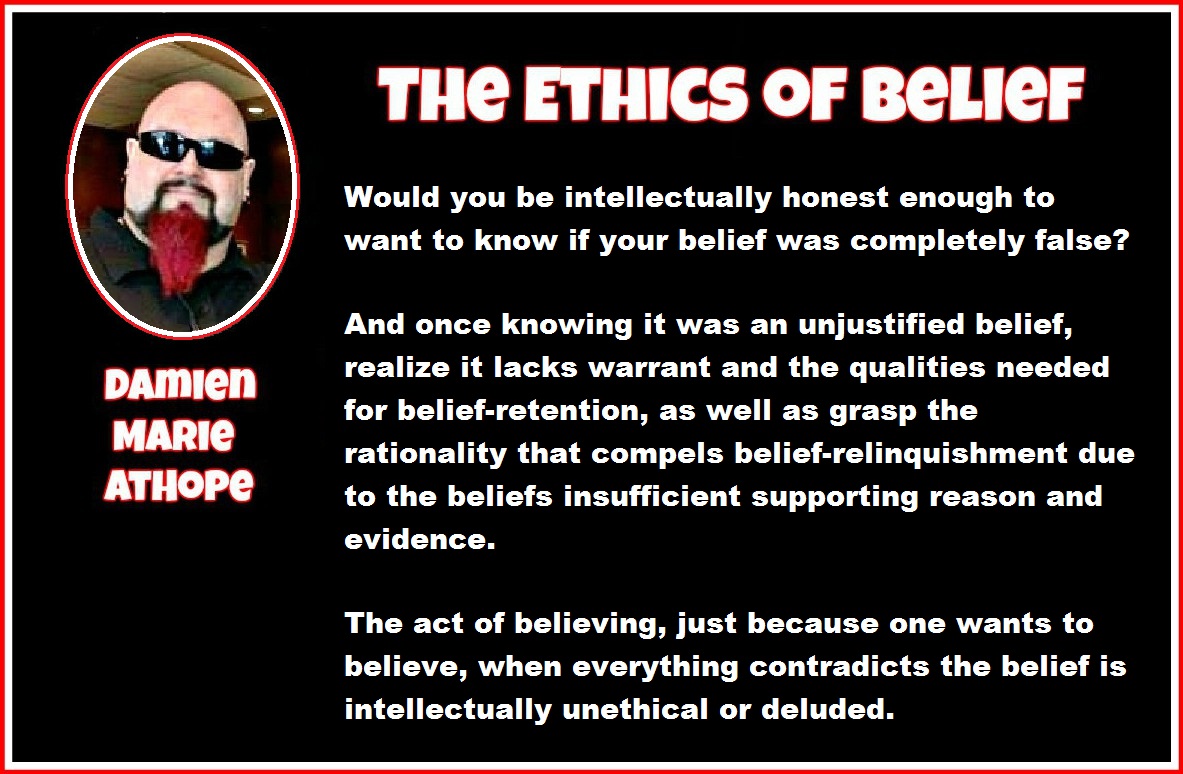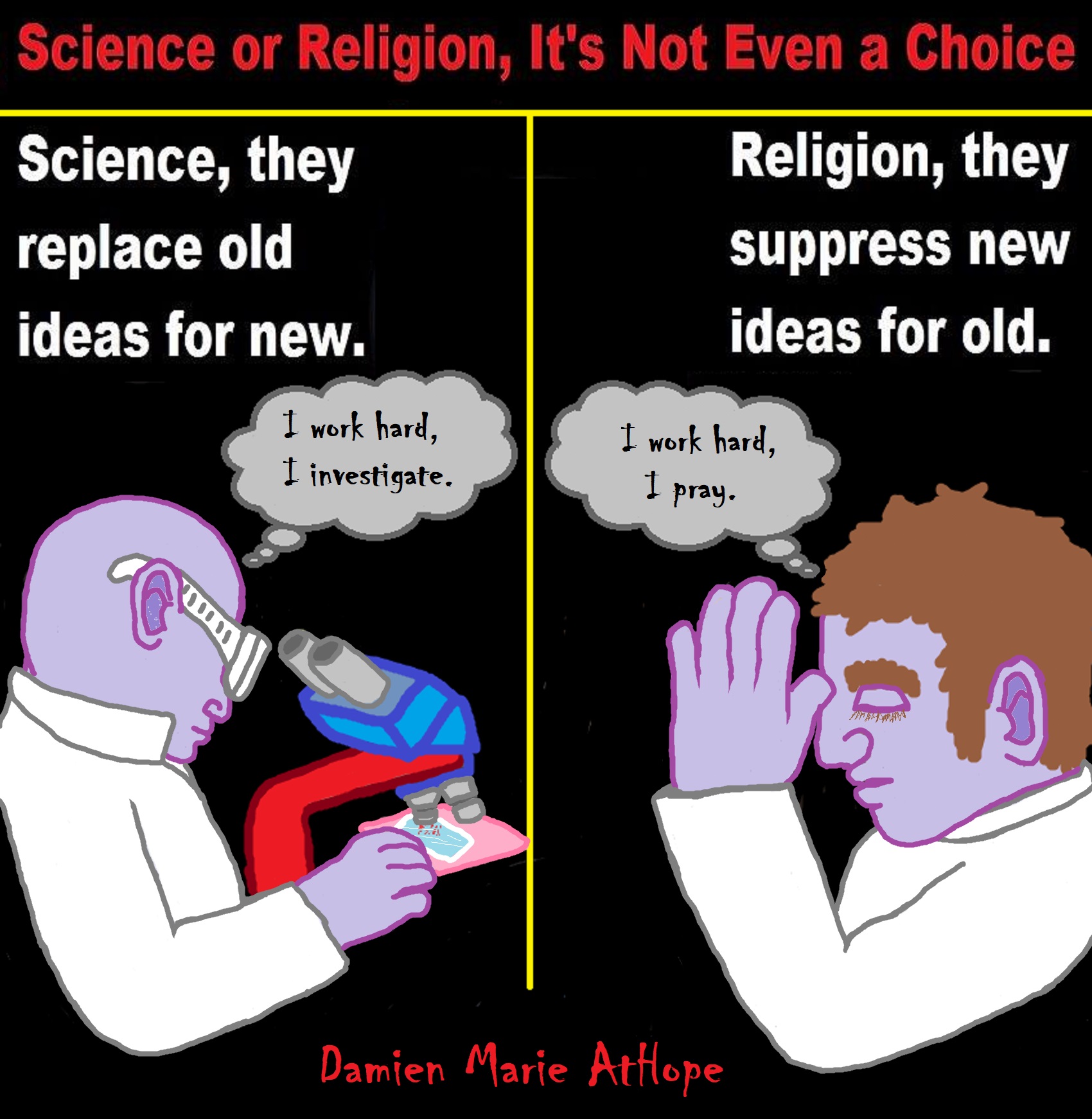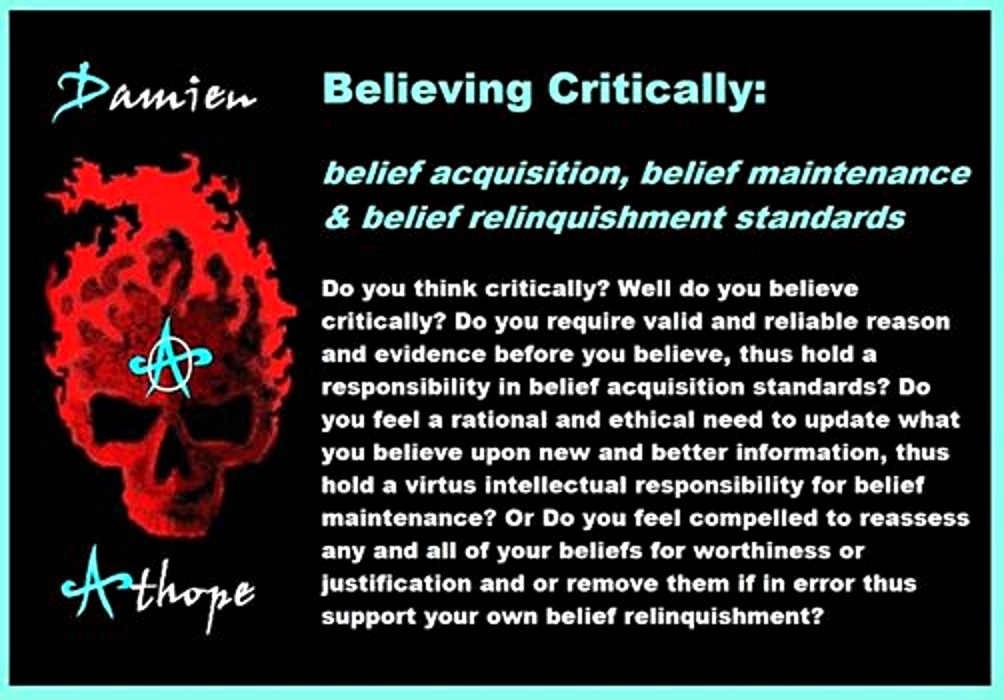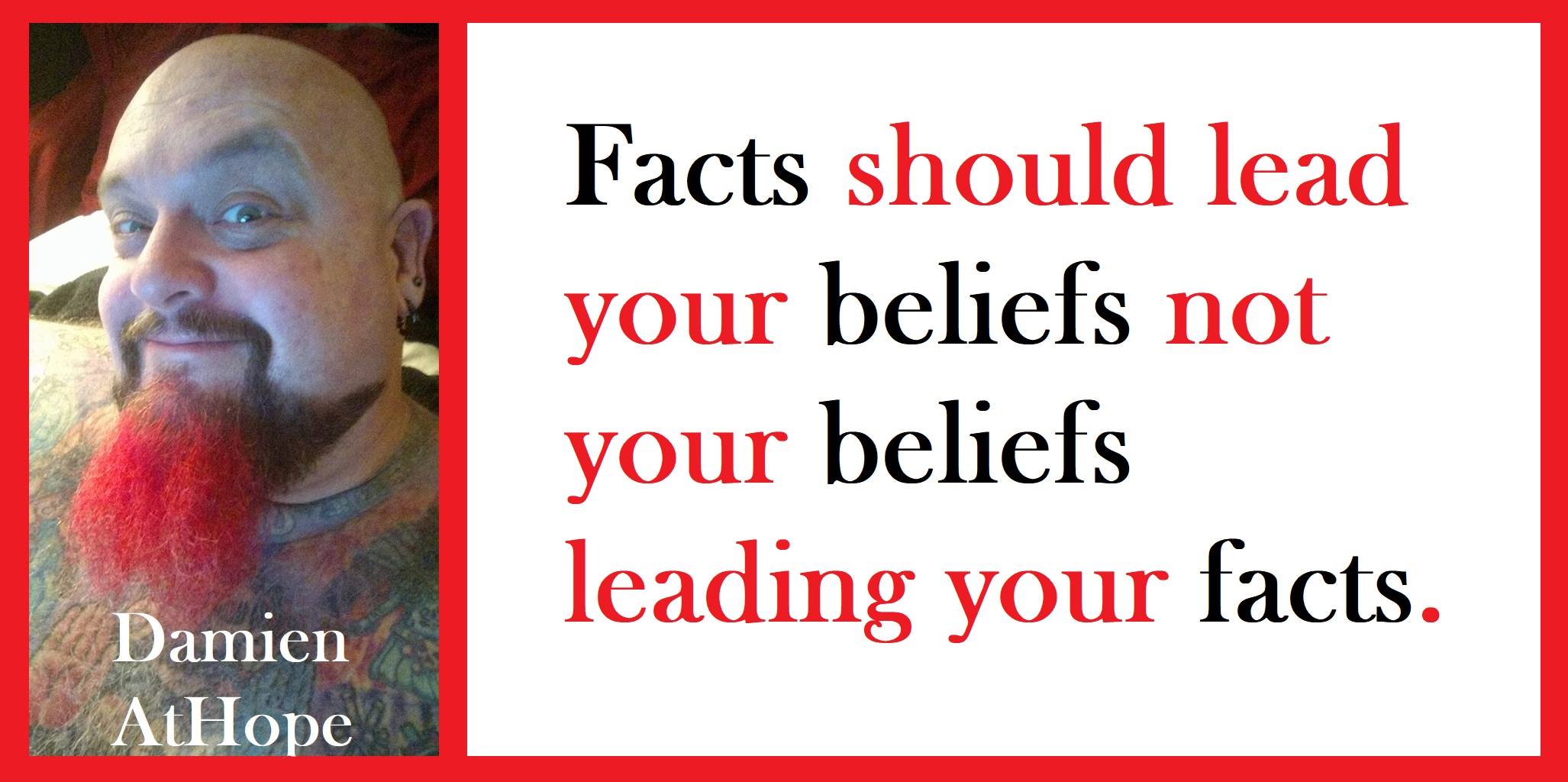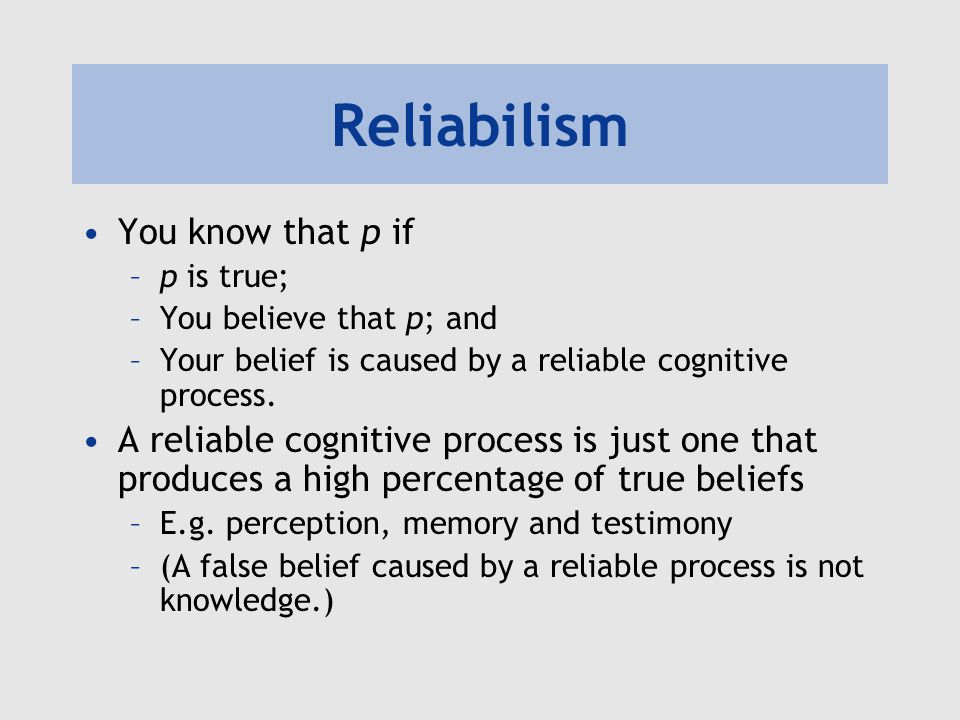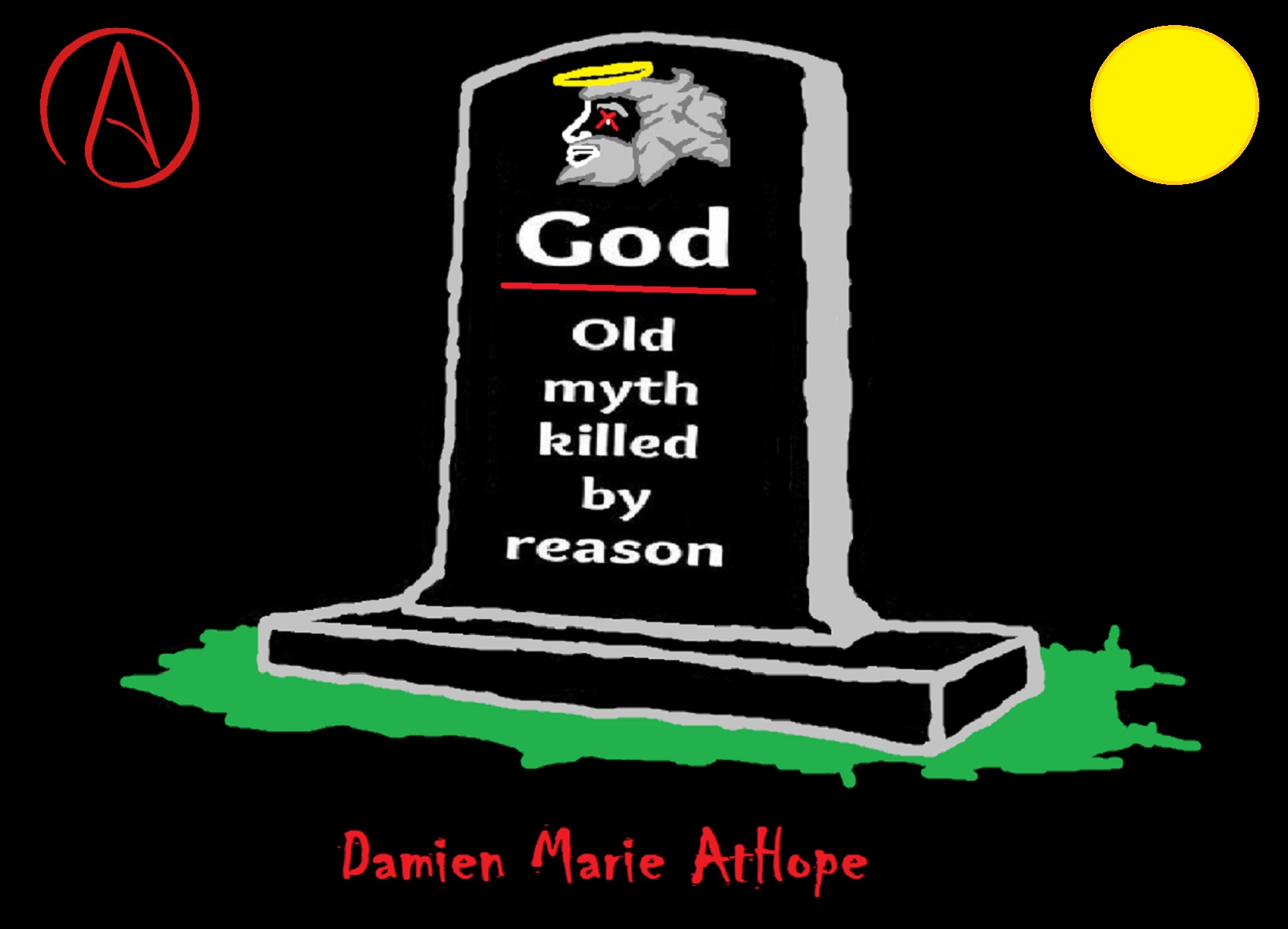
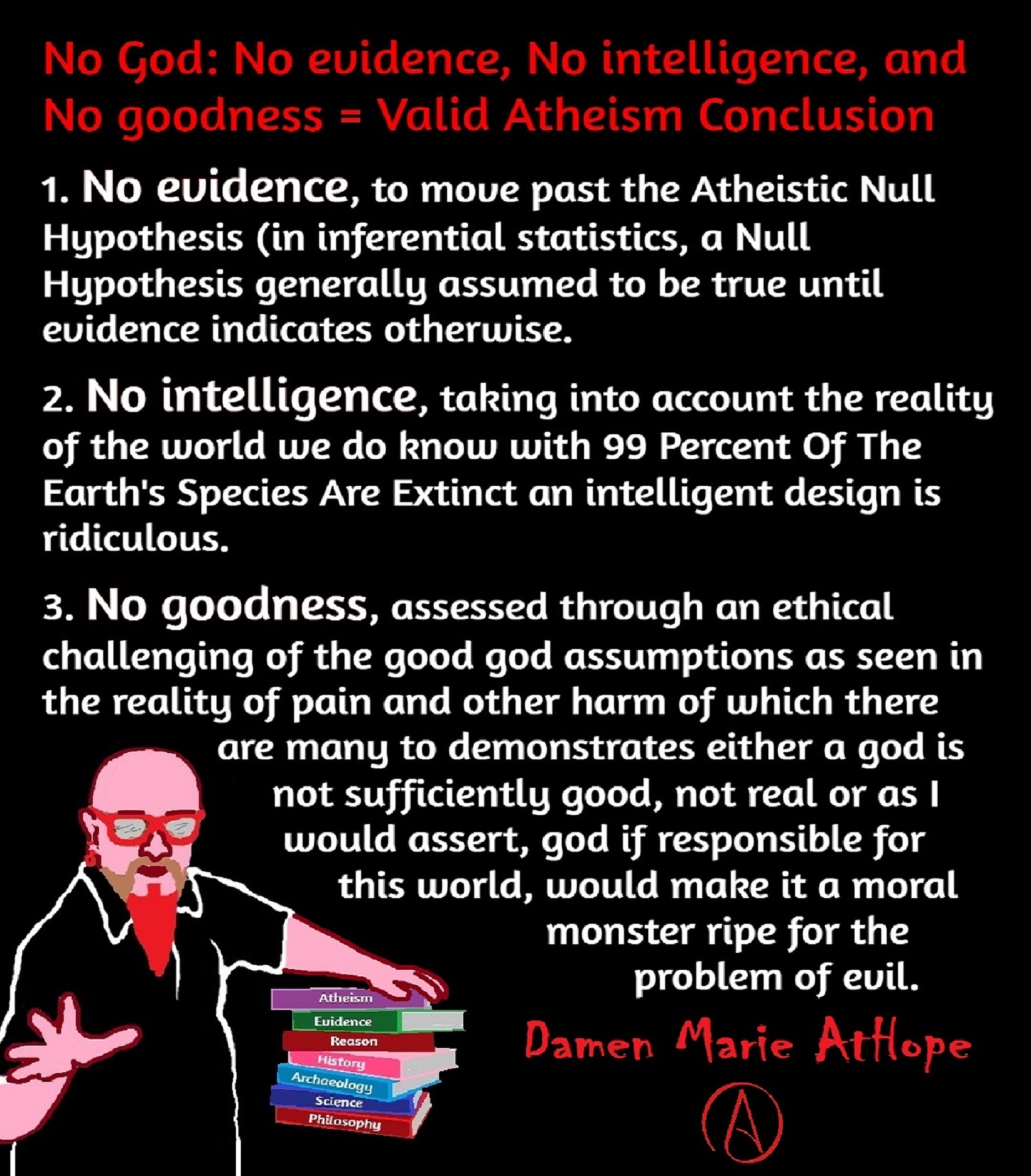
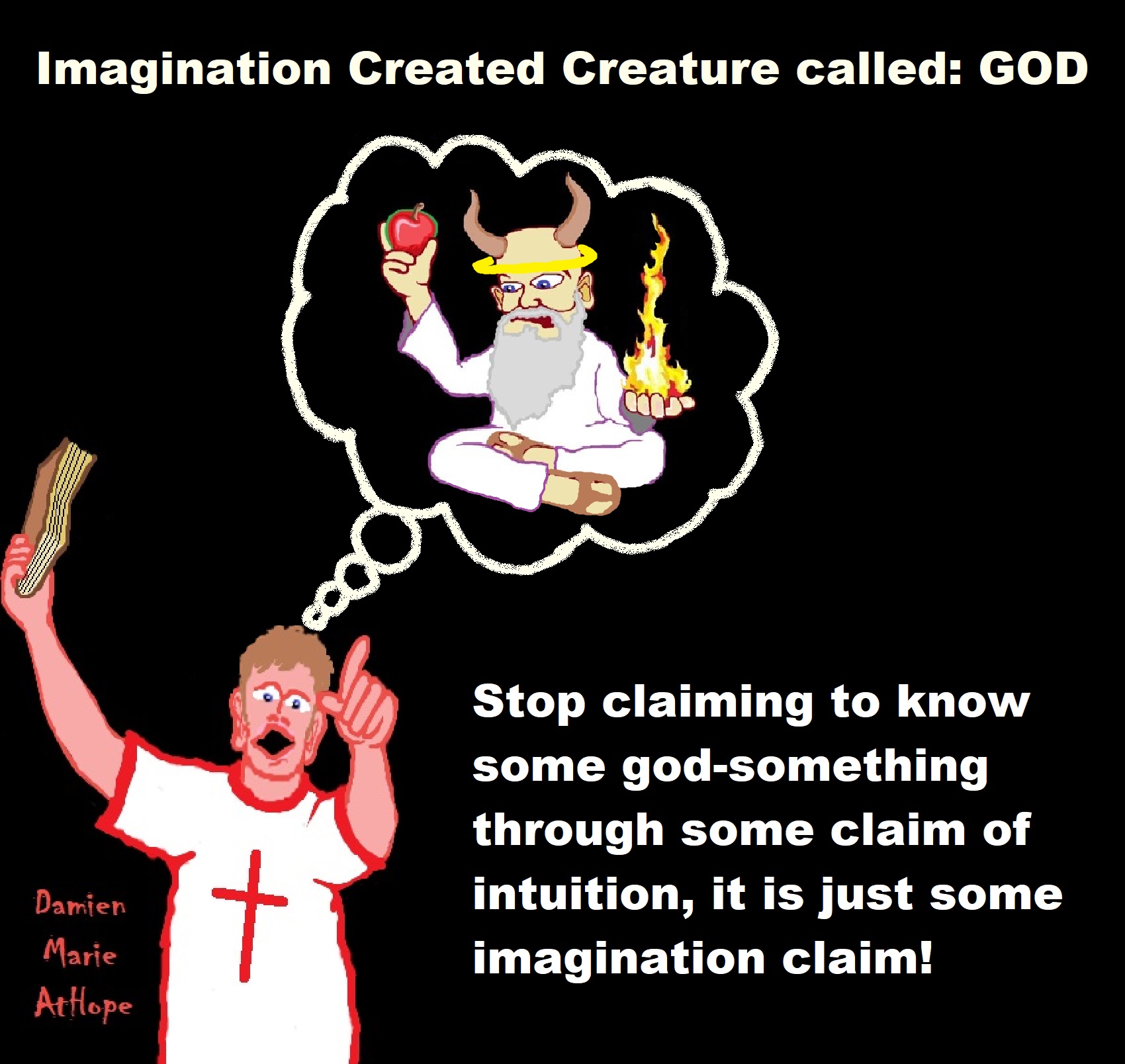

[Antireligionist] My blogs that address Religion: Archaeology, Anthropology, Philosophy and History
“The A Priori Argument Fallacy (also, Rationalization; Dogmatism, Proof Texting.): A corrupt argument from logos, starting with a given, pre-set belief, dogma, doctrine, scripture verse, “fact” or conclusion and then searching for any reasonable or reasonable-sounding argument to rationalize, defend or justify it. Certain ideologues and religious fundamentalists are proud to use this fallacy as their primary method of “reasoning” and some are even honest enough to say so.” http://utminers.utep.edu/omwilliamson/engl1311/fallacies.htm
Religion vs. Science, Don’t Confuse Beliefs
It is widely believed that you can’t prove a negative. Some people even think that it is a law of logic—you can’t prove that Santa Claus, unicorns, the Loch Ness Monster, God, pink elephants, WMD in Iraq and Bigfoot don’t exist. This widespread belief is flatly, 100% wrong. In this little essay, I show precisely how one can prove a negative, to the same extent that one can prove anything at all. Ref
Thinking Tools is a regular feature that introduces tips and pointers on thinking clearly and rigorously. A principle of folk logic is that one can’t prove a negative. Dr. Nelson L. Price, a Georgia minister, writes on his website that ‘one of the laws of logic is that you can’t prove a negative.’ Julian Noble, a physicist at the University of Virginia, agrees, writing in his ‘Electric Blanket of Doom’ talk that ‘we can’t prove a negative proposition.’ University of California at Berkeley Professor of Epidemiology Patricia Buffler asserts that ‘The reality is that we can never prove the negative, we can never prove the lack of effect, we can never prove that something is safe.’ A quick search on Google or Lexis-Nexis will give a mountain of similar examples. But there is one big, fat problem with all this. Among professional logicians, guess how many think that you can’t prove a negative?
That’s right: zero. Yes, Virginia, you can prove a negative, and it’s easy, too. For one thing, a real, actual law of logic is a negative, namely the law of non-contradiction. This law states that that a proposition cannot be both true and not true. Nothing is both true and false. Furthermore, you can prove this law. It can be formally derived from the empty set using provably valid rules of inference. (I’ll spare you the boring details).
One of the laws of logic is a provable negative?
“Wait… this means we’ve just proven that it is not the case that one of the laws of logic is that you can’t prove a negative. So we’ve proven yet another negative! In fact, ‘you can’t prove a negative’ is a negative, so if you could prove it true, it wouldn’t be true! Uh-oh. Not only that, but any claim can be expressed as a negative, thanks to the rule of double negation. This rule states that any proposition P is logically equivalent to not-not-P. So pick anything you think you can prove. Think you can prove your own existence? At least to your own satisfaction? Then, using the exact same reasoning, plus the little step of double negation, you can prove that you aren’t nonexistent. Congratulations, you’ve just proven a negative. The beautiful part is that you can do this trick with absolutely any proposition whatsoever. Prove P is true and you can prove that P is not false. Some people seem to think that you can’t prove a specific sort of negative claim, namely that a thing does not exist. So it is impossible to prove that Santa Claus, unicorns, the Loch Ness Monster, God, pink elephants, WMD in Iraq, and Bigfoot don’t exist. Of course, this rather depends on what one has in mind by ‘prove.’ Can you construct a valid deductive argument with all true premises that yields the conclusion that there are no unicorns? Sure.– Steven Hales is professor of philosophy at Bloomsburg University, Pennsylvania.
“Here’s one, using the valid inference procedure of modus tollens:
1. If unicorns had existed, then there is evidence in the fossil record.
2. There is no evidence of unicorns in the fossil record.
3. Therefore, unicorns never existed. Someone might object that that was a bit too fast, after all, I didn’t prove that the two premises were true. I just asserted that they were true.” – Steven Hales is professor of philosophy at Bloomsburg University, Pennsylvania.
“Well, that’s right. However, it would be a grievous mistake to insist that someone prove all the premises of any argument they might give. Here’s why. The only way to prove, say, that there is no evidence of unicorns in the fossil record, is by giving an argument to that conclusion. Of course one would then have to prove the premises of that argument by giving further arguments, and then prove the premises of those further arguments, ad infinitum. Which premises we should take on credit and which need payment up front is a matter of long and involved debate among epistemologists. But one thing is certain: if proving things requires that an infinite number of premises get proved first, we’re not going to prove much of anything at all, positive or negative. Maybe people mean that no inductive argument will conclusively, indubitably prove a negative proposition beyond all shadow of a doubt.– Steven Hales is professor of philosophy at Bloomsburg University, Pennsylvania.
“For example, suppose someone argues Hales Thinking tools • Think summer 2005 • that we’ve scoured the world for Bigfoot, found no credible evidence of Bigfoot’s existence, and therefore there is no Bigfoot. A classic inductive argument. A Sasquatch defender can always rejoin that Bigfoot is reclusive, and might just be hiding in that next stand of trees. You can’t prove he’s not! (until the search of that tree stand comes up empty too). The problem here isn’t that inductive arguments won’t give us certainty about negative claims (like the nonexistence of Bigfoot), but that inductive arguments won’t give us certainty about anything at all, positive or negative. All observed swans are white, therefore all swans are white looked like a pretty good inductive argument until black swans were discovered in Australia. The very nature of an inductive argument is to make a conclusion probable, but not certain, given the truth of the premises. That just what an inductive argument is.” – Steven Hales is professor of philosophy at Bloomsburg University, Pennsylvania.
“We’d better not dismiss induction because we’re not getting certainty out of it, though. Why do you think that the sun will rise tomorrow? Not because of observation (you can’t observe the future!), but because that’s what it has always done in the past. Why do you think that if you turn on the kitchen tap that water will come out instead of chocolate? Why do you think you’ll find your house where you last left it? Why do you think lunch will be nourishing instead of deadly? Again, because that’s the way things have always been in the past. In other words, we use inferences — induction — from past experiences in every aspect of our lives. As Bertrand Russell pointed out, the chicken who expects to be fed when he sees the farmer approaching, since that is what had always happened in the past, is in for a big surprise when instead of receiving dinner, he becomes dinner. But if the chicken had rejected inductive reasoning altogether, then every appearance of the farmer would be a surprise. So why is it that people insist that you can’t prove a negative? I think it is the result of two things. (1) an acknowledgement that induction is not bulletproof, airtight, and infallible, and (2) a desperate desire to keep believing whatever one believes, even if all the evidence is against it.” – Steven Hales is professor of philosophy at Bloomsburg University, Pennsylvania.
“That’s why people keep • believing in alien abductions, even when flying saucers always turn out to be weather balloons, stealth jets, comets, or too much alcohol. You can’t prove a negative! You can’t prove that there are no alien abductions! Meaning: your argument against aliens is inductive, therefore not incontrovertible, and since I want to believe in aliens, I’m going to dismiss the argument no matter how overwhelming the evidence against aliens, and no matter how vanishingly small the chance of extraterrestrial abduction. If we’re going to dismiss inductive arguments because they produce conclusions that are probable but not definite, then we are in deep doo-doo. Despite its fallibility, induction is vital in every aspect of our lives, from the mundane to the most sophisticated science. Without induction we know basically nothing about the world apart from our own immediate perceptions. So we’d better keep induction, warts and all, and use it to form negative beliefs as well as positive ones. You can prove a negative — at least as much as you can prove anything at all.” – Steven Hales is professor of philosophy at Bloomsburg University, Pennsylvania.
You Can Prove a Negative
“Well, no it isn’t philosophically impossible… read on: It is commonly thought that one cannot prove a negative, but of course I can. If I say “there are no weasels in my right pocket”, all I need to do is enumerate the objects in my right pocket and find a dearth of weasels among them to prove that negative claim. So why do people think one can’t prove a negative?
Negative claims are of the form
?∃(x)(Fx)
Or, in English, “NOT There is an x such that x Fs”… oh, OK, it asserts that no x is F.
Now to prove this claim, you need something that logicians call “the Universe of Discourse”, or “the Domain”. That is, the totality of the world or worlds that the claim ranges across. In the pocket example, that is my right pocket. If the domain or universe is small enough, and all the objects in it accessible in a reasonable time, we certainly do think that we can make proof claims. Consider the extinction of the Yellow River dolphin. Pretty well all areas in which that animal can exist are under constant observation by a very large population that has the means to report its existence. So we can safely say that it no longer exists. So why is it a common claim? This has to do with the development of the medieval logics, and ambiguity (errors in logic are nearly always due to ambiguity in some way or another). The medievals had what they called “the Square of Opposition”. It went like this: Propositions of the form E are negative claims. But if the universe is not defined, as it wasn’t (the medievals thought that logical possibility ranged across all the universe and possible universes unrestrictedly), one cannot find out if something is false until one encounters an existing contradiction to the claim (an x that is F). Because they had an unrestricted domain, they could never prove that negative if none were ever encountered. I suspect, though, that it is easier to prove that Obama is not a Muslim or a terrorist than to prove that no gods are green, for example. The domain is smaller, and more manageable.” Ref
Myth: One can’t prove a negative.
Proving Negatives and Dealing With Absence of Evidence and Evidence of Absence
Factmyth.com
Factmyth.com
The saying “you can’t prove a negative” isn’t accurate. Proving negatives is a foundational aspect of logic (ex. the law of contradiction).[1][2][3]
An Example of Proving a Negative in the Sense that People Mean it When they Say the Phrase
Putting aside negatives we can prove with certainty for a second, consider the following: To “prove” a something we simply have to provide sufficient evidence that a proposition (statement or claim) is true. In other words, we have to show that it is very likely the case, we don’t have to show it is true with absolute certainty. Thus, to prove a negative, we only have to show that it is very likely the case. To do this, there must not be compelling evidence that it is the case and there must instead be compelling evidence that it is not the case. We DO NOT have to observe empirically that which cannot be observed (for example, we don’t have to see a Unicorn not existing to know it doesn’t exist, we just have to show compelling evidence of its non-existence). Thus, proving a negative in this sense can be accomplished by providing evidence of absence (not argument from ignorance, but scientific evidence of absence gathered from scientific research). For example, a strong argument that proves that it is very likely Unicorns don’t exist involves showing that there is no evidence of Unicorns existing (no fossils, no eye witness accounts, no hoofprints, nothing). If we did a serious scientific inquiry, searching for Unicorn fossils, and turned up nothing, it would be a type of evidence for the non-existence of Unicorns. If no one could show scientific data pointing toward unicorns to combat this, then at a point it would become a good theory and we could put forth a scientific theory, based on empirical data, that says “Unicorns don’t exist.” At that point, the burden of proof would be on those who believe in Unicorns to prove that Unicorns do in fact exist (the burden would be on them to prove the theory of non-existent Unicorns false by providing a better theory). This is just one of many ways to prove a negative, below we list others including using the law of contradiction and using double negatives. TIP: Science can’t actually prove anything with 100% certainty. Essentially “all we know for sure is that we know nothing for sure.” This is because all testing of the outside world involves inductive reasoning(comparing specific observations to other specific observations). Meanwhile, logically certain truths are generally pure analytic a priori (they are generally tautologically redundant and necessarily true facts like “since A is A” therefore “A is not B.”) Does this prove God does or doesn’t exist? Proving the existence of God (or the non-existence) is loosely related to this line of reasoning, but it is sort of outside of the sphere of what we are talking about here. If one claims, “all that is is, but God exists outside of that” then the argument for God becomes ontological, theological, metaphysic, and faith-based. Faith-based metaphysical arguments don’t require scientific empirical evidence… unless they try to posit something that can be debunked by empirical science (in that case, arguments for faith instead of reason tend to be logically “weak,” in that they lack supporting evidence). An Introduction to Proving Negatives With Necessary Logical Truths and the Inductive Evidence of Absence. To clarify the above, in terms of proving negatives with certainty and uncertainty, we can prove some negatives with certainty (like necessary logical truths such as “A is not B” and double negatives like “I don’t not not exist”), but generally “proving negatives” means providing compelling evidence that shows it is very likely that something isn’t the case (it means “proving” probable truths, not certain ones). This type of “inductive” reasoning can produce scientific truths using evidence of absence (it can show that it is likely that something isn’t the case via scientific observation and measurement that shows a lack of evidence), but the reality is there isn’t much we can actually prove true or false for certain (negative or positive) using evidence or a lack-there-of. For example, all empirical data points to me sitting at my desk writing this, but maybe “I’m in a virtual simulation and my senses are tricking me?” Yet, despite any confusion we may have in terms of certainty, “everything is ultimately either true or it isn’t despite our inability to know for sure.” Below we explain all the above and more in detail, including the ways in which proving negatives is and isn’t possible. First, here are some examples related to proving negatives:
- The Law of Contradiction itself is a negative: “Nothing can be A and not A.” Ex. Ted can’t be in Room A and not in Room A (and therefore, if Ted is in Room A, then Ted is not in Room B; or if Ted is in Room A, then Ted is not not in Room A). This is a rule used in deductive reasoning and is a necessarily true logical rule.
- The Modus Tollens also proves a negatives: “If P, then Q. Not Q. Therefore, not P.” Ex. “If the cake is made with sugar, then the cake is sweet. The cake is not sweet. Therefore, the cake is not made with sugar.” This is also a logical rule that relates to deductive reasoning.[4]
- Proving a negative with certainty using double negatives: Any true positive statement can be made negative and proved that way. Ex. I do not not exist; or Every A is A, nothing can be A and not A, everything is either A or not A, therefore A is not not A. These prove a negative with certainty, but are somewhat redundant (rephrasing “A is A” as “A is not not A” is tautological).
- Proving a negative with probability using induction: We can show something is highly certain using evidence of absence, but we can’t know for sure (that said, the same is true for proving positives with evidence; this is the nature of induction). Ex. Santa cannot be real and not real at the same time. There is no evidence to suggest Santa is real. Therefore it is highly likely Santa is not real. Simply put, induction doesn’t prove negatives with certainty; but it can produce highly certain scientific and logical conclusions.
TIP: Learn about how induction and deduction work. The certain proofs are deductive, the likely proofs are inductive. The Absence of Evidence and the Evidence of Absence – What Do People Mean When they Say “You Can’t Prove a Negative”? In general, and putting aside those who misunderstand the concept, when people use the phrase “you can’t prove a negative” they mean: we can’t prove negatives with certainty based on the absence of evidence alone (the absence of evidence is not necessarily the evidence of absence). For example, having no proof of Bigfoot doesn’t prove that he isn’t real with certainty. Likewise, it is hard to provide proof that a giant flying invisible pink unicorn name Terry-corn isn’t… because it isn’t and thus our best evidence is the absolute lack of evidence. We can only “prove” that which there is no evidence for with a high degrees of probability (by considering the lack of evidence and some rules of logic). With that in mind, and as noted above, we can’t actually prove positives very well either. Most proofs (positive or negative) rely on inductive evidence, and induction necessarily always produces probable conclusions. In other words, if we had Santa on tape admitting he was Santa it would still only be very strong evidence (it wouldn’t prove he Santa was real with certainty; our senses could be tricking us, the video could be fake, we might be in the Matrix, etc). Absence of evidence and the evidence of absence: Absence of evidence is an ambiguous term. If it is absence from ignorance, in that no one has ever carefully studied the matter, then it means next to nothing. If it is absence despite careful empirical study done in-line with the scientific method, then the absence of evidence itself can be considered a type of scientific evidence. If we inspect the room over and over and there is never any mice in the room, we can conclude with a high degree of certainty from the absence of mice that the room is not infested with mice. Here absence of evidence (or “the evidence of absence despite our looking for it” more specifically) is a type of evidence. If we keep checking and don’t see evidence of Santa, we can be highly confident that there is no Santa. See “Evidence of absence.” The Bottom Line on Proving Negatives, The bottom line here is:
- We can actually prove some negatives with certainty (using deduction), and generally speaking this type of proof is a foundational aspect of logic.
- “The Absence of Evidence is not the Evidence of Absence”… although it is often a really, really, strong hint (the same works for correlation and causation). In other words, a lack of evidence is a sort of evidence, but it doesn’t prove anything with certainty.
- As far as induction goes, “really strong hints” with “lots of logical truths backing them up”… are types of “proofs” (putting aside the definition of mathematic proof and treating proof as ” sufficient evidence or a sufficient argument for the truth of a proposition.”)[5]
For one last example before moving on: If we know Ted must be in Room A or Room B, and we have always seen Ted in Room A, and Ted never has gone into Room B and doesn’t have a key to Room B, and no person in the history of humankind has ever provided evidence of Ted being in Room B, we can be very confident in a logical inductive argument that concludes with a very high degree of certainty that Ted is in Room A. In these ways, “we can prove a negative… just not with certainty in some cases” (although, again, we can’t prove much with certainty outside of “tautological and analytic statements a priori” anyway). TIP: For more reading, see: “You Can Prove a Negative ” Steven D. Hales Think Vol. 10, Summer 2005 pp. 109-112.
RELATED FACTOIDS: Potentially, Everything is Light
There are No Straight Lines or Perfect Circles
There is No Such Thing as Objective Truth
The Term “Computer” Used to Refer to Humans
There are Different Types of Tyranny
Democracy is a Form of Government Where Power Originates With the Citizens
People Tend to Act Out of Perceived Self Interest
Life is all About “Trade-offs”
Logically, After You Die Will Be Like Before You Were Born
we should understand the truth behind the “you can’t prove a negative” idea.
What Does Proving a Negative Mean?
With the above introduction covered, let’s start at the beginning again and cover some details.So first, “what does proving a negative mean?”It means proving something isn’t true. For example, “proving Santa Claus doesn’t exist.”If Santa did exist, you could find evidence and prove it, but because [spoiler] he doesn’t, you can’t find evidence to prove it. There is an “absence of evidence.”
How to Prove a Negative
Now that we know the task and have the basics down, let’s discuss how to prove a negative and the ways in which we can and can’t prove negatives.To do that, let’s answer an important related question, “what is the law of contradiction / non-contradiction?”The law of contradiction / non-contradiction states that a proposition (statement) cannot be both true and not true (that nothing can be both true and false).…in other words, one of the fundamental laws of logic (the laws of thought featured below) is a provable negative proposition (and is thus an example of proving a negative).The rule of contradiction is saying that a statement CANNOT be both true and not true (unlike the positive rule of identity that says “whatever is, is.”)To help that sink in, here are the laws of thought.
- The Law of Identity: Whatever is, is; or, in a more precise form, Every A is A. Ex. Whatever is true about Santa is true about Santa.
- The Law of Contradiction: Nothing can both be and not be; Nothing can be A and not A. Ex. Santa cannot be real and not real at the same time.
- The Law of Excluded Middle: Everything must either be or not be; Everything is either A or not A. Ex. Santa must be real or not real.
In other words, Santa is either real or not real, there is no in-between. So the following logic works:
- If Santa was real there would likely be some evidence of Santa (not certain).
- There is no evidence of Santa (we should assume this as certain for the example).
- Therefore we can reasonably infer that Santa is not real (a likely truth inferred using induction).
Now, to be fair, that is an inductive argument (a very strong and cogent one, but an inductive argument none-the-less). What that means is that we didn’t produce a certainty, we produced a probability.In other words, we can “prove a negative” (we do it all the time), but we can’t prove something with certainty without direct proof…… with that in mind, almost all arguments are inductive and therefore probable.If we find a person hovering over a dead body with the murder weapon and they say “I did it” we still don’t know for sure that they did it.If we find zero proof of Santa ever, we still don’t know for sure he doesn’t exist.However, in both cases we can be very certain of our conclusions, and we can prove our conclusions using logic.If to prove something is to prove absolute certainty, then only tautological forms of deduction are valid and induction (and all other reasoning methods are useless). <— This creates a very strange and existential world where we can’t trust our senses and theories are meaningless.If we on the other hand can consider overwhelming evidence that draws a highly certain conclusion as proof until better evidence comes along, then we can prove negatives. <— This is how science works.With all that said, details aside, the blanket statement “we can’t prove a negative” is wrong either way.In mathematics and logic, when we replace empirical evidence for numbers and symbols, we can prove negatives all day.Of course, even in the way it is meant, that lack of evidence doesn’t imply lack of existence, even that isn’t exactly right. No one ever in the history of mankind having evidence of Santa is itself… pretty strong evidence. MYTH One can’t prove a negative. Ref
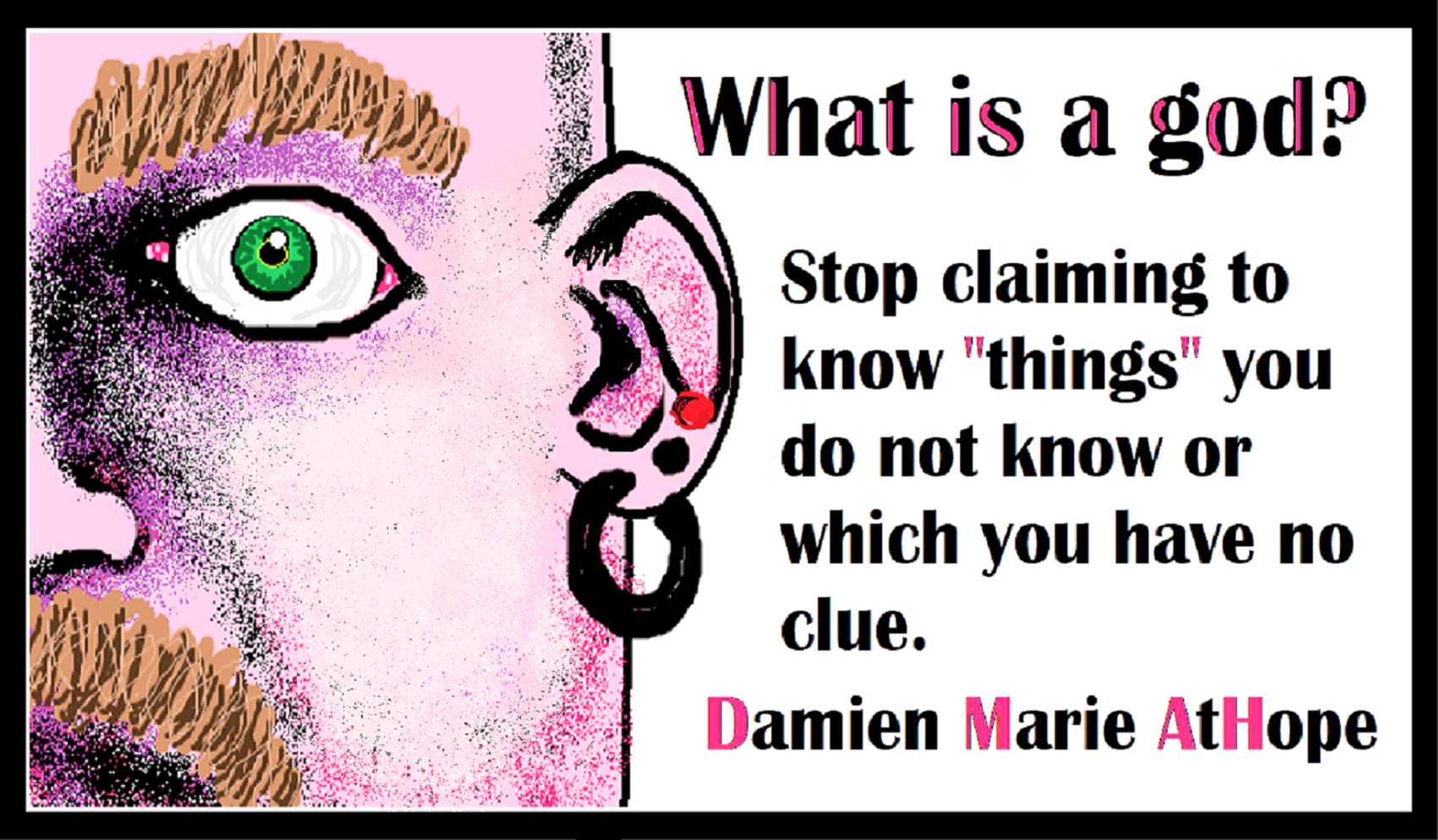
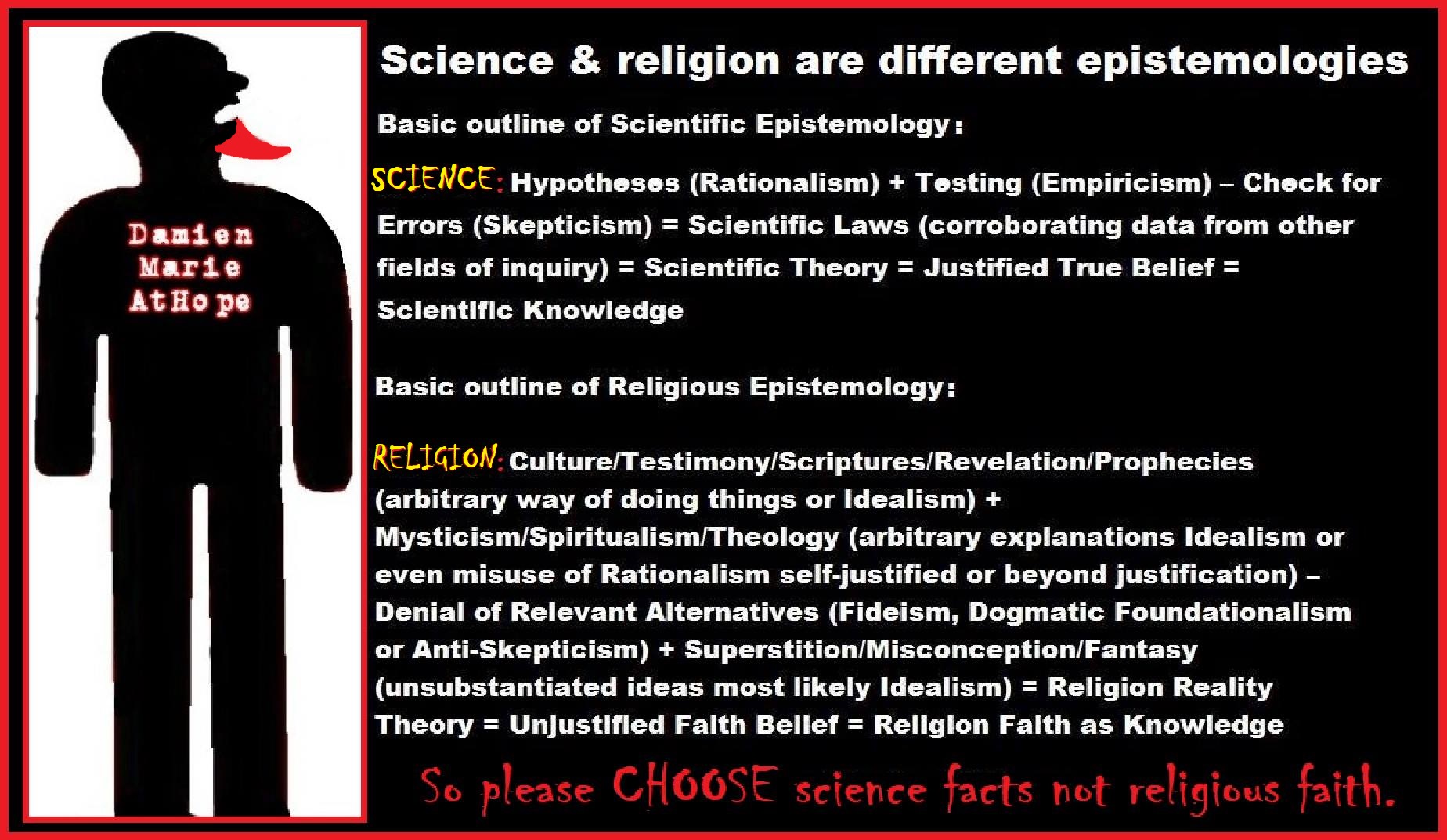
Science is the thing people do when they require evidence.
Whereas faith is the thing people do when they do not require evidence.
There is NO supernatural, thus, there is no god nor ghosts; just as there are no goblins. Nor Unicorns or Dragons for that matter and don’t get me started on Santa or the Easter bunny as of course all this nonsense is completely unjustified to believe as real. I would imagine not too many atheists epistemologists would feel a need to start believing claims of gods after establishing high standards of epistemic rationality. Whereas, I would imagine many theistic epistemologists (if they are intellectually honest: slaves to reason not faith) would feel a need to stop believing claims of gods after establishing high standards of epistemic rationality.
Empiricism atheism: empiricism is an epistemological theory which argues that that all knowledge must be acquired a posteriori and that nothing can be known a priori. Another way of putting it is that empiricism denies the existence of purely intellectual knowledge and argues that only sense-knowledge can exist. Empiricism is a common philosophical belief among many atheists. They believe that empirical science is the only true path to understanding. If you cannot see it, smell it, taste it, hear it, etc., it cannot be known. Empiricism atheists say that if you cannot prove something empirically, such as the existence of God, you are irrational for believing it. 1 2
Epistemological atheism: highlights a branch of philosophy that deals with determining what is and what is not true, and why we believe or disbelieve what we or others do. On one hand, this is begging the question of having the ability to measure “truth” – as though there is an “external” something that one measures against. Epistemology is the analysis of the nature of knowledge, how we know, what we can and cannot know, and how we can know that there are things we know we cannot know. In Greek episteme, meaning “knowledge, understanding”, and logos, meaning “discourse, study, ratio, calculation, reason. Epistemology is the investigation of what distinguishes justified belief from opinion. In other words, it is the academic term associated with study of how we conclude that certain things are true. Epistemology: the theory of knowledge, especially with regard to its methods, validity, and scope. From this atheist orientation, there is no, nor has there ever been, nor will there ever be, any “external” something so there can be no god-concept. Many debates between atheist and theists revolve around fundamental issues which people don’t recognize or never get around to discussing. Many of these are epistemological in nature: in disagreeing about whether it’s reasonable to believe in the existence of a god something, to believe in miracles, to accept revelation and scriptures as authoritative, and so forth, atheists and theists are ultimately disagreeing about basic epistemological principles. Without understanding this and understanding the various epistemological positions, people will just end up talking past each other. it’s common for Epistemological atheism to differ in what they consider to be appropriate criteria for truth and, therefore, the proper criteria for a reasonable disbelief. Atheists demand proof and evidence for other worldviews, yet there is no proof and evidence that atheism is true. Also, despite the abundant evidence for Christianity and the lack of proof and evidence for atheism, atheist reject the truth of Christianity.
*Epistemology (knowledge of things) questions to explode or establish and confirm knowledge. Epistemology “Truth” questions/assertion: Lawyer searches for warrant or justification for the claim. Epistemology, (understanding what you know or can know; as in you do have and thing in this reality to know anything about this term you call god, and no way of knowing if there is anything non-naturalism beyond this universe and no way to state any about it if there where). -How do know your claim? -How reliable or valid must aspects be for your claim? -How does the source of your claim make it different than other similar claims? I may respond, “how do you know that, what is your sources and how reliable they are” (asking to find the truth or as usual expose the lack of a good Epistemology) Atheists refuse to go where the evidence clearly leads. In addition, when atheist make claims related to naturalism, make personal claims or make accusations against theists, they often employ lax evidential standards instead of employing rigorous evidential standards. For the most part, atheists have presumed that the most reasonable conclusions are the ones that have the best evidential support. And they have argued that the evidence in favor of a god something’s existence is too weak, or the arguments in favor of concluding there is no a god something are more compelling. Traditionally the arguments for a god something’s existence have fallen into several families: ontological, teleological, and cosmological arguments, miracles, and prudential justifications. For detailed discussion of those arguments and the major challenges to them that have motivated the atheist conclusion, the reader is encouraged to consult the other relevant sections of the encyclopedia. Arguments for the non-existence of a god something are deductive or inductive. Deductive arguments for the non-existence of a god something are either single or multiple property disproofs that allege that there are logical or conceptual problems with one or several properties that are essential to any being worthy of the title “GOD.” Inductive arguments typically present empirical evidence that is employed to argue that a god something’s existence is improbable or unreasonable. Briefly stated, the main arguments are: a god something’s non-existence is analogous to the non-existence of Santa Claus. The existence of widespread human and non-human suffering is incompatible with an all powerful, all knowing, all good being. Discoveries about the origins and nature of the universe, and about the evolution of life on Earth make the a god something hypothesis an unlikely explanation. Widespread non-belief and the lack of compelling evidence show that a god something who seeks belief in humans does not exist. Broad considerations from science that support naturalism, or the view that all and only physical entities and causes exist, have also led many to the atheism conclusion. 1 2 3 4
Ethical atheism: heavily involved and utilizes ethical thought and standards to navigate atheism or the humanism that is likely to follow such an ethical awareness. Ethical atheism strives to utilize the strong force of ethics and ethical challenge to address the many issues that not only arise in combating the fanatical promotion of harmful myths but ethical ways to positively navigate all of life’s real struggles or options to behave in interactions with others. God claims all totally lack a standard of meeting any warrant or justification in their burden of proof, thus the claim as offered debunks itself as any kind of viable claim. Would you be intellectually honest enough to want to know if your belief was completely false, and once knowing it was an unjustified belief, realize it lacks warrant and the qualities needed for belief-retention, as well as grasp the rationality that certain beliefs are epistemically unfounded which compels belief-relinquishment due to the beliefs insufficient supporting reason and evidence, realizing that belief. To me, belief in gods is intellectually flawed and dishonest compared to the evidence of the natural world being not only explainable on every level as only natural, but also there is not a shred of anything supernatural and every claim tested ever has time and again debunked such nonsense. If anything supernatural or paranormal was provable, the believers would have taken James Randi’s famous million-dollar challenge, or they would have gone and got their Nobel Prize in proving the supernatural or open up a 100% faith-based prayer and miracles hospital. Where the cure for anything and everything is guaranteed because “prayer and miracles works” and the only education was being a religious or spiritual leader. Prove it or it is not really worthy for true belief and if there was actual scientific proof it would silence us rationalists, atheists, and skeptics forever. However, nothing of the sort has ever happened. List of prizes for evidence of the paranormal or supernatural woo-woo go back to at least 1922 with Scientific American. But it did not stop there instead there has been many individuals and groups have offered similar monetary awards for proof of the paranormal or supernatural with some reaching over a million dollars yet as of February 2016, not one prizes have been claimed. Therefore, belief in supernatural or paranormal are not realistic nor are they reasonable. And what’s even crazier is it’s nonsense and they act like it is us rationalists, atheists, and skeptics that have to disprove something they have never proved. I do think critical thinkers and thinkers who are intellectually honest should follow something close to “The Ethics of Belief” or they are likely not honest thinkers. “The Ethics of Belief” was published in 1877 by philosopher William Kingdon Clifford outlined the famous principle “It is wrong always, everywhere, and for anyone to believe anything on insufficient evidence.” Arguing that it was immoral to believe things for which one lacks evidence, in direct opposition to religious thinkers for whom “blind faith” (i.e. belief in things in spite of the lack of evidence for them) was seen as a virtue. To me, it comes down to the question, would you be intellectually honest enough to want to know if your belief was completely false? And once knowing it was an unjustified belief, realize it lacks warrant and the qualities needed for belief-retention, as well as grasp the rationality that compels belief-relinquishment due to the beliefs insufficient supporting reason and evidence. The act of believing, just because one wants to believe, when everything contradicts the belief is intellectually unethical or deluded. Beliefs are directly connected to behavior, behavior is directly involved in ethics, and ethics requires involvement in social thinking which requires us to mature or discipline our beliefs. Ethics of Belief: sufficient evidence to support belief. An honest thinker would want to know what is sufficient evidence for the reliability and validity to support belief. According to the legal decision in 1950, evidence is sufficient when it satisfies an unprejudiced mind. Sufficient evidence can be said to reference the evidence of such value as to support the belief. The word sufficient does not mean conclusive. Conclusive evidence is evidence that serves to establish a fact or the proven truth of something. To me, the test for belief analysis in relation to the offered evidence attempting to affirm the belief, would be is it sufficient evidence such as, could any rational addresser of the belief in question to find the essential elements of the issue sufficiency evidence is beyond a reasonable doubt. it is reasonable to require a greater level of evidence proportional to the importance of the belief or the external effects of the belief. – IN THE MATTER OF THE ESTATE OF LUCILLE CRUSON STATE LAND BOARD V. LONG, ADM’R, ET AL. OREGON SUPREME COURT. ARGUED JUNE 13, 1950 REVERSED AUGUST 29, 1950 *538538 APPEAL FROM CIRCUIT COURT, LINN COUNTY, VICTOR OLLIVER, JUDGE. Someone asked why would a critical thinker follow another old book from 1877? Well the age of evidence or thinking is relevant if it is reasonable. Saying it’s age is old is not a refutation of its arguments. Moreover, it could be said that for ethical atheism applied logically “to me” in general ethics must be equally applied or the concept of ethics has no ethical meaning to begin with. Ethical atheism could be seen as thinking that if the idea of god implies the abdication of human reason and justice; it is the most decisive negation against of human rights, dignity, and liberty. Therefore ethical atheism holds a necessarily requirement to disbelief in order to end such unethical thinking and to end a god only morality enslavement of mankind. Ethical atheism holds all to ethical standards therefor if god did exist, it would be necessary to abolish him so we could be freely utilize human rights, dignity, reason and justice. Ethical atheism promotes atheism because it is both the logical and the ethical position to take in a world where religious people fly planes into skyscrapers, blow themselves up on crowded busses, and do all sorts of horrible things in the name of an imaginary sky monster. As an atheist ethicist, I am not just an Atheist (disbelieving claims of gods), an Antitheist (seeing theism as harmful) and an Antireligionist (seeing religion as untrue and/or harmful). Also as an atheist ethicist I value and require reason and evidence to support beliefs or propositions as well as am against all pseudohistory, pseudoscience, and pseudomorality. Why are gods even concerned with belief, as if they truly wanted it so bad they would be real and being more than just mental projections of which they are now they would show themselves and we all would believe. Therefore we can rightly conclude with no evidence of them at all, that belief in god(s) is the thing people do when playing at reality is valued more than understanding the actual natural only nature of reality. 1 2 3 4 5 6
Evidential atheism: thinks that whether or not belief in a divine being is epistemically acceptable will be determined by the evidence. I intend to treat “evidence” in a broad sense including a priori arguments, arguments to the best explanation, inductive and empirical reasons, as well as deductive and conceptual premises. (Also note that one could be an evidentialist theist.) The evidentialist theist and the evidentialist atheist may have a number of general epistemological principles concerning evidence, arguments, implication in common, but then disagree about what the evidence is, how it should be understood, and what it implies. They may disagree, for instance, about whether the values of the physical constants and laws in nature constitute evidence for intentional fine tuning, but agree that whether God exists is a matter that can be explored empirically. 1
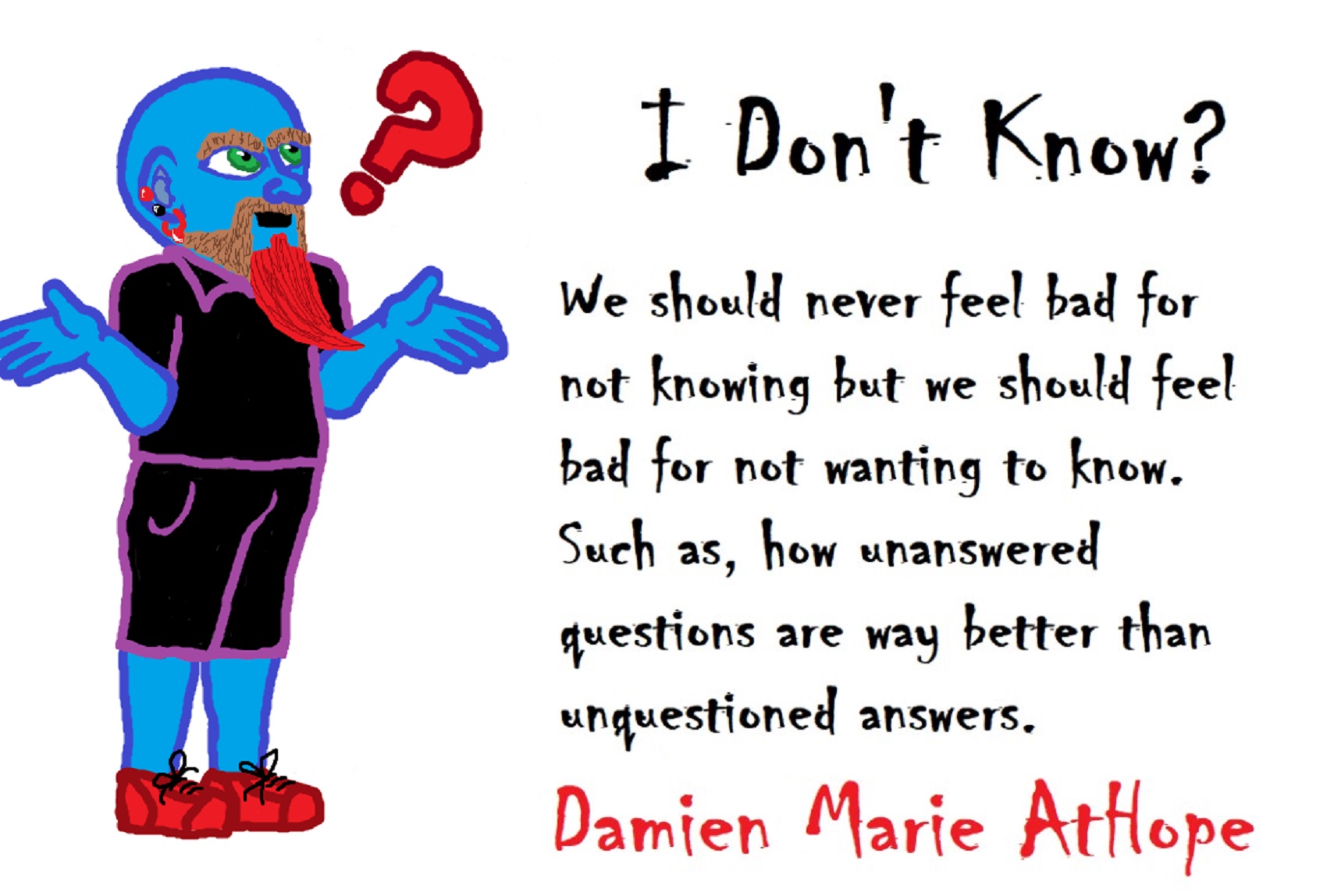
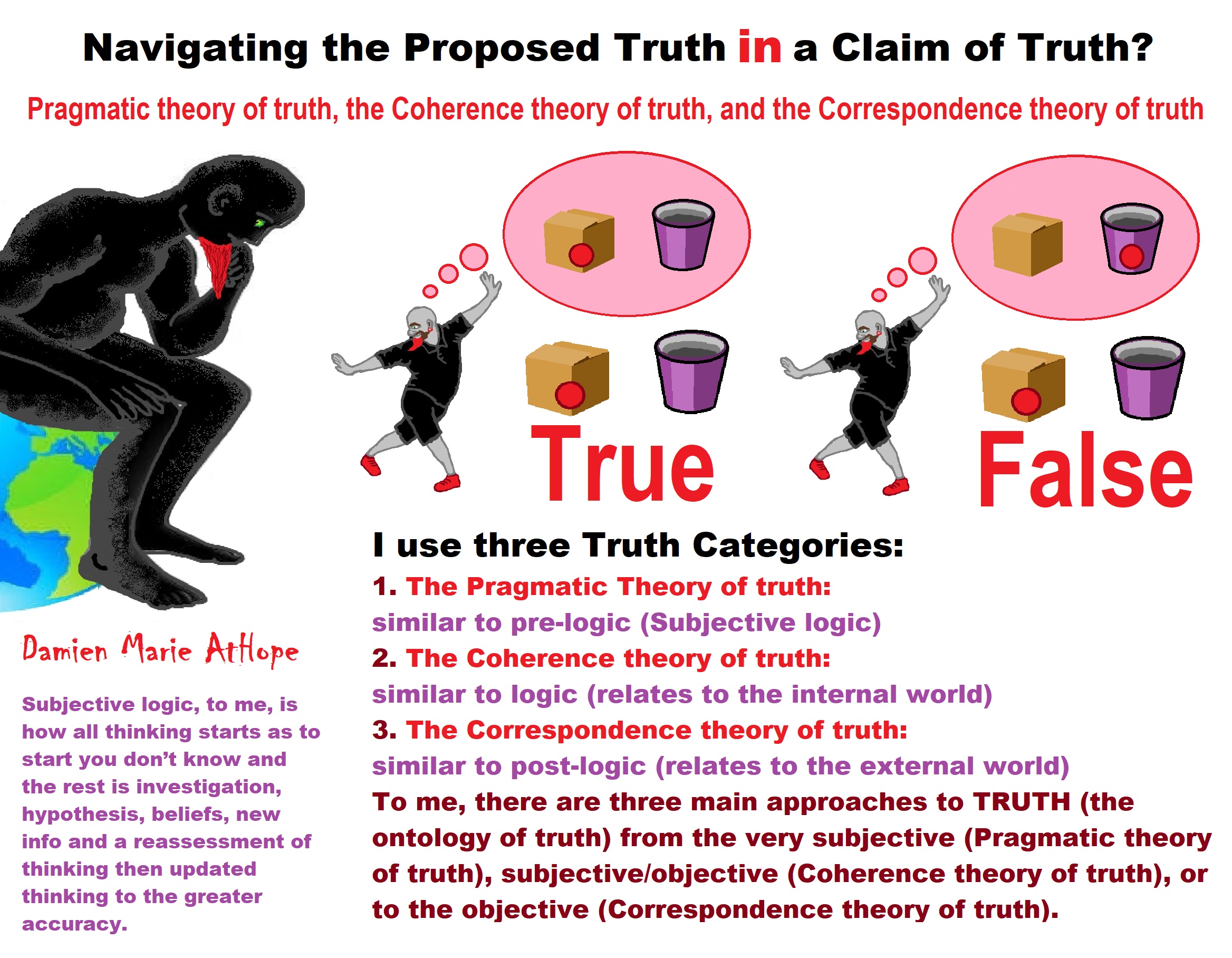
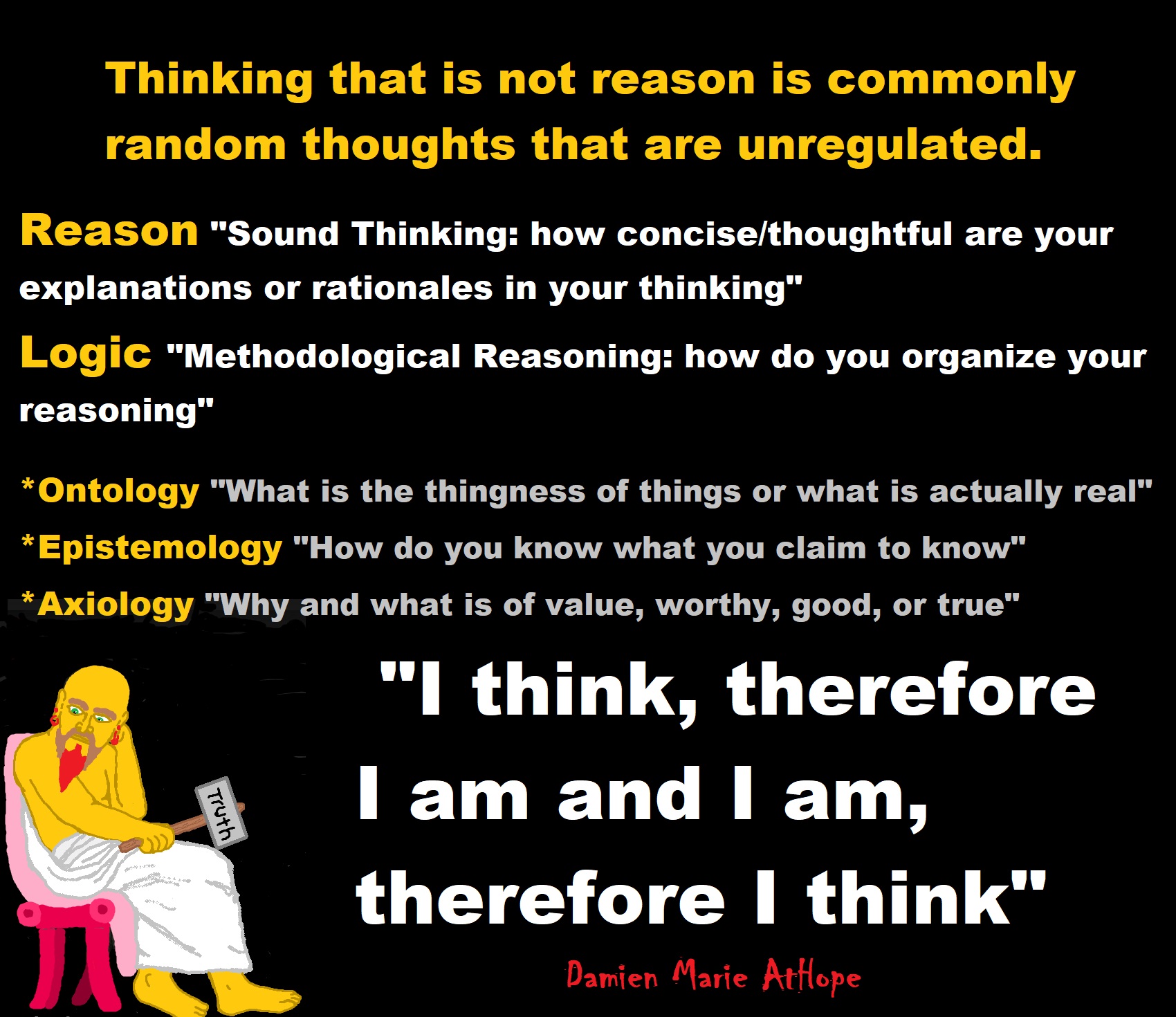
Grasping the status of truth (ontology of truth)
Authoritarian Truth Seekers and Anti-Authoritarian Truth Seekers?
I understand that there are truth seekers and non-truth seekers (because of disinterest, dogma “false sense of truth” and/or delusion).
But I also realize there are two types of truth seekers: Authoritarian Truth Seekers and Anti-Authoritarian Truth Seekers.
Authoritarian Truth Seekers: to me use an Authoritarian Personality to understand, analyze, confirm truth, and limit what is thought of as truth.
Authoritarian personality is a state of mind or attitude that is characterized by belief in absolute obedience or submissive to authority and possibly even one’s own authority, as well as the administration of that belief through the oppression of one’s subordinates. It is an ideology which entails accepting authority or hierarchical organization in the conduct of intellectual or human relations that includes authoritative, strict, or oppressive personality in truth acquisition and adherence to values or beliefs that are perceived as endorsed by followed leadership, authority of holy books, authority of gods, authority of beliefs held by someone who is favored or idolized, and authority of one’s own beliefs.
Anti-Authoritarian Truth Seekers: to me use an Anti-Authoritarian Personality to understand, analyze and confirm truth.
Anti-Authoritarian personality is a state of mind or attitude that is characterized by a cognitive application of freethought known as “freethinking” and is a philosophical viewpoint that holds that opinions should be formed on the basis of logic, reason, and empiricism, rather than authority, tradition, or other dogmas. Anti-Authoritarian personality is an opposition to authoritarianism, favoring instead full equality and open thinking in the conduct of intellectual or human relations, including democratic, flexible, or accessible personality in truth acquisition and adherence to values or beliefs perceived as endorsed by critical thinking and right reason which entails opposing authority as the means of conformation in truth attainment.
To me Anti-Authoritarian Truth Seekers are the only real seekers of truth.
To value faith as a means to know reality or the truth or something, is a mental weakness of wanting one’s beliefs about reality to matter more than the actual reality. Faith in relation of truth is at best just wishful emotions over rational understanding. 1, 2
Damien Marie AtHope, Thanks for your thoughts, you address interesting ideas but the issue you are addressing sounds a bit different than I was trying to say is doing an appeal to authority is a logical fallacy, so to limit one’s thinking to an appeal to authority is thinking strategy as a logical fallacy.
Challenger #2, it’s only a fallacy of the authority to which one is appealing is Not an authority in the field in question. For instance, if one’s argument is that, “Well even Richard Dawkins says the Big Bang proves the universe had a finite beginning,” (I’m making up the quote), that would be an appeal to authority fallacy because Dawkins is not an astrophysicist. However, if one quoted Krauss on this issue, it would not be fallacious. in a field for which I have no training, it’s perfectly reasonable for me to rely on experts and the consensus among experts.
Damien Marie AtHope, But even if I as an anti-authoritarianist were to accept an appeal to the scholarly articles on any scientific studies are valid only on the evidence and have nothing to do with the scientists or researchers. Just as if one wants to overturn any previous believed scientific theory it’s the evidence not in any way the person presenting it.
Challenger #1, Hmmm, I never got the impression that this post was about the logical fallacy known as: appeal to authority. However, when regarding the appeal to authority as a fallacy: if the the authority in question has made statements of an opinionated matter then I have to agree with Damien. However, if the appeal is to something the authority claimed based on the evidence and the current body of knowledge then I don’t think that would be considered a fallacy.
New respondent, Very succinct explanation of what divides believers from non-believers.
An argument from authority (Latin: argumentum ad verecundiam), also called an appeal to authority, is a common type of argument which can be fallacious, such as when an authority is cited on a topic outside their area of expertise or when the authority cited is not a true expert.[1]
Carl Sagan wrote of arguments from authority:
One of the great commandments of science is, “Mistrust arguments from authority.” … Too many such arguments have proved too painfully wrong. Authorities must prove their contentions like everybody else.[2]
Historically, opinion on the appeal to authority has been divided – it has been held to be a valid argument about as often as it has been considered an outright fallacy. John Locke, in his 1690 Essay Concerning Human Understanding, was the first to identify argumentum ad verecundiam as a specific category of argument. Although he did not call this type of argument a fallacy, he did note that it can be misused by taking advantage of the “respect” and “submission” of the reader or listener to persuade them to accept the conclusion. Over time, logic textbooks started to adopt and change Locke’s original terminology to refer more specifically to fallacious uses of the argument from authority. By the mid-twentieth century, it was common for logic textbooks to refer to the “Fallacy of appealing to authority,” even while noting that “this method of argument is not always strictly fallacious.” In the Western rationalistic tradition and in early modern philosophy, appealing to authority was generally considered a logical fallacy. More recently, logic textbooks have shifted to a less blanket approach to these arguments, now often referring to the fallacy as the “Argument from Unqualified Authority” or the “Argument from Unreliable Authority”. However, these are still not the only recognized forms of appeal to authority. For example, a 2012 guidebook on philosophical logic describes appeals to authority not merely as arguments from unqualified or unreliable authority, but as arguments from authority in general. In addition to appeals lacking evidence of the authority’s reliability, the book states that arguments from authority are fallacious if there is a lack of “good evidence” that the authorities appealed to possess “adequate justification for their views.” And there are other recognized fallacious arguments from authority. Among them, the “Fallacies” entry by Bradley Dowden in The Internet Encyclopedia of Philosophy states that “appealing to authority as a reason to believe something is fallacious […] when authorities disagree on this subject (except for the occasional lone wolf)” The “Fallacies” entry by Hans Hansen in The Stanford Encyclopedia of Philosophy similarly states that “when there is controversy, and authorities are divided, it is an error to base one’s view on the authority of just some of them.” However, Hansen’s entry in The Stanford Encyclopedia of Philosophy does not appear to share Dowden’s exception regarding “lone wolf” dissenting authorities.
Fallacious arguments from authority can also be the result of citing a non-authority as an authority. These arguments assume that a person without status or authority is inherently reliable. The appeal to poverty for example is the fallacy of thinking a conclusion is more likely to be correct because the one who holds or is presenting it is poor. When an argument holds that a conclusion is likely to be true precisely because the one who holds or is presenting it lacks authority, it is a fallacious appeal to the common man. A common example of the fallacy is appealing to an authority in one subject to pontificate on another – for example citing Albert Einstein as an authority on religion when his expertise was in physics. The attributed authority might not even welcome that authority, as with the “More Doctors Smoke Camels” ad campaign. However, it is also a fallacious ad hominem argument to argue that a person presenting statements lacks authority and thus their arguments do not need to be considered. As appeals to a perceived lack of authority, these types of argument are fallacious for much the same reasons as an appeal to authority.
Notable examples
Inaccurate chromosome number
In 1923, leading American zoologist Theophilus Painter declared, based on poor data and conflicting observations he had made, that humans had 24 pairs of chromosomes. From the 1920s to the 1950s, this continued to be held based on Painter’s authority, despite subsequent counts totaling the correct number of 23. Even textbooks with photos showing 23 pairs incorrectly declared the number to be 24 based on the authority of the then-consensus of 24 pairs. This seemingly established number created confirmation bias among researchers, and “most cytologists, expecting to detect Painter’s number, virtually always did so”. Painter’s “influence was so great that many scientists preferred to believe his count over the actual evidence”, to the point that “textbooks from the time carried photographs showing twenty-three pairs of chromosomes, and yet the caption would say there were twenty-four”. Scientists who obtained the accurate number modified or discarded their data to agree with Painter’s count.
Psychological basis
An integral part of the appeal to authority is the cognitive bias known as the Asch effect. In repeated and modified instances of the Asch conformity experiments, it was found that high-status individuals create a stronger likelihood of a subject agreeing with an obviously false conclusion, despite the subject normally being able to clearly see that the answer was incorrect. Further, humans have been shown to feel strong emotional pressure to conform to authorities and majority positions. A repeat of the experiments by another group of researchers found that “Participants reported considerable distress under the group pressure”, with 59% conforming at least once and agreeing with the clearly incorrect answer, whereas the incorrect answer was much more rarely given when no such pressures were present. Scholars have noted that the academic environment produces a nearly ideal situation for these processes to take hold, and they can affect entire academic disciplines, giving rise to groupthink. One paper about the philosophy of mathematics for example notes that, within mathematics,
If…a person accepts our discipline, and goes through two or three years of graduate study in mathematics, he absorbs our way of thinking, and is no longer the critical outsider he once was…If the student is unable to absorb our way of thinking, we flunk him out, of course. If he gets through our obstacle course and then decides that our arguments are unclear or incorrect, we dismiss him as a crank, crackpot, or misfit. Ref
Challenged or Challenging? (questions of ontology)
All thinkers should know that ontological (thingness) definition require answers and that need to answers in can we confirm or conclude what a god even is could be to as well as if god exists, what is a god, and how or where/how did you acquire such definitions; impossible or possible for a god to exist. “From a confirmed or concluded” you have or do not have well definite if a god to the reality of a god. When anyone talks of challenges they are generally in some way even if only a unstated presupposition will include or involve three things: 1. the ontology (the thingness of things), 2. the epistemology ( how you know what you think you believe or know) and 3. the axiology (what and why of value/worth/good)? The ontology is of core importance to require it by asking for ontological definition or definition. This would make a good first act of fighting without having to fight, by always try starting by making them define the details of any claims but it can be done just as easily for attacks as well. Ontology attacks: slow down and unpack any claims, “you said you know god is real.” What do you mean by the qualities, attribution, or thingness of the things involved in the term god or what do you know about the term god and is an estimate for the faith reality you agree to believe in. Ontology defense: slow down and unpack any attacks, “you said I can’t be moral or good without god.” What do you mean by the qualities, attribution, or thingness of the things involved in the term god or morality? Simply, ontology is a universal investigation pinpoint. Ontology is likely what is being addressed or is involved when the reality confirmed by science, and the scientific method is generally employs several philosophy tools realized or not and they are mainly rationalism, empiricism and skepticism/fallibilism and/or falsificationism.
Ontology, Epistemology, & Axiology argument/challenge protocol: https://damienmarieathope.com/2016/10/13/ontology-epistemology-axiology-argumentchallenge-protocol/
To me, belief ontologies address the conceptual schemas involved, at the intersection of three elements: a belief is a thinking system with a susceptibility to flaws, use ontological challenging or ontological disproofs which are logical arguments against by attacker/challenger access to the flaw, and attacker capability to exploit the flaw. Ontological disproofs, are sophisticated ontological arguments, ontological challenges or ontological disproofs accusations that demand equally sophisticated responses, to which, many people are unprepared. Belief or argument forms should be valid, to prove them sound or unsound, strong/weak, or well-defined/undefined, as weak premises must be shown to be false. By use ontological challenging, you are shining a light on its ways claimed or points proposed, outlined or arranged which equals a thing or its qualities to define it that makes the depth and fullness to a being or thing, like just what is provisional about the thing in question or offer, are the characteristics of adequate development structure and infrastructure of the ontology involved in claims or propositions as truth, fact, or knowledge? One ontological criticism focuses on the semantics that are given for quantifiers qualities used or involved as the notation of the language representations of the contents of belief talk, proposing that the qualities offered are fully alike (unequivocal) when the items or properties identified to you are likely one of the three partly unlike (equivocal). To me, ontologies are like an adequate way or web of elements involved in the thingness of things or ideas. Point by slow methodological point, is the most effective way to use ontological challenging. Ontologically challenge needs to be done, in order to develop in the other person, an ontological insecurity about what the person, place, thing, or idea are construction of and just what is being claimed, portrayed or proposed as truth, fact, or knowledge? A belief or set of beliefs, likely have a relationship between ideas of the thing expose the cracks and fissure in the conceptualizations divided up or overlap but often while a belief or set of beliefs are offered with assurance, they instead ontologically inadequate or almost completely ontologically empty. By exposing ontological volnurniblities or weakness in a belief or set of beliefs can rise person’s sense of ontological Insecurity as the thinker realized they may not know that that know. In my way of thinking as ontological insecurity refers or relates to in an existential sense a person’s sense of “belief” deflation, discrediting, or disproving. Such an ontologically insecure thinker, maybe so ontologically desperate, to stop/lower believing/accepting the level of “reality or existence” of the things or ideas they were just referring to. In contrast, the ontologically secure thinker, maybe so ontologically stable in relation to ontological commitment of their fragments involved to feel a high level. Ontological arguments or Ontological commitment need to demonstrate or require demonstration of the disciplined or disordered structures but, a priori and necessary premises to the conclusion
Ontological commitment structures:
*similarity vs logic: this is the difference between matchings (predicating about the similarity of ontology terms), and mappings (logical axioms, typically expressing logical equivalence or inclusion among ontology terms)
*atomic vs complex: whether the alignments we considered are one-to-one, or can involve more terms in a query-like formulation (e.g., LAV/GAV mapping)
*homogeneous vs heterogeneous: do the alignments predicate on terms of the same type (e.g., classes are related only to classes, individuals to individuals, etc.) or we allow heterogeneity in the relationship?
*type of alignment: the semantics associated to an alignment, assumption, equivalence, discontinues, part-of or any user-specified relationship. Ref
Many arguments fall under the category of the ontological, and they tend to involve arguments about the state of being or existing. More specifically, ontological arguments tend to start with an a priori theory about the organization of the universe. If that organizational structure is true, the argument will provide reasons why God must exist. Ontological disproofs are logical arguments against of the existence of a thing based on what it would be if it existed. These arguments are very important because they do not simply purport to prove that god(s) does not exist (like, say, the Easter Bunny or Martians), but that God cannot exist (like a square circle or a married bachelor). The basic form of these arguments is something like this:
If God exists, he must be like ‘X’. [Here ‘X’ = some attribute(s) of God, e.g., he must be good, loving, omnipotent, etc.].
‘X’ is actually impossible.
Therefore, god(s) cannot exist.
The traditional definition of an ontological argument contrasted the ontological argument (literally any argument “concerned with being”) with the cosmological and physio-theoretical arguments. According to the Kantian view, ontological arguments are those founded on a priori reasoning. Graham Oppy, who holds the view that he “see[s] no urgent reason” to depart from the traditional definition, defined ontological arguments as those that begin with “nothing but analytic, a priori and necessary premises” and conclude that God exists. Oppy admitted, however, that not all of the “traditional characteristics” of an ontological argument (analyticity, necessity, and a priority) are found in all ontological arguments and, in his 2007 work Ontological Arguments and Belief in God, suggested that a better definition of an ontological argument would employ only considerations “entirely internal to the theistic worldview”. Oppy subclassified ontological arguments into definitional, conceptual (or hyperintensional), modal, Meinongian, experiential, mereological, higher-order, or Hegelian categories, based on the qualities of their premises. He defined these qualities as follows: definitional arguments invoke definitions; conceptual arguments invoke “the possession of certain kinds of ideas or concepts”; modal arguments consider possibilities; Meinongian arguments assert “a distinction between different categories of existence”; experiential arguments employ the idea that God exists solely to those who have had experience of him; and Hegelian arguments are from Hegel. He later categorized mereological as arguments that “draw on… the theory of the whole-part relation”. William Lane Craig criticized Oppy’s study as too vague for useful classification. Craig argued that an argument can be classified as ontological if it attempts to deduce the existence of God, along with other necessary truths, from his definition. He suggested that proponents of ontological arguments would claim that, if one fully understood the concept of God, one must accept his existence. William L. Rowe defined ontological arguments as those that start from the definition of God and, using only a priori principles, conclude with God’s existence. Ref
In information science, an upper, top-level, or foundation ontology is an ontology which consists of very general terms (such as “object”, “property”, “relation”) that are common across all domains. An important function of an upper ontology is to support broad semantic interoperability among a large number of domain-specific ontologies by providing a common starting point for the formulation of definitions. Terms in the domain ontology are ranked “under” the terms in the upper ontology, and the former stand to the latter in subclass relations. A number of upper ontologies proposed, each with its own proponents. Each upper ontology can be considered as a computational implementation of natural philosophy, which itself is a more empirical method for investigating the topics within the philosophical discipline of physical ontology. Arguments for the infeasibility of an upper ontology: Historically, many attempts in many societies have been made to impose or define a single set of concepts as more primal, basic, foundational, authoritative, true or rational than all others. A common objection to such attempts points out that humans lack the sort of transcendent perspective – or God’s eye view – that would be required to achieve this goal. Humans are bound by language or culture, and so lack the sort of objective perspective from which to observe the whole terrain of concepts and derive any one standard. Another objection is the problem of formulating definitions. Top level ontologies are designed to maximize support for interoperability across a large number of terms. Such ontologies must therefore consist of terms expressing very general concepts, but such concepts are so basic to our understanding that there is no way in which they can be defined, since the very process of definition implies that a less basic (and less well understood) concept is defined in terms of concepts that are more basic and so (ideally) more well understood. Very general concepts can often only be elucidated, for example by means of examples, or paraphrase.
There is no self-evident way of dividing the world up into concepts, and certainly no non-controversial one
There is no neutral ground that can serve as a means of translating between specialized (or “lower” or “application-specific”) ontologies
Human language itself is already an arbitrary approximation of just one among many possible conceptual maps. To draw any necessary correlation between English words and any number of intellectual concepts we might like to represent in our ontologies is just asking for trouble. (WordNet, for instance, is successful and useful precisely because it does not pretend to be a general-purpose upper ontology; rather, it is a tool for semantic / syntactic / linguistic disambiguation, which is richly embedded in the particulars and peculiarities of the English language.) Any hierarchical or topological representation of concepts must begin from some ontological, epistemological, linguistic, cultural, and ultimately pragmatic perspective. Such pragmatism does not allow for the exclusion of politics between persons or groups, indeed it requires they be considered as perhaps more basic primitives than any that are represented. Those who doubt the feasibility of general purpose ontologies are more inclined to ask “what specific purpose do we have in mind for this conceptual map of entities and what practical difference will this ontology make?” This pragmatic philosophical position surrenders all hope of devising the encoded ontology version of “everything that is the case.” Finally, there are objections similar to those against artificial intelligence. Technically, the complex concept acquisition and the social / linguistic interactions of human beings suggests any axiomatic foundation of “most basic” concepts must be cognitive, biological or otherwise difficult to characterize since we don’t have axioms for such systems. Ethically, any general-purpose ontology could quickly become an actual tyranny by recruiting adherents into a political program designed to propagate it and its funding means, and possibly defend it by violence. Historically, inconsistent and irrational belief systems have proven capable of commanding obedience to the detriment or harm of persons both inside and outside a society that accepts them. How much more harmful would a consistent rational one be, were it to contain even one or two basic assumptions incompatible with human life? Many of those who doubt the possibility of developing wide agreement on a common upper ontology fall into one of two traps:
they assert that there is no possibility of universal agreement on any conceptual scheme; but they argue that a practical common ontology does not need to have universal agreement, it only needs a large enough user community (as is the case for human languages) to make it profitable for developers to use it as a means to general interoperability, and for third-party developer to develop utilities to make it easier to use; and
they point out that developers of data schemes find different representations congenial for their local purposes; but they do not demonstrate that these different representation are in fact logically inconsistent.
In fact, different representations of assertions about the real world (though not philosophical models), if they accurately reflect the world, must be logically consistent, even if they focus on different aspects of the same physical object or phenomenon. If any two assertions about the real world are logically inconsistent, one or both must be wrong, and that is a topic for experimental investigation, not for ontological representation. In practice, representations of the real world are created as and known to be approximations to the basic reality, and their use is circumscribed by the limits of error of measurements in any given practical application. Ontologies are entirely capable of representing approximations, and are also capable of representing situations in which different approximations have different utility. Objections based on the different ways people perceive things attack a simplistic, impoverished view of ontology. The objection that there are logically incompatible models of the world are true, but in an upper ontology those different models can be represented as different theories, and the adherents of those theories can use them in preference to other theories, while preserving the logical consistency of the necessary assumptions of the upper ontology.
The necessary assumptions provide the logical vocabulary with which to specify the meanings of all of the incompatible models. It has never been demonstrated that incompatible models cannot be properly specified with a common, more basic set of concepts, while there are examples of incompatible theories that can be logically specified with only a few basic concepts. Many of the objections to upper ontology refer to the problems of life-critical decisions or non-axiomatized problem areas such as law or medicine or politics that are difficult even for humans to understand. Some of these objections do not apply to physical objects or standard abstractions that are defined into existence by human beings and closely controlled by them for mutual good, such as standards for electrical power system connections or the signals used in traffic lights. No single general metaphysics is required to agree that some such standards are desirable. For instance, while time and space can be represented many ways, some of these are already used in interoperable artifacts like maps or schedules. Objections to the feasibility of a common upper ontology also do not take into account the possibility of forging agreement on an ontology that contains all of the primitive ontology elements that can be combined to create any number of more specialized concept representations.
Adopting this tactic permits effort to be focused on agreement only on a limited number of ontology elements. By agreeing on the meanings of that inventory of basic concepts, it becomes possible to create and then accurately and automatically interpret an infinite number of concept representations as combinations of the basic ontology elements. Any domain ontology or database that uses the elements of such an upper ontology to specify the meanings of its terms will be automatically and accurately interoperable with other ontologies that use the upper ontology, even though they may each separately define a large number of domain elements not defined in other ontologies. In such a case, proper interpretation will require that the logical descriptions of domain-specific elements be transmitted along with any data that is communicated; the data will then be automatically interpretable because the domain element descriptions, based on the upper ontology, will be properly interpretable by any system that can properly use the upper ontology. In effect elements in different domain ontologies can be *translated* into each other using the common upper ontology. An upper ontology based on such a set of primitive elements can include alternative views, provided that they are logically compatible.
Logically incompatible models can be represented as alternative theories, or represented in a specialized extension to the upper ontology. The proper use of alternative theories is a piece of knowledge that can itself be represented in an ontology. Users that develop new domain ontologies and find that there are semantic primitives needed for their domain but missing from the existing common upper ontology can add those new primitives by the accepted procedure, expanding the common upper ontology as necessary. Most proponents[who?] of an upper ontology argue that several good ones may be created with perhaps different emphasis. Very few are actually arguing to discover just one within natural language or even an academic field. Most are simply standardizing some existing communication. Another view advanced is that there is almost total overlap of the different ways that upper ontologies have been formalized, in the sense that different ontologies focus on a different aspect of the same entities, but the different views are complementary and not contradictory to each other; as a result, an internally consistent ontology that contains all the views, with means of translating the different views into the other, is feasible. Such an ontology has not thus far been constructed, however, because it would require a large project to develop so as to include all of the alternative views in the separately developed upper ontologies, along with their translations.
The main barrier to construction of such an ontology is not the technical issues, but the reluctance of funding agencies to provide the funds for a large enough consortium of developers and users. Several common arguments against upper ontology can be examined more clearly by separating issues of concept definition (ontology), language (lexicons), and facts (knowledge). For instance, people have different terms and phrases for the same concept. However, that does not necessarily mean that those people are referring to different concepts. They may simply be using different language or idiom. Formal ontologies typically use linguistic labels to refer to concepts, but the terms that label ontology elements mean no more and no less than what their axioms say they mean. Labels are similar to variable names in software, evocative rather than definitive. The proponents of a common upper ontology point out that the meanings of the elements (classes, relations, rules) in an ontology depend only on their logical form, and not on the labels, which are usually chosen merely to make the ontologies more easily usable by their human developers.
In fact, the labels for elements in an ontology need not be words – they could be, for example, images of instances of a particular type, or videos of an action that is represented by a particular type. It cannot be emphasized too strongly that words are *not* what are represented in an ontology, but entities in the real world, or abstract entities (concepts) in the minds of people. Words are not equivalent to ontology elements, but words *label* ontology elements. There can be many words that label a single concept, even in a single language (synonymy), and there can be many concepts labeled by a single word (ambiguity). Creating the mappings between human language and the elements of an ontology is the province of Natural Language Understanding. But the ontology itself stands independently as a logical and computational structure. For this reason, finding agreement on the structure of an ontology is actually easier than developing a controlled vocabulary, because all different interpretations of a word can be included, each *mapped* to the same word in the different terminologies. A second argument is that people believe different things, and therefore can’t have the same ontology.
However, people can assign different truth values to a particular assertion while accepting the validity of certain underlying claims, facts, or way of expressing an argument with which they disagree. (Using, for instance, the issue/position/argument form.) This objection to upper ontologies ignores the fact that a single ontology can represent different belief systems, representing them as different belief systems, without taking a position on the validity of either. Even arguments about the existence of a thing require a certain sharing of a concept, even though its existence in the real world may be disputed. Separating belief from naming and definition also helps to clarify this issue, and show how concepts can be held in common, even in the face of differing belief. For instance, wiki as a medium may permit such confusion but disciplined users can apply dispute resolution methods to sort out their conflicts. It is also argued that most people share a common set of “semantic primitives”, fundamental concepts, to which they refer when they are trying to explain unfamiliar terms to other people. An ontology that includes representations of those semantic primitives could in such a case be used to create logical descriptions of any term that a person may wish to define logically.
That ontology would be one form of upper ontology, serving as a logical “interlingua” that can translate ideas in one terminology to its logical equivalent in another terminology. Advocates[who?] argue that most disagreement about the viability of an upper ontology can be traced to the conflation of ontology, language and knowledge, or too-specialized areas of knowledge: many people, or agents or groups will have areas of their respective internal ontologies that do not overlap. If they can cooperate and share a conceptual map at all, this may be so very useful that it outweighs any disadvantages that accrue from sharing. To the degree it becomes harder to share concepts the deeper one probes, the more valuable such sharing tends to get. If the problem is as basic as opponents of upper ontologies claim, then, it also applies to a group of humans trying to cooperate, who might need machine assistance to communicate easily. If nothing else, such ontologies are implied by machine translation, used when people cannot practically communicate. Whether “upper” or not, these seem likely to proliferate.
Error Crushing Force of the Dialectic Questions and the Hammer of Truth
Error Crushing Force of the Dialectic Questions and the Hammer of Truth
*(Ontology) What are you talking about, please slow down and give me each specific detail individually?
*(Epistemology) How do you know that and why do you think it is justified or warranted?
*(Axiology) What is its value if any and why do you value that or why would anyone?
If you don’t already know, Dialectic is the art of investigating or discussing the truth of opinions.
What I am trying to say in this message of Dialectic Questions in order to find truth by giving people three questions that can be put towards almost anything and it help remove error and thus improved accuracy.
Ontology, Epistemology, & Axiology argument/challenge protocol
Grasping the status of truth (ontology of truth)
The Ontology of Humanistic Economics in Society?
Strong vs Weak Thinkers?
A strong thinker can deeply analyze their own positions removing all that are unworthy and updating to the most currently accurate. Whereas a weak thinker can only offer deep attacks to the positions of others that differ in thinking.
Just think, are your beliefs further supporting rhetoric or accuracy to the facts and are you ready to change if you have it the other way around?
Believer vs Thinker?
When you can, with all honesty, say that you put a similar voracity to one’s own ideas as they demand for others then they are a thinker not just a believer. And when you can quickly and eagerly relinquish any and all ideas, even the most cherished if they were not true; yes a willingness to discuss or discard if required, even if you like them is being a thinker and not just a unthinking believer.
We Love Generalizations (even if wrong)
We don’t like slow clear accurate thinking, no, we are bias irrational compulsive disordered hasty generalizations thinking beings.
We build our “belief” of the accuracy of our hasty generalizations one assertion at a time. In other words we add undue increasing assurance because we keep saying it over and over again, not because it’s actually accurate to the facts. We may cherry pick a few facts to support this error in thinking but that is intellectual dishonestly, as if it can be destroyed by the truth it should be. – Damien Marie AtHope
Here is my blog on rhetoric and stereotypes: Rhetoric & Stereotypes: Rethinking How We Think.
And, here is some information on hasty generalizations (also known as: argument from small numbers, statistics of small numbers, insufficient statistics, unrepresentative sample [form of], argument by generalization, faulty generalization, hasty conclusion [form of], inductive generalization, insufficient sample, lonely fact fallacy, over generality, over generalization)
Description: Drawing a conclusion based on a small sample size, rather than looking at statistics that are much more in line with the typical or average situation.
Logical Form:
Sample S is taken from population P.
Sample S is a very small part of population P.
Conclusion C is drawn from sample S.
Example #1:
My father smoked four packs of cigarettes a day since age fourteen and lived until age sixty-nine. Therefore, smoking really can’t be that bad for you.
Explanation: It is extremely unreasonable (and dangerous) to draw a universal conclusion about the health risks of smoking by the case study of one man.
Example #2:
Four out of five dentists recommend Happy Glossy Smiley toothpaste brand. Therefore, it must be great.
Explanation: It turns out that only five dentists were actually asked. When a random sampling of 1000 dentists were polled, only 20% actually recommended the brand. The four out of five result was not necessarily a biased sample or a dishonest survey, it just happened to be a statistical anomaly common among small samples.
Exception: When statistics of a larger population are not available, and a decision must be made or opinion formed if the small sample size is all you have to work with, then it is better than nothing. For example, if you are strolling in the desert with a friend, and he goes to pet a cute snake, gets bitten, then dies instantly, it would not be fallacious to assume the snake is poisonous.
Tip: Don’t base decisions on small sample sizes when much more reliable data exists.
Variation: The hasty conclusion is leaping to a conclusion without carefully considering the alternatives — a tad different than drawing a conclusion from too small of a sample. Ref
Addressing The Ethics of Belief
Yes, We All Have Beliefs; But What Does That Mean?
I am a rationalist not a skeptic
To me a “Rationalist”, knowing it or not will be more prone to axiology, strong atheism and or ignosticism. And “Skeptic”, knowing it or not will be more prone to nihilism, weak atheism and or agnosticism. Don’t get me wrong, “I Am a Rationalist and Support Reasonable Skepticism” https://damienmarieathope.com/2016/03/02/support-reasonable-skepticism/
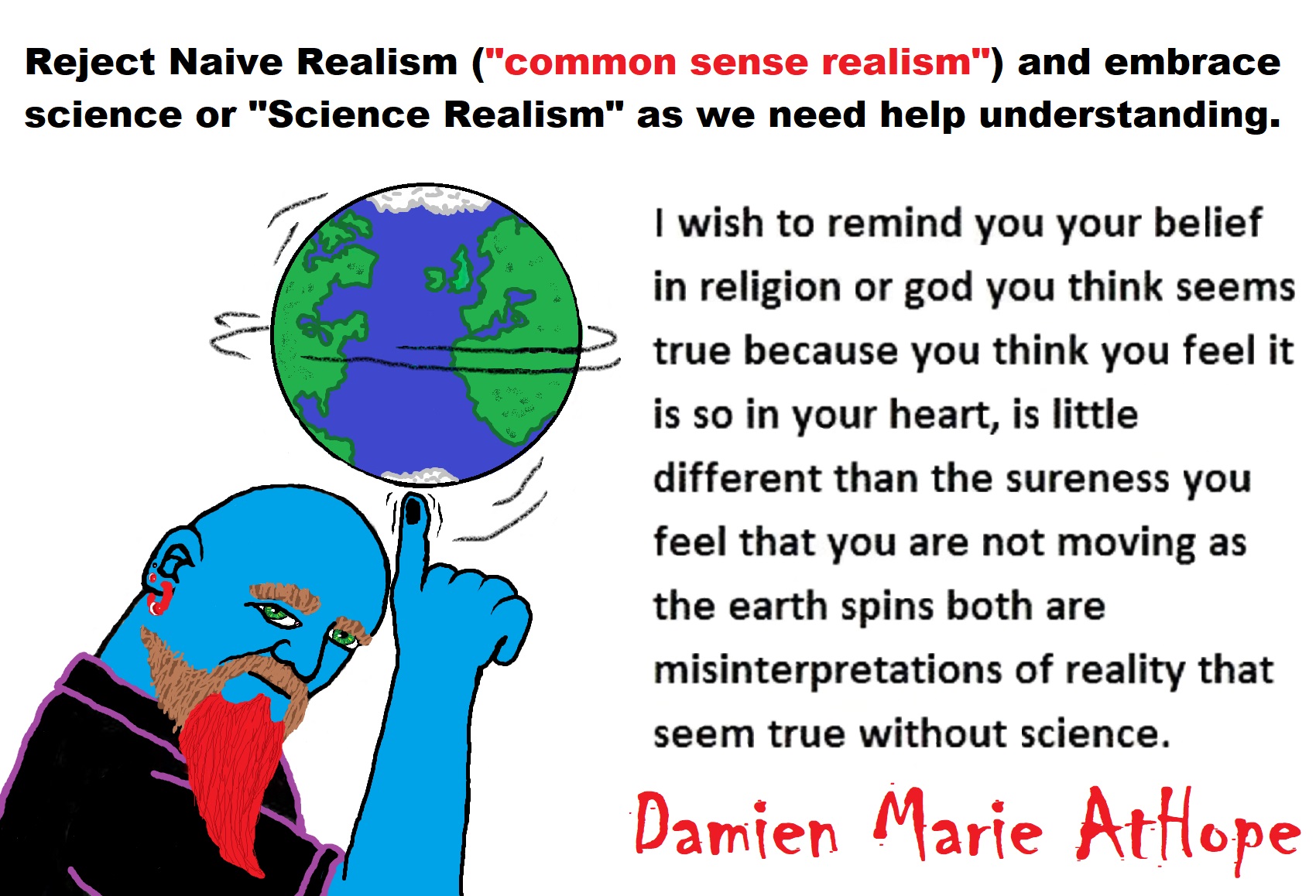
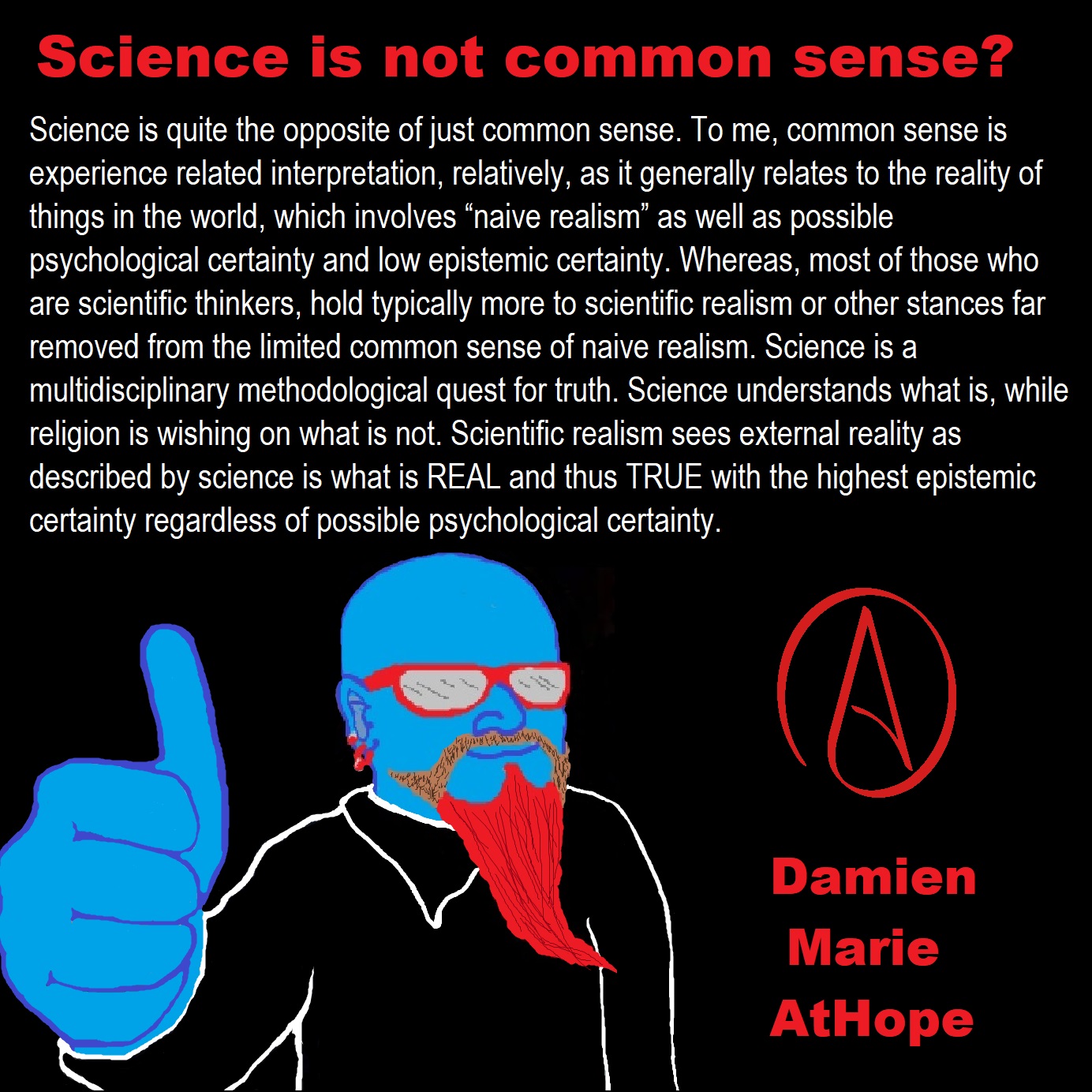
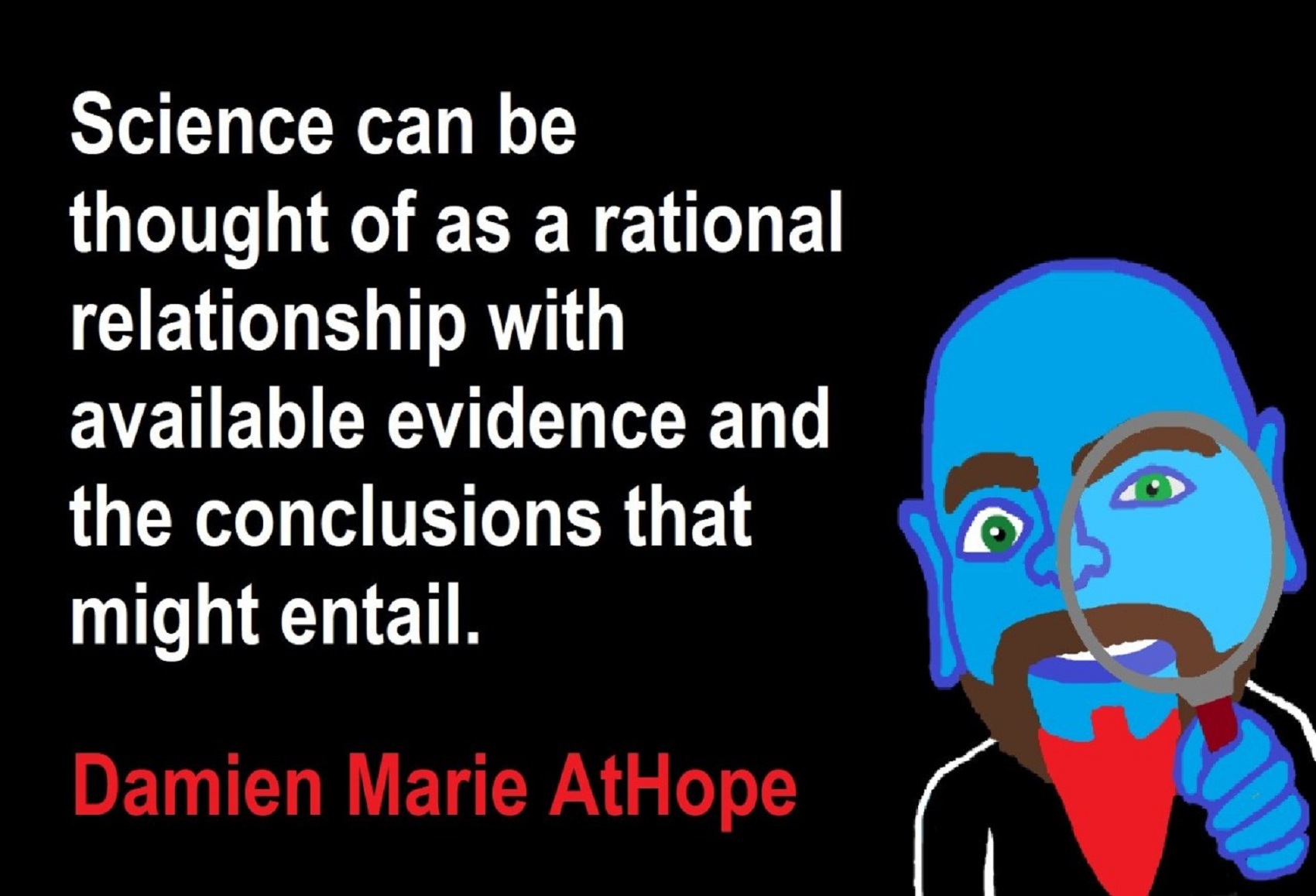
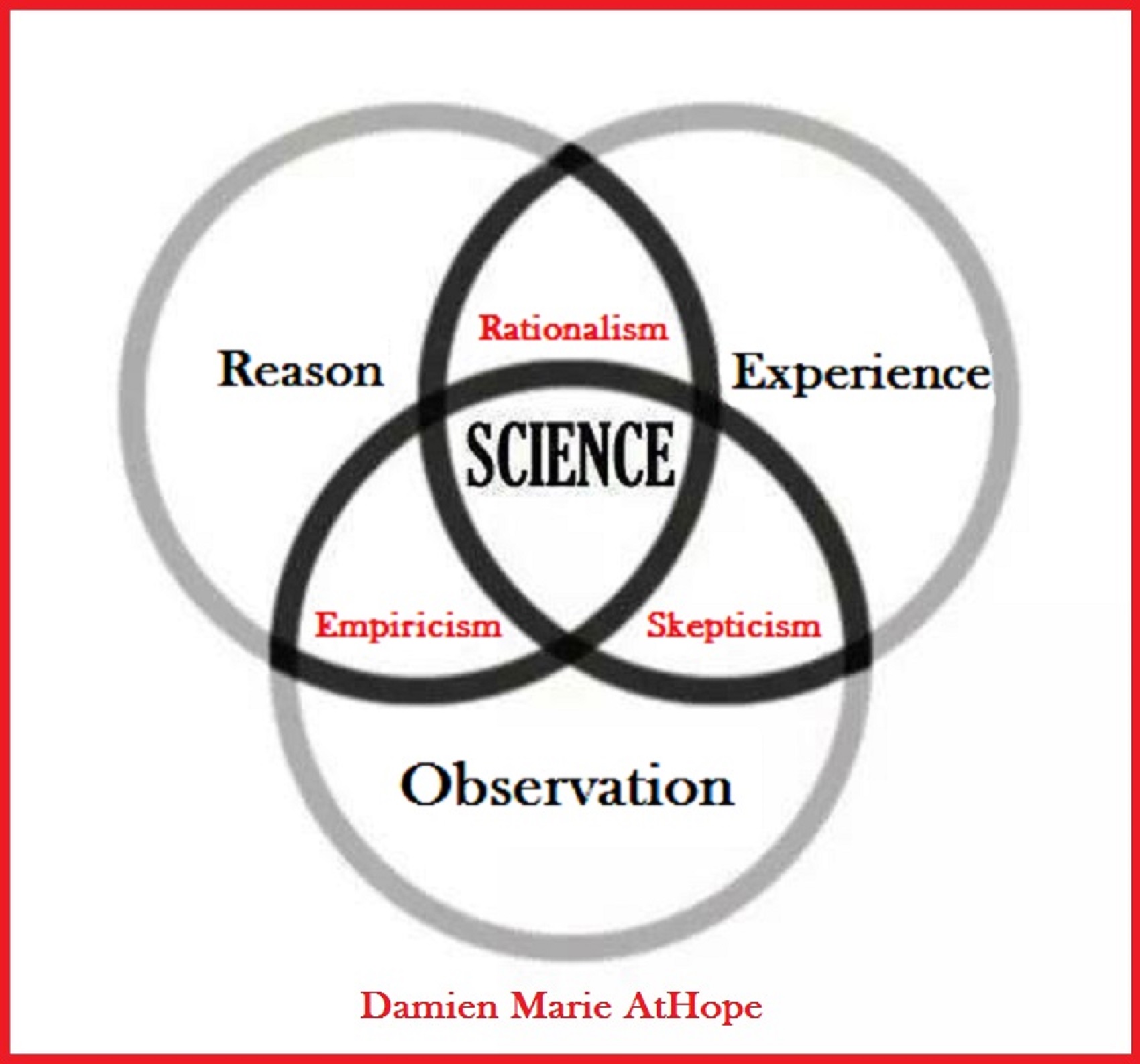
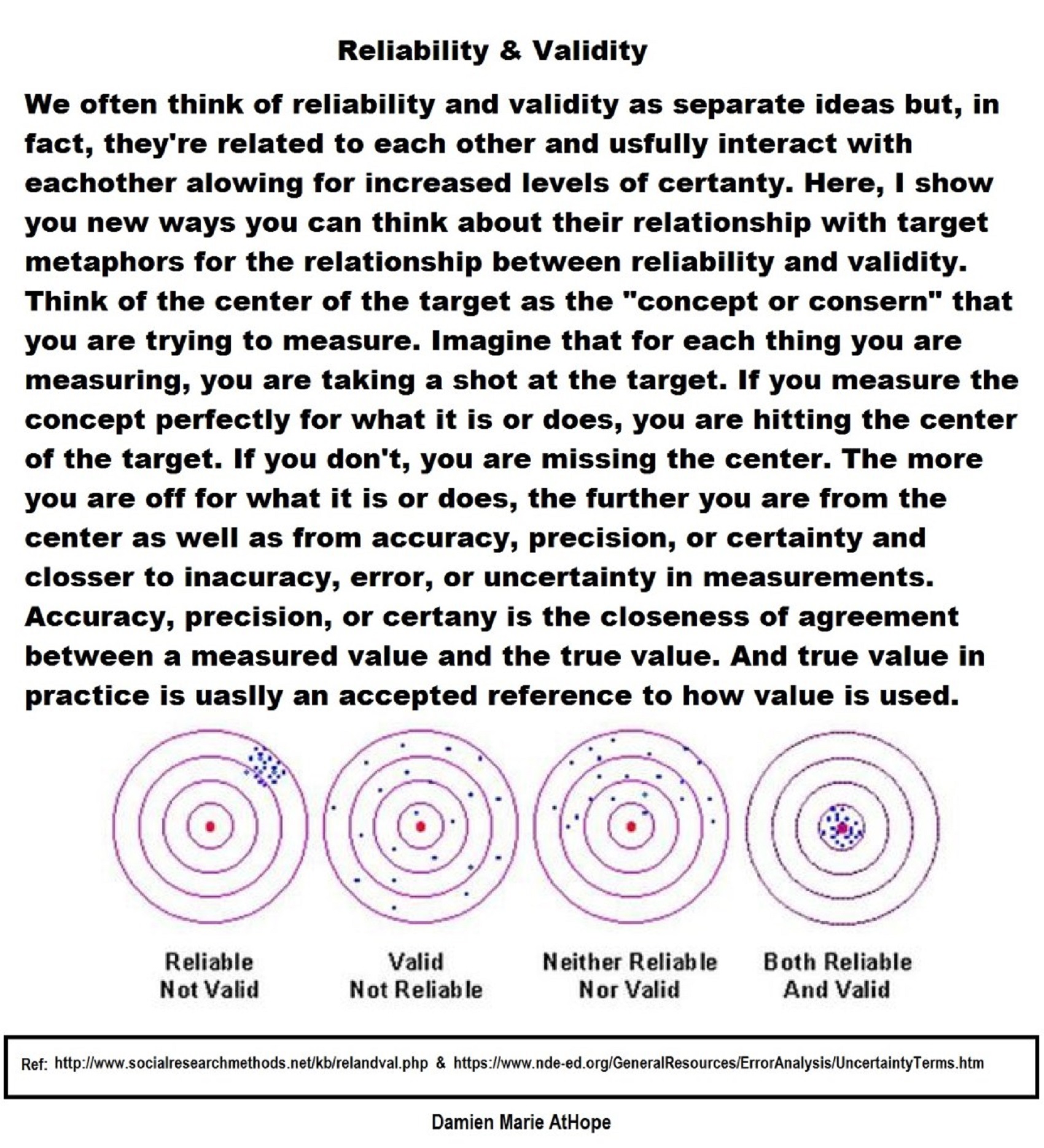
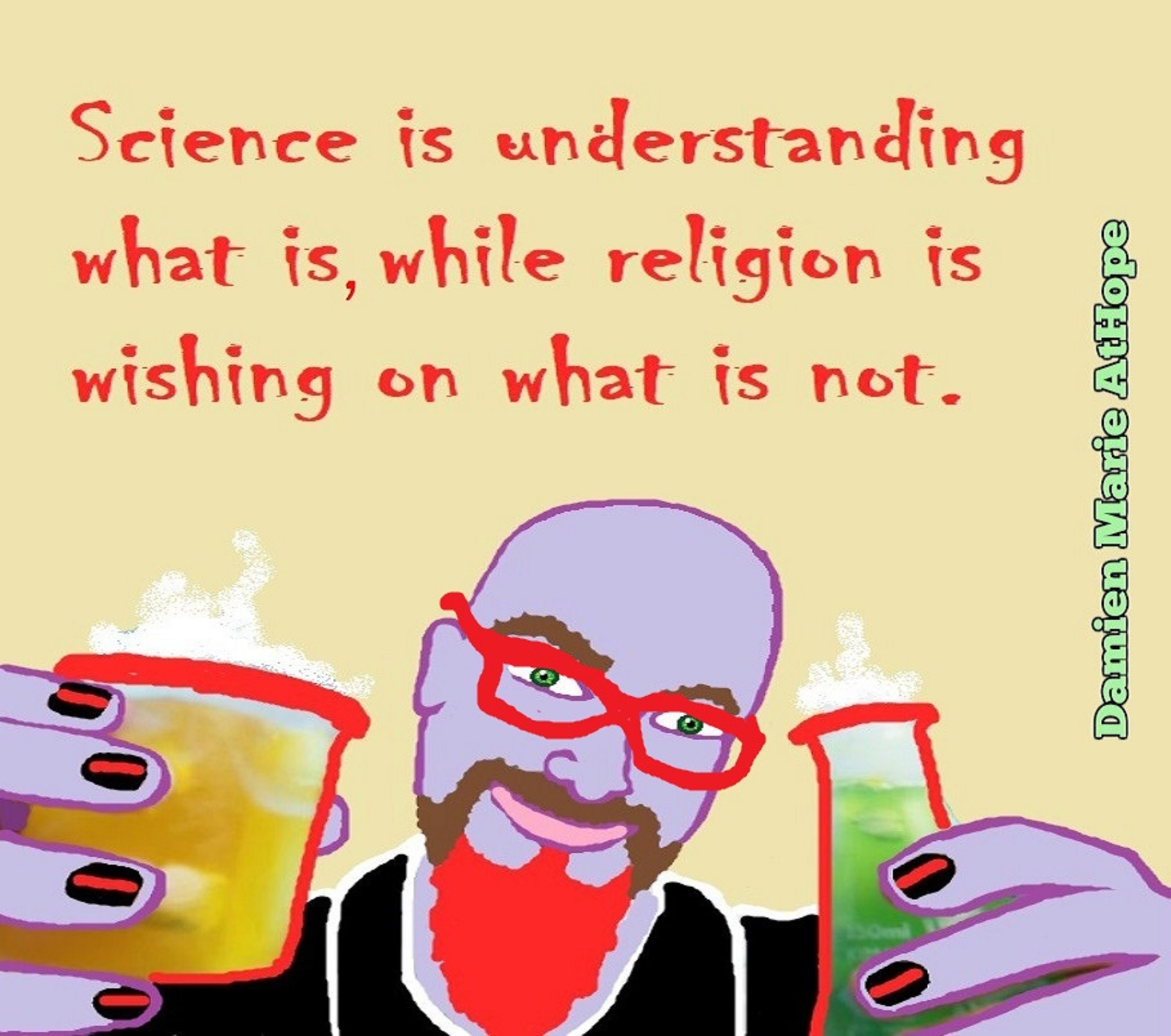
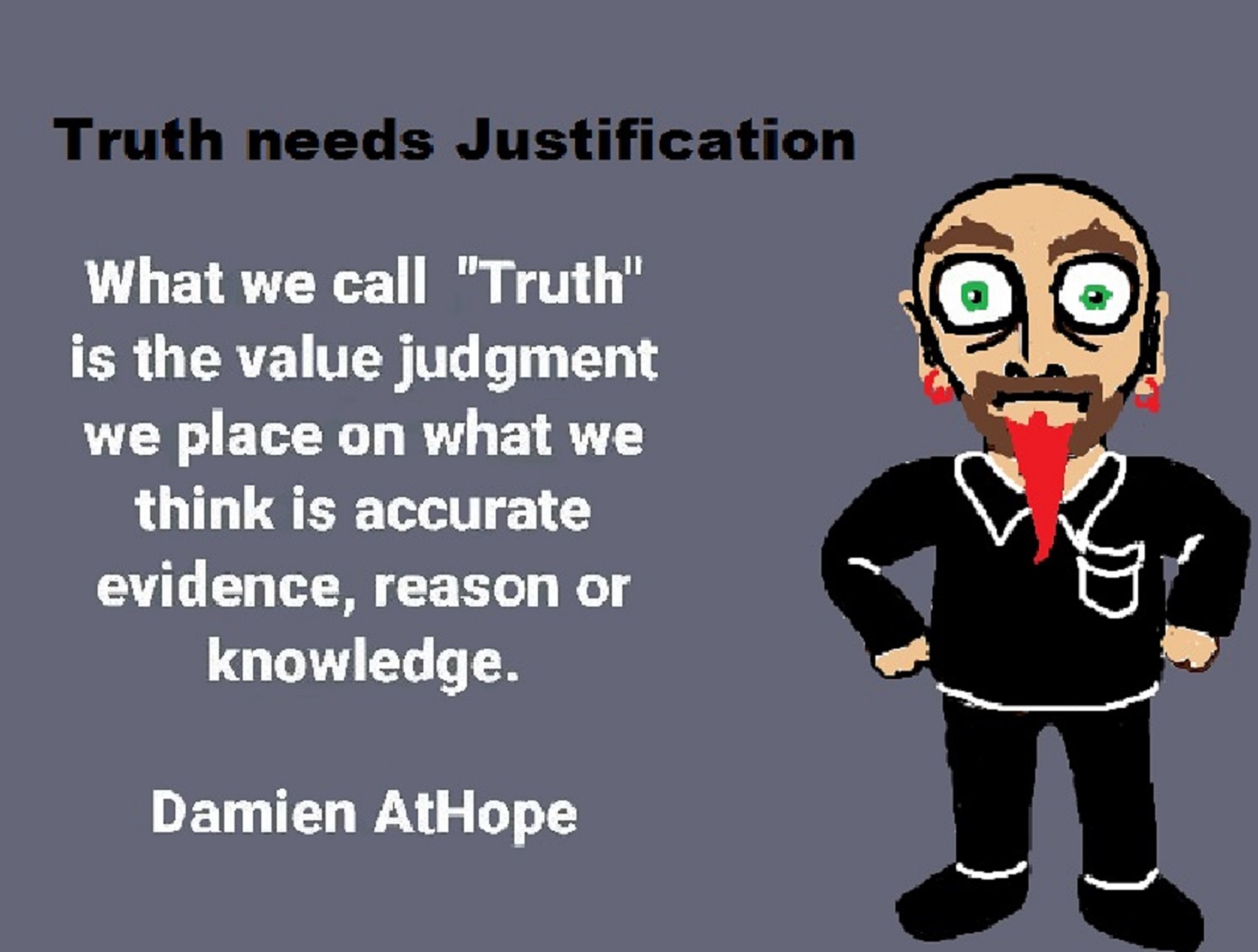
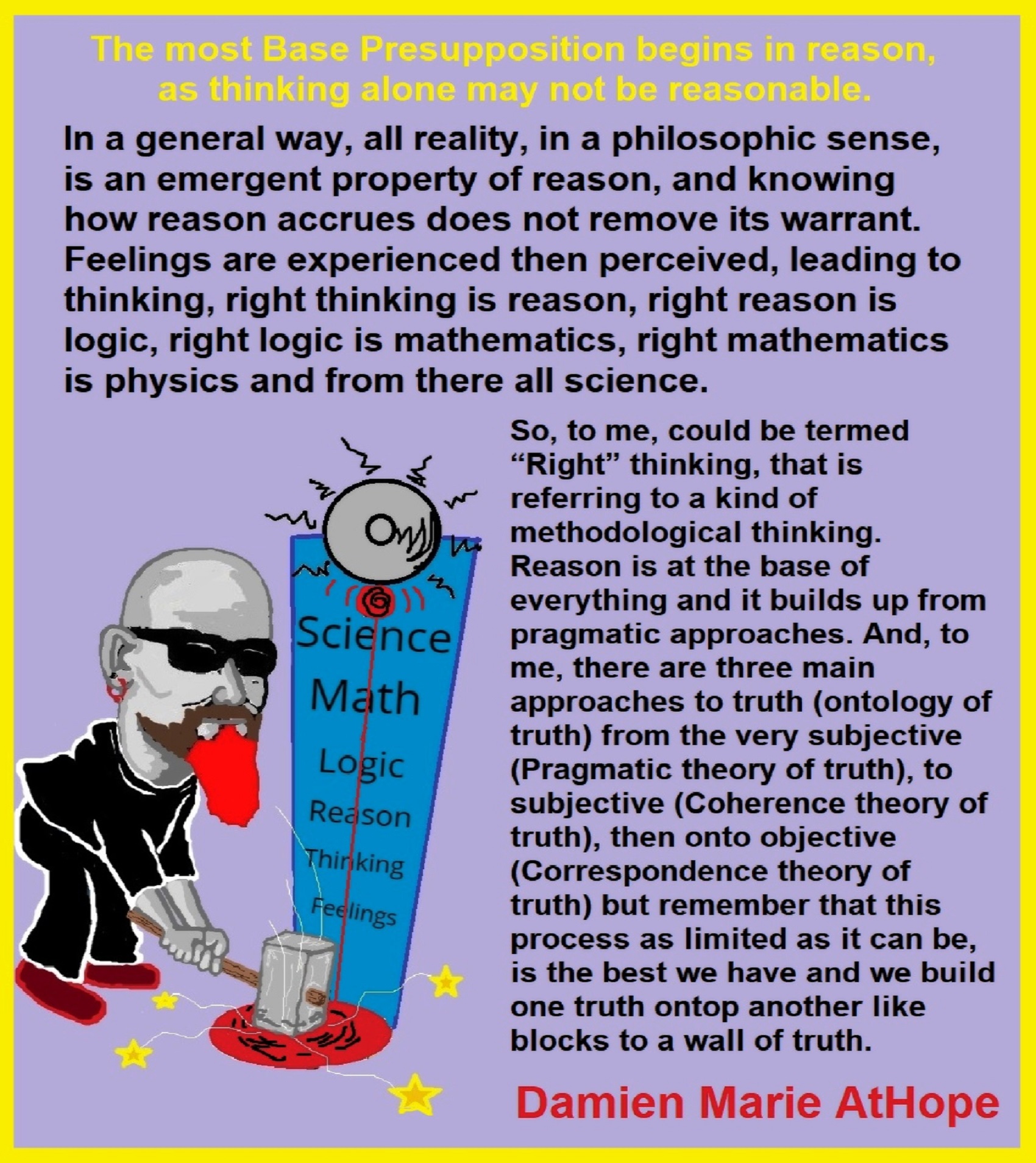
A wise person can even learn from things some people think are stupid.
A stupid person cannot even learn from someone who is wise.
Bigfoots, Unicorns, and Gods?
Bigfoots, Unicorns, and Gods the rational conclusion using axiology
So how do we form rational conclusions? More importantly how do we differentiate between the levels involved to establish a conclusions rational viability.
It takes axiology or the value judgment the worthiness or lack thereof in relation to the available reason and evidence.
So let’s start with the axiological viability of Bigfoots
There is no available evidence for Bigfoots.
But is their proposition outside of reason?
Always start in reality from the evidence we do know, such as a primate/nonhuman hominid close to that of both humans and other nonhuman primates is not entirely outside all possibility of reason even though lacking all evidence. Therefore, belief is not warrant and the axiological worthiness of possibility is low enough to motivate disbelief.
The axiological viability of Unicorns (ie. a horse with a single horn on its head)
There is no evidence for Unicorns.
But is their proposition outside of reason?
As always start in reality from the evidence we do know, such as by looking at the evolution of the horse not once was there a horn on any of the several stages of animals to the horse we know today. So it is relatively outside of possibility though as it is still only claiming non fantastic attributes it is only somewhat ridiculous. Therefore, belief is not in any way warranted and the axiological worthiness is so low to highly support disbelief.
Now the axiological validity of Gods
There is no evidence for Gods.
But is their proposition outside of reason?
As always start in reality from the evidence we do know, such as never in the history of scientific research or investigation has any supernatural claims shown to be true. So it is completely outside of possibility and is utterly ridiculous. Therefore, belief should be rejected as there are no warrants at all and it is axiologically unworthy to such a preponderance to demand disbelief.
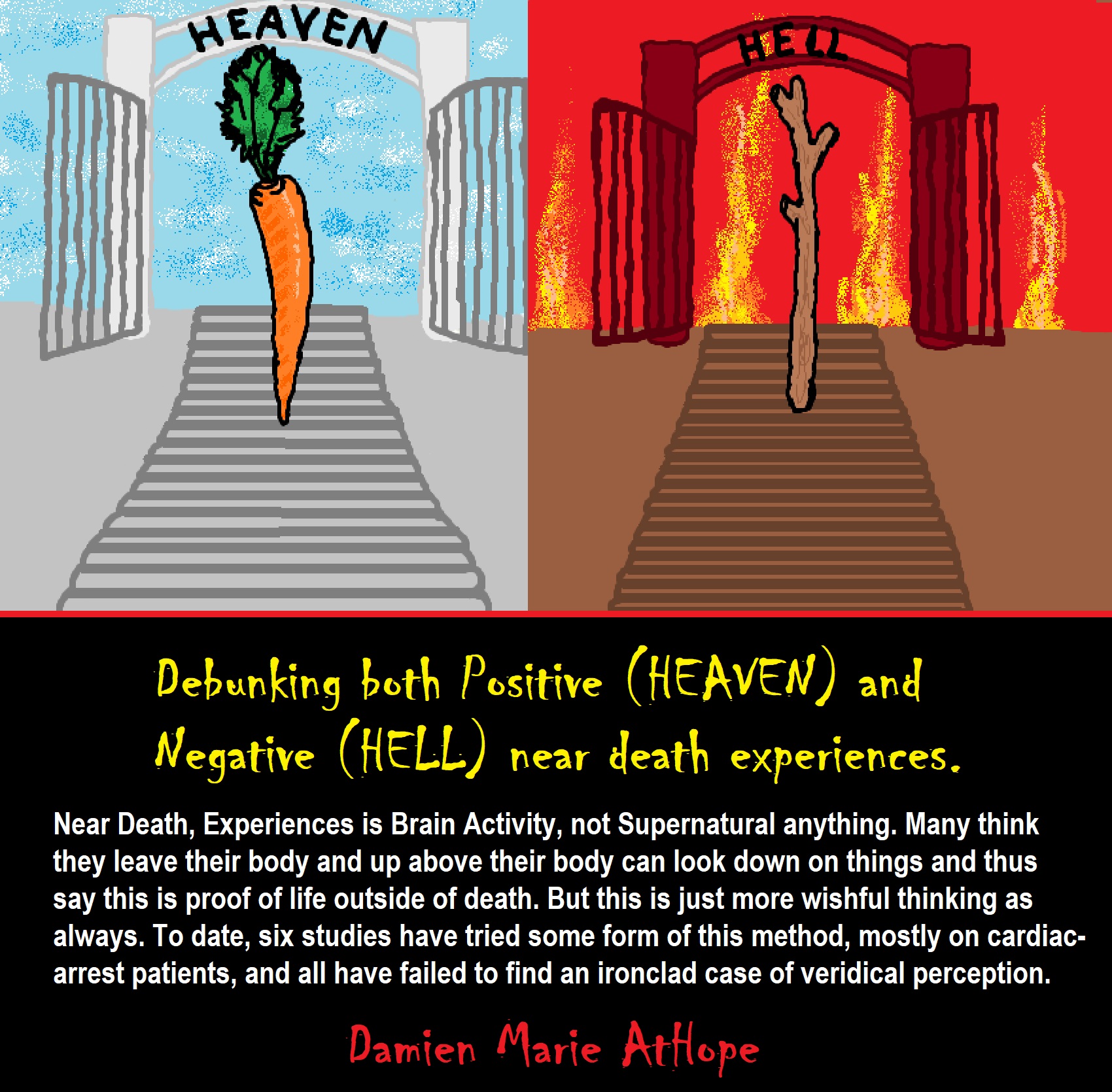
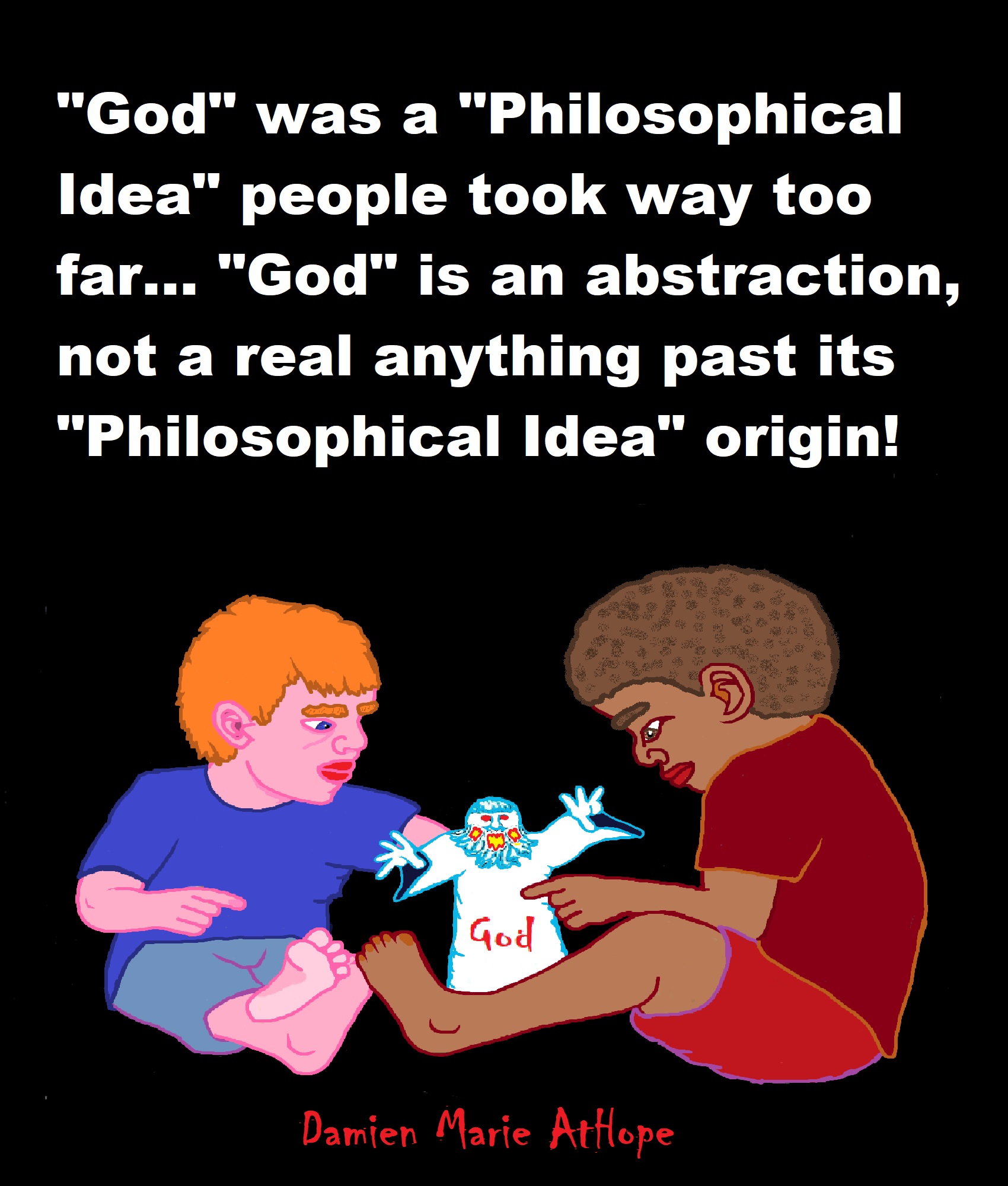
Theological Noncognitivist & Ignosticism
“Damien, I had a difficult time believing in God or any type because it seems unlikely that one supreme being could control everything yet allow hate, war, misery, suffering, and pain to hurt everyone on earth.” – Messanger
My response, well to hold the thinking that it is unlikely that one supreme being could control everything yet allow hate, war, misery, suffering, and pain to hurt everyone on earth. is actually an axiological atheism argument or moral argument against god(s).
No god Claims have Justification, Challenge?
“Damien, (responding to me saying no god claims have justification) there are problems thinking everything you believe needs a justification.” – Challenger
My response, so, are you saying something can be claimed as real but have no warrant to justify why one should agree or even entertain it?
“The idea that Induction is reliable can be claimed and seems like an important assumption, but arguments for it are fallacious. There are similar issues with thinking an external world exists.” – Challenger
My response, ok, and how do we discern any of it, if nothing has a need for justification? Because to me, I see you’re saying something is fallacious as asserting a justification stance and thus, is similar to what I think, which is valid, that there is a rationalistic need for justification. You are telling me I am wrong and that needs a justification, just as me showing your thinking wrong took a justification. If not then tell me how I am wrong utilizing no justification at all. So, try to prove me wrong because even if you do you will have provided a justification so then further proving my assertion of the need for justification.
“You are missing part of the conversation. Can you prove every belief needs a justification? Let’s say every belief needs a justification. Then you have to argue for every premise of every argument. That requires infinite arguments. What exactly is your argument that all beliefs require a justification? I am not challenging the importance of justification. I am challenging the idea that every belief has to have a justification. The example above is induction. Hume showed why arguments for induction will be fallacious. I did not just make the claim. Go ahead and prove induction is reliable if you can. It would revolutionize philosophy. In response to >>sure you can believe all kinds of things with no justification at all but we can’t claim them as true not wish others to actually agree unless something is somehow and or in some way justified. I already said every challenged claim in a debate has to be argued for. Every claim has a burden of proof anyway. Most beliefs that do not require justification are things basically everyone already agrees with. But if you debate someone who rejects the existence of an external world or the reliability of induction, you can’t prove that they have to agree as far as I can tell. In response to >>When is something true that has no justification? Lots of things are true and we don’t know they are true. To claim to know something is true is another issue. But maybe we know induction is reliable. Maybe we know there is an external world. If so, it’s not clear how we know those things. I already mentioned induction above and you never talked about it.” – Challenger
My response, “Sure, there can be many things that may be true but actually receiving rational agreement that they are intact true needs justification.”
“Right, I think we might have talked past one another a bit. I don’t expect agreement without a good argument.” – Challenger
My response, so you, like me want a justification?
Of course, it is a very important thing to me in general.” – Challenger
Agnosticism No Thanks, I am Ignostic
Is it correct to hold a belief that theists, such as Christians actually have a concept of something nonexistent labeled “GOD”, just like we all have a concept of something nonexistent labeled “unicorns”? Do they really have any reality tangible concept to label “the god concept” because without it are not beliefs about “the god concept” reality intangible? A concept of something nonexistent labeled “GOD”, is not tangible and is incapable of being perceived as something in or of reality. It is an unknowable reality intangible unfounded speculation, not a known concept. Such as, can we not form a somewhat reality tangible concept to label “the unicorn concept,” for we can conceive of a horse and a singular horn in order to intelligibly have a unicorn concept. Can we not generate a mental picture of a concept that fits the label unicorn, but one cannot really close their eyes and conjure up any concept of anything labeled “GOD” even though no one has any more reason to believe in unicorns then gods. I do reject that the god label has any meaning in reality and that any effort given to a god concept is still nothing but lies made up claiming to know or give believed qualities and it is that which I am rejecting as an atheist. But when asked if I believe an offered deity such as Allah to me I am a ignostic atheist (I reject the god label as expressing anything real and also reject the belief of any god concept connecting to anything real). I don’t believe that the label “God” refers to anything imaginable. That doesn’t mean I don’t also reject the claim offered thus am Atheist as well. You are saying I must choose and I am saying I don’t think I have to. If you ask is god an intelligible thing no. Do I believe the claims given to it? No. Thus, to me, I can be both, hold in myself the stance it (all god claims) is meaningless (lack any coherent offering linking reality to the term labeled gods) therefore, reason would seem to require an honest thinker to profess “Ignostic Thinking” (whether or not they know what the term labeled “Ignostic” even is) and reject their claim of a god so am an atheist. Further more religionists personally in most of my personal experience whether it is Christians, Jews, Muslims, etc., none really or truly understand much of what they like to talk about as if it’s fact magic that is not yet once even proven in a small way thus them asking other to some how take serious their big magic claims is not even require much consideration at all as its self debunking with no valid and reliable ontology to find or offer thus such claims as gods something offered with evidence of nothing are not really believable in a real way and are instead believed in a psychological way and it is this psychological battle that we must address as the so called believers are just self-lying and in a real way also do not really believe in a god at all as no one can, as there is no way to actually believe in an undefinable in reality, unknown from reality, and nonpositional to reality as the opposite is required to know something, therefore this only believe that they believe that the label “God” refers to something imaginable but god is like a square circle statable in words even understandable as separate pieces but impossible by design when added together. So we much over come the psychological certain belief that is not a normal reality belief, it is instead a psychological blind acceptance of the pseudo-reality thinking that is needed to formulate or accept a god (big magic claim or actually often a set of magic nonreality/pseudo-reality claim/claims) as if it was even more real than the actual reality (“faith-ism” or fideism).
Theological noncognitivism atheism: theological noncognitivism atheists – holds that the statement “god exists” does not express a proposition, but is nonsensical or cognitively meaningless. A theological noncognitivist atheist claims “god” does not refer to anything that exists, “god” does not refer to anything that does not exist, “god” does not refer to something that may or may not exist, and “god” has no literal significance, just as “Fod” has no literal significance. The term God was chosen for this example, obviously any theological term [such as “Yahweh” and “Allah”] that is not falsifiable is subject to scrutiny. Many people who label themselves “theological noncognitivists” claim that all alleged definitions for the term “God” are circular, for instance, “God is that which caused everything but God”, defines “God” in terms of “God”. They also claim that in Anselm’s definition “God is that than which nothing greater can be conceived”, that the pronoun “which” refers back to “God” rendering it circular as well. Others who label themselves “theological noncognitivists” argue in different ways, depending on what one considers the “theory of meaning” to be. Michael Martin, writing from a verificationist perspective, concludes that religious language is meaningless because it is not verifiable. 1
Ignostic atheism: ignosticism is similar to agnosticism, but where agnosticism is the claim that you can’t know something (god), ignosticism is the claim that, if the definition of something (god) is incoherent, then it can’t be meaningfully discussed, and if the definition of something (god) is unfalsifiable, then it has no meaning. Ignosticism or igtheism is the idea that every theological position assumes too much about the concept of God and other theological concepts. Ignosticism could possibly be one of the best argument against god concepts ever as it sees all efforts surrounding existence of a God concept semantically twisting the definition of God to mean that which is incomprehensible. If God is incoherent then the experiences believers attribute to God are by extension unintelligible and therefore meaningless. In which case you void any and all purported experiences of God because you couldn’t comprehend them. Ignostic atheism holds two interrelated views about to reject all God concepts. They are as follows: 1) The view that a coherent definition of God must be presented before the question of the existence of god can be meaningfully discussed. 2) If the definition provided is unfalsifiable, the Ignostic atheist takes the theological noncognitivist position that the question of the existence of a God concept is rendered meaningless thus must stay refuted. As with any topic, and especially in the realm of the supernatural and woo, the subject of any debate should be coherently defined. If one offers a clear definition of an entity, then in order to take a position whether it exists or not the definition of the entity must be one in which its existence can be falsified (there is a rational and logical method by which we can test the existence of the subject as it has been defined). Few theists ever offer a clear definition of God. The few who do offer a definition almost never offer one in which the existence of that God could be tested. The rare falsifiable definition offered regarding God’s existence is easily falsified. And so as with any subject (such as the existence of almost all supernatural entities) debate about the existence of God is, for the far majority of such conversations, pointless. 1 2 3
Noncognitivism atheism: is the position that religious language — and specifically religious terms like “god” — are not (cognitively) meaningful. Noncognitivism atheism argues that religious language is not meaningful because its empirical claims cannot be verified, even in theory. Likewise they further think there are no positive attributes that can be ascribed to entities like “god,” and entities without attributes are meaningless.This means that noncognitivism denies the essential meaningfulness of religious language, religious arguments, and religious apologetics. If they aren’t meaningful, then they can’t be either true or false and believing them to be true is pointless. 1
Evidential atheism: thinks that whether or not belief in a divine being is epistemically acceptable will be determined by the evidence. I intend to treat “evidence” in a broad sense including a priori arguments, arguments to the best explanation, inductive and empirical reasons, as well as deductive and conceptual premises. (Also note that one could be an evidentialist theist.) The evidentialist theist and the evidentialist atheist may have a number of general epistemological principles concerning evidence, arguments, implication in common, but then disagree about what the evidence is, how it should be understood, and what it implies. They may disagree, for instance, about whether the values of the physical constants and laws in nature constitute evidence for intentional fine tuning, but agree that whether God exists is a matter that can be explored empirically. 1
Non-evidential atheism: goes beyond a limitation in common atheism which likely is using evidentialist theory of knowledge which is any theory of knowledge that says that having evidence for a thing is necessary for knowing that thing. A non-evidentialist theory of knowledge denies this most commonly offering instead two additional non-evidentialist theories of knowledge: the causal theory, and reliabilism. Even if a belief lacks a credible rational it is not automatically irrational it may simply be utilizing a less supported or even wishful idealism stance that may even be somewhat flawed and yet still not irrational which is to be without the faculty of reason or deprived of reason. According to the Causal Theory of Knowledge, the difference between a true belief that isn’t knowledge and a true belief that is amounts to the following: if a true belief that P is knowledge, then it is causally connected to the fact that P. The simplest sort of causal connection would be direct: one where the fact that P is the cause of a subject’s belief that P. Causal connections can also be indirect: perhaps the fact that P causes the fact that Q which causes the subject to believe that P. It allow that you can know P if P is “logically related” to a fact that is causally connected to your believing P. According to the Reliabilism theory of Knowledge, which holds that the difference between mere true belief on the one hand and knowledge on the other is that the latter is formed via a reliable process: Reliabilism S knows that P if and only if S’s true belief that P was caused by a reliable process. What is a “reliable process”? Well, think of an analogy. A reliable car is one that generally works when you want it to. What “work” do we want our belief-forming processes to do? We want them to form true beliefs. So a reliable belief-forming process is one that generally leads to true beliefs. Reliabilism says that knowledge is true belief that was formed by a process that can generally be relied on to form true beliefs. As long as perception, memory, testimony, and reasoning are reliable in this sense, they can give us knowledge. If the processes of reasoning that lead us to form inductive generalizations (like “All men are mortal”) are reliable, then according to RT, they can lead us to knowledge. 1
Experiential atheism: The second type of argument commonly advanced against the doctrine of divine omniscience attributed to a god something, which is the problem of experiential knowledge. This is that there appear to be certain kinds of knowledge that can only be acquired by having certain kinds of experiences. The Problem of Experiential Knowledge: (1) There are some items of knowledge that can only be acquired through experience. (2) Some of the experiences through which items of knowledge that can only be acquired through experience are acquired are such that they cannot be had by a god something. (3) If some of the experiences through which items of knowledge that can only be acquired through experience are acquired are such that they cannot be had by a god something, then there are some items of knowledge that cannot be acquired by a god. Therefore: (4) There are some items of knowledge that cannot be acquired by a god something. (5) If there are some items of knowledge that cannot be acquired by a god something then it is not the case that a god something is omniscient. Therefore: (6) It is not the case that a god something is omniscient. 1
The Disproof Atheism Society: EMPIRICAL, CONCEPTUAL, and DISPROOFS of gOD
Disproof atheism is disbelief in the existence of God based on a comprehensive critique of proofs of God’s existence and a growing web of empirical and conceptual disproofs of God’s existence. This growing web of disproofs:
- addresses a variety of concepts of God held by major religions and leading theologians,
- demonstrates that each of these concepts of God not only contradicts empirical facts and scientific theories but is self-contradictory, and
- provides an ever more formidable cumulative case against the existence of God.
The Disproof Atheism Society, founded in 1994:
— is an independent, Boston-based, worldwide network of people interested in logic, science, and analytic philosophy who
support the development of disproof atheism.
— holds monthly talks, discussions, and other events (with a safe zone policy), usually at Boston University and often with
a featured speaker.
— hosted in 2010 the first-ever Disproof Atheism Conference, an all-day academic conference focused on conceptual
disproofs of God.
— provides resources and references on disproof atheism.
For additional information on the The Disproof Atheism Society, please contact info@disproofatheism.org.
“The more we consider the theological God,
the more impossible and contradictory will he appear.”
— Paul Thiry d’Holbach, The System of Nature, vol. 2 (1770)
EMPIRICAL DISPROOFS OF GOD
1. COSMOLOGICAL DISPROOFS
2. TELEOLOGICAL DISPROOFS
3. EVIDENTIAL EVIL DISPROOFS
4. NONBELIEF DISPROOFS
============================
1. COSMOLOGICAL DISPROOFS
Disproof from the contingency of the universe
Nicholas Everitt,
“The Argument from Imperfection: A New Proof of the Nonexistence of God,”
Philo 9, no. 2 (2006): 113-30
www.pdcnet.org/collection/show?id=philo_2006_0009_0002_0113_0130&file_type=pdf
Disproof from relativistic cosmology
Quentin Smith,
“Atheism, Theism, and Big Bang Cosmology,”
Australasian Journal of Philosophy 69 (1991): 48-65
Reprinted in M.Martin & R.Monnier (eds.), The Improbabillity of God (2006), pp. 41-60
www.infidels.org/library/modern/quentin_smith/cosmology.html
Quentin Smith,
“A Defense of the Cosmological Argument for God’s Nonexistence,”
W.L.Craig &Q.Smith(eds.),Theism, Atheism,& BigBang Cosmology (1993), pp.232-55
Reprinted in M.Martin & R.Monnier (eds.), The Improbability of God (2006), pp. 61-81
www.oxfordscholarship.com/view/10.1093/acprof:oso/9780198263838.001.0001/acprof-9780198263838-chapter-9
Disproofs from quantum cosmology
Quentin Smith,
“Stephen Hawking’s Cosmology and Theism,”
Analysis 54 (1994): 236-43
Reprinted in M.Martin & R.Monnier (eds.), The Improbability of God (2006), pp. 86-93
www.infidels.org/library/modern/quentin_smith/hawking.html
Quentin Smith,
“Why Stephen Hawking’s Cosmology Precludes a Creator,”
Philo 1, no. 1 (1998): 75-93
Reprinted in M.Martin & R.Monnier (eds.), The Improbability of God (2006), pp. 94-106
www.pdcnet.org/philo/content/philo_1998_0001_0001_0075_0093
Victor J. Stenger,
“A Scenario for a Natural Origin of our Universe,”
a slightly shorter version of Philo 9, no. 2 (2006): 93-102
http://arxiv.org/ftp/arxiv/papers/0710/0710.3137.pdf
Lawrence M. Krauss,
A Universe from Nothing: Why There is Something rather than Nothing (2012)
www.scribd.com/doc/123879510
Disproofs from the laws of physics
Victor J. Stenger,
“The Laws of the Void,”
Has Science Found God? (2003), pp. 187-218
Victor J. Stenger,
The Comprehensible Cosmos: Where Do the Laws of Physics Come From? (2006)
www.scribd.com/doc/90584308
Victor J. Stenger,
“Cosmic Evidence,”
God: The Failed Hypothesis (2007), pp. 113-36
2. TELEOLOGICAL DISPROOFS
Anthropic disproofs
Nicholas Everitt,
“Arguments from Scale,”
The Nonexistence of God (2004), pp. 213-26
Reprinted in M.Martin & R.Monnier (eds.), The Improbability of God (2006), pp. 111-24
Victor J. Stenger,
“The Anthropic Coincidences: A Natural Explanation,”
The Skeptical Intelligencer 3, no. 3 (1999): 2-17
Reprinted in M.Martin & R.Monnier (eds.), The Improbability of God (2006), pp. 125-49
www.stephenjaygould.org/ctrl/stenger_intel.html
Michael Ikeda and Bill Jefferys,
“The Anthropic Principle Does Not Support Supernaturalism,”
Reprinted in M.Martin & R.Monnier (eds.), The Improbability of God (2006), pp. 150-66
http://quasar.as.utexas.edu/anthropic.html
Design disproofs
Wesley C. Salmon,
“Religion and Science: A New Look at Hume’s Dialogues,”
Philosophical Studies 33 (1978): 143-76,
Reprinted in M.Martin & R.Monnier (eds.), The Improbability of God (2006), pp. 167-93
www.jstor.org/stable/4319203
Michael Martin,
“Atheistic Teleological Arguments,”
Atheism: A Philosophical Justification (1990), pp. 317-33
Reprinted in M.Martin & R.Monnier (eds.), The Improbability of God (2006), pp.198-214
Richard Dawkins,
“The Improbability of God,”
Free Inquiry 18, no. 3 (1998): 6-9
Reprinted in M.Martin & R.Monnier (eds.), The Improbability of God, pp. 223-29
https://richarddawkins.net/2014/06/the-improbability-of-god
Bruce and Francis Martin,
“Neither Intelligent nor Designed,”
Skeptical Inquirer 27, no. 6 (2003): 45-49
Reprinted in M.Martin & R.Monnier (eds.), The Improbability of God (2006), pp. 215-22
www.csicop.org/si/show/neither_intelligent_nor_designed
Raymond D. Bradley,
“God, Design, and Evolution: A Teleological Argument for Atheism” (2003)
www.sfu.ca/content/dam/sfu/philosophy/docs/bradley/design_by_god.pdf
Jerry A. Coyne,
“Does Evolution Improve Theology?” (2010)
http://whyevolutionistrue.wordpress.com/2010/05/09/does-evolution-improve-theology
Abby Hafer,
“Animals that Shouldn’t Exist, According to Intelligent Design” (2012)
http://uubedford.org/spirituality/sermons/900-qanimals-that-shouldnt-exist-according-to-intelligent-designq.html
Disembodied mind disproofs
Steven J. Conifer,
“Mind-Brain Dependence as Twofold Support for Atheism” (2001)
www.infidels.org/library/modern/steven_conifer/mbd.html
Jeffrey Jay Lowder,
“The Evidential Argument from Physical Minds” (2012)
www.patheos.com/blogs/secularoutpost/2012/06/the-evidential-argument-from-physical-minds.apm
3. EVIDENTIAL EVIL DISPROOFS
Evidential natural evil disproofs
Eric Russert Kraemer,
“Darwin’s Doubts and the Problems of Animal Pain,”
Between the Species 3 (August 2003)
http://digitalcommons.calpoly.edu/cgi/viewcontent.cgi?article=1058&context=bts
Quentin Smith,
“An Atheological Argument from Evil Natural Laws,”
International Journal for Philosophy of Religion 29 (1991): 159-74
Reprinted in M.Martin & R.Monnier (eds.), The Improbability of God (2006), pp. 235-49
www.infidels.org/library/modern/quentin_smith/evil_laws.html
Robert Francescotti,
“The Problem of Animal Pain and Suffering,”
J.McBrayer & D.Howard-Snyder (eds.), The Blackwell Companion to the Problem of Evil (2013), pp. 113-27
http://onlinelibrary.wiley.com/doi/10.1002/9781118608005.ch8/summary
William L. Rowe,
“The Problem of Evil and Some Varieties of Atheism,”
American Philosophical Quarterly 16 (1979): 335-41
Reprinted in M.Martin & R.Monnier (eds.), The Improbability of God (2006), pp. 250-61
http://homes.chass.utoronto.ca/~ekremer/resources/William%20Rowe.pdf
William L. Rowe,
“Evil and Theodicy,”
Philosophical Topics 16 (2) (1988):119-32
Reprinted in M.Martin & R.Monnier (eds.), The Improbability of God (2006), pp. 262-74
www.pdcnet.org/collection/show?id=philtopics_1988_0016_0002_0119_0132&file_type=pdf
William L. Rowe,
“The Evidential Argument from Evil: A Second Look,”
D. Howard-Snyder (ed.), The Evidential Argument from Evil (1996), pp. 262-85
Reprinted in M.Martin & R.Monnier (eds.), The Improbability of God (2006), pp. 275-301
William L. Rowe,
“Reply to Plantinga,”
Nous 32 (1998): 545-52
Reprinted in M.Martin & R.Monnier (eds.), The Improbability of God (2006), pp. 302-10
www.jstor.org/stable/2671875
Robert Bass,
“Many Inscrutable Evils,”
Ars Disputandi 11 (2011): 118-32
www.tandfonline.com/doi/pdf/10.1080/15665399.2011.10820061
Robert Bass,
“Inscrutable Evils: Still Numerous, Still Relevant,”
International Journal of Philosophy and Theology 75 (2014): 379-84
www.tandfonline.com/doi/full/10.1080/21692327.2015.1008024#abstract
Andrea M. Weisberger,
“The Pollution Solution: A Critique of Dore’s Response to the Argument from Evil,”
Sophia 36 (1997): 53-74
http://infidels.org/library/modern/andrea_weisberger/pollution.html
Andrea M. Weisberger,
“The Non-Concessionary Solutions: Natural Evil” and “The Final Solution,”
Suffering Belief (1999), pp. 101-24, 209-32
Nathan Nobis,
“The Real Problem of Infant and Animal Suffering,”
Philo 5, no. 2 (2002): 216-25
www.morehouse.edu/facstaff/nnobis/papers/newchigreply.htm
G. S. Paul,
“Theodicy’s Problem: A Statistical Look at the Holocaust of the Children and the Implications of Natural Evil for the Free Will and Best of All Possible Worlds Hypotheses,”
Philosophy & Theology 19 (2007): 125–49
http://gregspaul.webs.com/Philosophy&Theology.pdf
Paul Draper,
“God and Evil: A Philosophical Inquiry” (2011)
http://philreligion.nd.edu/assets/44795
David Kyle Johnson,
“Natural Evil and the Simulation Hypothesis,”
Philo 14, no. 2 (2011): 161-75
www.simulation-argument.com/johnson.pdf
David Kyle Johnson,
“The Failure of Plantinga’s Solution to the Logical Problem of Natural Evil,”
Philo 15, no. 2 (2012): 145-57
http://staff.kings.edu/davidjohnson/The%20Failure%20of%20Plantinga’s%20solution%20to%20the%20Logical%20Problem%20of%20Natural%20Evi%20v1.6.1%20(Corrections%20applied).pdf
Moti Mizrahi,
“The Problem of Natural Inequality: A New Problem of Evil,”
Philosophia 42 (2014): 127-36
http://philpapers.org/archive/MIZTPO
Robert Bass,
“Modal Evil and Divine Necessity” (2015)
https://drive.google.com/file/d/0B9Z66YKTauRBQnp4dl80OExMSUk/view?pli=1
Evidential moral evil disproofs
Andrea M. Weisberger,
“Depravity, Divine Responsibility and Moral Evil: A Critique of a New Free Will Defence,”
Religious Studies 31 (1995): 375-90
http://infidels.org/library/modern/andrea_weisberger/depravity.html
Andrea M. Weisberger,
“Moral Evil and Soulmaking,”
Suffering Belief (1999), pp. 125-62, 163-207
Joel Thomas Tierno,
“On the Alleged Connection between Moral Evil and Human Freedom,”
Sophia 40, no. 2 (2001): 1-6
www.springerlink.com/content/q543806847753h25
Joel Thomas Tierno,
“On the Alleged Connection between Moral Evil and Human Freedom: Response to Nagasawa and Trakakis,”
Sophia 43, no. 1 (2004): 115-26
www.springerlink.com/content/x3n28876w67830h3
Joel Thomas Tierno,
“On the Alleged Connection between Moral Evil and Human Freedom: A Response to Trakakis’ Second Critique,”
Sophia 45, no. 2 (2006): 131-38
www.springerlink.com/content/350868xj87811134
Joel Thomas Tierno,
“On the Alleged Connection between Moral Evil and Human Freedom: A Response to Trakakis’ Third Critique,”
Sophia 47, no. 2 (2008): 223-30
www.springerlink.com/content/qu5802310q060q40
Evidential epistemic evil disproofs
Robert J. Howell,
“The Theist’s Defeater: The Problem of Epistemic Evil”
www.rjhjr.com/philosophy/files/The%20Theist’s%20Defeater1.pdf
Joel Thomas Tierno,
Epistemic Evil: A Third Problem of Evil (2007)
4. NONBELIEF DISPROOFS
Disproofs from widespread nonbelief
Theodore M. Drange,
“The Argument from Nonbelief,”
Religious Studies 29 (1993): 417-32
Reprinted in M.Martin & R.Monnier (eds.), The Improbability of God (2006), pp. 341-56
http://commonsenseatheism.com/wp-content/uploads/2009/09/Drange-The-Argument-from-Non-Belief.pdf
Theodore M. Drange,
Nonbelief and Evil: Two Arguments for the Nonexistence of God (1998)
Theodore M. Drange,
“McHugh’s Expectations Dashed,”
Philo 5 (2002): 242-48
Reprinted in M.Martin & R.Monnier (eds.), The Improbability of God (2006), pp. 357-61
www.pdcnet.org/collection/show?id=philo_2002_0005_0002_0242_0248&file_type=pdf
Victor Cosculluela,
“Bolstering the Argument from Nonbelief,”
Religious Studies 32 (1996): 507-12
Reprinted in M.Martin & R.Monnier (eds.), The Improbability of God (2006), pp. 362-68
http://journals.cambridge.org/action/displayAbstract?fromPage=online&aid=1581164
Stephen Maitzen,
“Divine Hiddenness and the Demographics of Theism,”
Religious Studies 42 (2006): 177-91
http://philosophy.acadiau.ca/tl_files/sites/philosophy/resources/documents/Maitzen_Hiddenness.pdf
Theodore M. Drange,
“The Arguments from Confusion and Biblical Defects,”
M. Martin & R. Monnier (eds.), The Improbability of God (2006), pp. 369-79
www.infidels.org/library/modern/theodore_drange/confusion.html
Disproofs from reasonable nonbelief
J. L. Schellenberg,
Divine Hiddenness and Human Reason (1993)
J. L. Schellenberg,
“An Argument for Atheism from the Reasonableness of Nonbelief,”
M. Martin & R. Monnier (eds.), The Improbability of God (2006), pp. 390-404
J. L. Schellenberg,
“Response to Howard-Snyder,”
Canadian Journal of Philosophy 26 (1996): 455-62
Reprinted in M.Martin & R.Monnier (eds.), The Improbability of God (2006), pp.405-12
www.jstor.org/pss/40231958
J. L. Schellenberg,
“Divine Hiddenness Justifies Atheism,”
M.L.Peterson & R.J.VanArragon (eds.), Contemporary Debates in Philosophy of Religion (2004), pp. 30-41
Reprinted in M.Martin & R.Monnier (eds.), The Improbability of God (2006), pp.413-26
Philip Kuchar,
“God, Atheism and Incompatibility: The Argument from Nonbelief” (2001)
www.infidels.org/library/modern/philip_kuchar/anb.html
Robert P. Lovering,
“Divine Hiddenness and Inculpable Ignorance,”
International Journal for Philosophy of Religion 56 (2004): 89-107
www.academia.edu/8152109/Divine_Hiddenness_and_Inculpable_Ignorance
J. L. Schellenberg,
“The Hiddennes Argument Revisited (I),”
Religious Studies 41 (2005): 201-25
http://commonsenseatheism.com/wp-content/uploads/2009/09/Schellenberg-The-hiddenness-argument-revisited-I.pdf
J. L Schellenberg,
“The Hiddenness Argument Revisited (II),”
Religious Studies 41 (2005): 287-303
www.jstor.org/stable/20008599
J. L. Schellenberg,
“What Divine Hiddenness Reveals, or How Weak Theistic Evidence is Strong Atheistic Proof” (2008)
www.infidels.org/library/modern/john_schellenberg/hidden.html
J. L. Schellenberg,
“The Sounds of Silence Stilled: A Reply to Jordan on Hiddenness” (2008)
www.infidels.org/library/modern/john_schellenberg/silence-stilled.html
J. L. Schellenberg,
“The Hiddenness Problem and the Problem of Evil,”
Faith and Philosophy 27 (2010): 45-60
http://philpapers.org/archive/SCHTHP-5.pdf
J. L. Schellenberg,
“Divine Hiddenness,”
P.Draper &C.Talliaferro (eds.), A Companion toPhilosophy ofReligion(2010), pp.509-18
http://philpapers.org/archive/SCHDH.1.pdf
1. SINGLE ATTRIBUTE DISPROOFS
2. MULTIPLE ATTRIBUTES DISPROOFS
3. LOGICAL EVIL DISPROOFS
4. DOCTRINAL DISPROOFS
================================
1. SINGLE ATTRIBUTE DISPROOFS
Creator and designer disproofs
Quentin Smith,
“Causation and the Logical Impossibility of a Divine Cause,”
Philosophical Topics 24 (1996): 169-91
www.infidels.org/library/modern/quentin_smith/causation.html
Gilbert Fulmer,
“The Concept of the Supernatural,”
Analysis 37 (1976/77): 113-16
Reprinted in M.Martin & R.Monnier (eds.), The Impossibility of God (2003), pp. 326-29
www.jstor.org/stable/3327510
Gilbert Fulmer,
“A Fatal Logical Flaw in Anthropic Principle Design Arguments,”
International Journal for Philosophy of Religion 49 (2001): 101-110
www.jstor.org/pss/40018863
Richard D. Kortum,
“The Very Idea of Design: What God Couldn’t Do,”
Religious Studies 40 (2004): 81-96
www.jstor.org/pss/20008511
Omnibenevolence disproofs
Theodore Guleserian,
“Can Moral Perfection Be an Essential Attribute,”
Philosophy and Phenomenological Research 46 (1985): 219-41
www.jstor.org/pss/2107354
Earl Conee,
“The Nature and the Impossibility of Moral Perfection,”
Philosophy and Phenomenological Research 54 (1994): 815-25
www.jstor.org/pss/2108412
J. Gregory Keller,
“On Perfect Goodness,”
Sophia 49 (2010): 29-36
https://scholarworks.iupui.edu/bitstream/handle/1805/3207/On_Perfect_Goodness.pdf
Omnipotence disproofs
J. L. Cowan,
“The Paradox of Omnipotence,”
Analysis 25 (1965/supplement): 102-108
Reprinted in M.Martin & R.Monnier (eds.), The Impossibility of God (2003), pp. 330-36
www.jstor.org/stable/3326724
J. L. Cowan,
“The Paradox of Omnipotence Revisited,”
Canadian Journal of Philosophy 3 (1974): 435-45
Reprinted in M.Martin & R.Monnier (eds.), The Impossibility of God (2003), pp. 337-48
www.jstor.org/stable/40230457
Douglas Walton,
“The Omnipotence Paradox,”
Canadian Journal of Philosophy 4 (1975), pp. 705-15
www.jstor.org/pss/40230546
Douglas Walton,
“Some Theorems of Fitch on Omnipotence,”
Sophia 15, no. 1 (1976): 20-27
Reprinted in L. Urban & D. Walton (eds.), The Power of God: Readings on Omnipotence and Evil (1978), pp. 182-91
www.springerlink.com/content/3637585t0p637335
Loren Meierding,
“The Impossibility of Necessary Omnitemporal Omnipotence,”
International Journal for Philosophy of Religion 11 (1980): 21-26
www.jstor.org/pss/40012525
Tzachi Zamir,
“The Omnipotence Paradox as a Problem of Infinite Regress,”
Sophia 38, no. 1 (1999): 1-14
http://link.springer.com/article/10.1007%2FBF02806407
Sarah Adams,
“A New Paradox of Omnipotence.”
Philosophia 43 (2015): 759-85
http://link.springer.com/article/10.1007%2Fs11406-015-9601-y
Omniscience disproofs
Limit of the known disproof
Roland Puccetti,
“Is Omniscience Possible?”
Australasian Journal of Philosophy 41 (1963): 92-93
Reprinted in M.Martin & R.Monnier (eds.), The Impossibility of God (2003), pp. 379-80
www.tandfonline.com/doi/abs/10.1080/00048406312341561
Indexicals disproof
Patrick Grim,
“Against Omniscience: The Case from Essential Indexicals,”
Nous 19 (1985): 151-80
Reprinted in M.Martin & R.Monnier (eds.), The Impossibility of God (2003), pp. 350-52
www.jstor.org/stable/2214928
Patrick Grim,
“The Being That Knew Too Much,”
International Journal for Philosophy of Religion 47 (2000): 141-54 (esp. 141-44)
Reprinted in M. Martin & R. Monnier (eds.), The Impossibility of God (2003), pp. 408-21 (esp. 409-12)
www.pgrim.org/pgrim/Being.pdf (esp. pp. 2-6)
Patrick Grim,
“Problems with Omniscience,”
in J. P. Moreland et al. (eds.), Debating Christian Theism (2013)
www.pgrim.org/articles/omniscience9.pdf
Disproofs from expressive incompleteness and internal incompleteness
Patrick Grim,
“Logic and Limits of Knowledge and Truth,”
Nous 22 (1988): 341-67 (expressive esp. 347-51, 354-56; internal esp. 351-56)
Reprinted in M.Martin & R.Monnier (eds.), The Impossibility of God (2003), pp. 381-407 (expressive esp. 387-90, 393-95; internal esp. 390-95)
www.jstor.org/stable/2215708
Set of all truths disproof
Patrick Grim,
“Logic and Limits of Knowledge & Truth,”
Nous 22 (1988): 341-67 (esp. 356-59)
Reprinted in M.Martin & R.Monnier (eds.), The Impossibility of God (2003), pp. 381-407 (esp. 395-98)
www.jstor.org/stable/2215708
Patrick Grim,
“The Being that Knew Too Much,”
International Journal for Philosophy of Religion 47 (2000): 141-54 (esp. 147-52)
Reprinted in M. Martin & R. Monnier (eds.), The Impossibility of God (2003), pp. 408-21 (esp. 414-19)
www.pgrim.org/pgrim/Being.pdf (esp. pp. 10-19)
Patrick Grim,
“Problems with Omniscience,”
in J. P. Moreland et al. (eds.), Debating Christian Theism (2013)
www.pgrim.org/articles/omniscience9.pdf
Undefinability of truth disproof
Colin Howson,
“The Liar,”
Objecting to God (2011), pp. 200-205
Disproofs from propositional vs experiential knowledge
John Lachs,
“Professor Prior on Omniscience,”
Philosophy 38 (1963): 361-64
www.jstor.org/stable/3748601
Ryan Stringer,
“Omniscience and Learning” (2010)
www.infidels.org/library/modern/ryan_stringer/learning.html
Rob Lovering,
“Does God Know What It’s Like Not to Know?”
Religious Studies 49 (2013): 85-99
www.academia.edu/8152325/Does_God_Know_What_Its_Like_Not_to_Know
Collections of single attribute disproofs
Patrick Grim,
“Impossibility Arguments,”
in M. Martin (ed.), The Cambridge Companion to Atheism (2007), Chapter 12
https://worldtracker.org/media/library/Sociology/Philosophy%20-%20The%20Cambridge%20Companion%20Series/The%20Cambridge%20Companion%20to%20Atheism.pdf
Nicholas Everitt,
“The Divine Attributes,”
Philosophy Compass 5, no. 1 (2010): 78-90
www.academia.edu/28931352/The_Divine_Attributes
2. MULTIPLE ATTRIBUTES DISPROOFS
Omniscience vs omnipotence disproof
David Blumenfeld,
“On the Compossibility of the Divine Attributes,”
Philosophical Studies 34 (1978): 91-103
Reprinted in M.Martin & R.Monnier (eds.), The Impossibility of God (2003), pp. 220-31
www.jstor.org/stable/4319234
Yujin Nagasawa,
“Divine Omniscience and Experience: A Reply to Alter,”
Ars Disputandi (2003)
https://digitalcollections.anu.edu.au/bitstream/10440/1068/1/Nagasawa_Divine2003.pdf
Omniscience vs omnibenevolence disproofs
Michael Martin,
“A Disproof of the God of the Common Man,”
Question 7 (1974): 115-24
Reprinted in M.Martin & R.Monnier (eds.), The Impossibility of God (2003), pp. 232-41
Douglas P. Lackey,
“Divine Omniscience and Human Privacy,”
Philosophy Research Archives 10 (1984): 383-92
http://secure.pdcnet.org/pra/content/pra_1984_10_0_0383_0392
Omnipotence vs omnibenevolence disproofs
Joel Thomas Tierno,
“Omnibenevolence, Omnipotence, and God’s Ability to Do Evil,”
Sophia 36, no. 2 (1997): 1-11
www.springerlink.com/content/8007123045j77136
Wes Morriston,
“Omnipotence and Necessary Moral Perfection: Are They Compatible?”
Religious Studies 37 (2001): 143-60
http://spot.colorado.edu/~morristo/omnipotence-and-necesary-moral-perfection.pdf
Wes Morriston,
“Are Omnipotence and Necessary Moral Perfection Compatible? Reply to Mawson,”
Religious Studies 39 (2003): 441-49
http://spot.colorado.edu/~morristo/wes2mawson.pdf
Creator vs omnibenevolence disproof
Dagfinn Sjaastad Karlsen,
“Is God Our Benefactor? An Argument from Suffering,”
Journal of Philosophy of Life 3, no. 3 (2013): 145-67
www.philosophyoflife.org/jpl201309.pdf
Omniscience vs immutability disproof
Norman Kretzmann,
“Omniscience and Immutability,”
Journal of Philosophy 63 (1966): 409-21
Reprinted in M.Martin & R.Monnier (eds.), The Impossibility of God (2003), pp. 198-209
www.ditext.com/kretzmann/omni.html
Agency vs omniscience disproof
Tomis Kapitan,
“Omniscience and Agency,”
Religious Studies 27 (1991): 105-120
Reprinted in M.Martin & R.Monnier (eds.), The Impossibility of God (2003), pp. 282-99
www.academia.edu/13052945/Agency_and_Omniscience_-_1991
Tomis Kapitan,
“The Incompatibility of Omniscience and Intentional Action: A Reply to David P. Hunt,”
Religious Studies 30 (1994): 55-66
Reprinted in M.Martin & R.Monnier (eds.), The Impossibility of God (2003), pp. 300-12
www.academia.edu/13057219/The_Incompatibility_of_Omniscience_and_Intentional_Action_-_1994
Agency vs omni attributes disproof
Matt McCormick,
“The Paradox of Divine Agency,”
in M. Martin & R. Monnier (eds.), The Impossibility of God (2003), pp. 313-22
www.csus.edu/indiv/m/mccormickm/DivineAgency.htm
Agency vs disembodiedness disproofs
Adel Daher,
“The Coherence of God-Talk,”
Religious Studies 12 (1976): 445-65
www.jstor.org/pss/20005372
Kai Nielsen,
“God, Disembodied Existence and Incoherence,”
Sophia 26, no. 3 (1987): 27–52
www.springerlink.com/content/m31x0773t8402247
Consciousness vs disembodiedness disproof
Greg Janzen,
“Consciousness and the Nonexistence of God,”
Journal of Philosophical Research 38 (2013): 1-25
www.academia.edu/23539866/Consciousness_and_the_Nonexistence_of_God
Consciousness vs omnipresence disproof
Matt McCormick,
“Why God Cannot Think: Kant, Omnipresence, and Consciousness,”
Philo 3, no. 1 (2000): 5-19
Reprinted in M. Martin & R. Monnier (eds.), The Impossibility of God (2003), pp. 213-22
http://commonsenseatheism.com/wp-content/uploads/2009/09/McCormick-Why-God-Cannot-Think.pdf
Collections of multiple attributes disproofs
Michael Martin,
“Divine Attributes and Incoherence,”
Atheism: A Philosophical Justification (1990), pp. 286-316
Michael Martin,
“Omniscience and Incoherence,”
in G.Holmstrom-Hintikka(ed.), Medieval Philosophy and ModernTimes (2000), pp.17-34
http://link.springer.com/chapter/10.1007/978-94-011-4227-4_2
Michael Martin,
“Theism and Incoherence,”
P.Draper &C.Talliaferro(eds.), A Companion to Philosophy ofReligion(2010), pp.267-73
http://michaelsudduth.com/wp-content/uploads/2013/02/A-Companion-to-Philosophy-of-Religion.pdf
Theodore M. Drange,
“Incompatible-Properties Arguments: A Survey,”
Philo 1, no. 2 (1998): 49-60
Reprinted in M. Martin & R. Monnier (eds.), The Impossibility of God (2003), pp. 185-97
www.infidels.org/library/modern/theodore_drange/incompatible.html
Moti Mizrahi,
“New Puzzles about Divine Attributes,”
European Journal for Philosophy of Religion 5, no. 2 (2013)
http://philpapers.org/archive/MIZNPA
3. LOGICAL EVIL DISPROOFS
J. L. Mackie,
“Evil and Omnipotence,”
Mind 64 (1955): 200-12
www.ditext.com/mackie/evil.html
H. J. McCloskey,
“The Problem of Evil,”
Journal of Bible and Religion 30 (1962): 187-97
www.jstor.org/stable/1460031
H. J. McCloskey,
“Evil and the Problem of Evil,”
Sophia 5, no. 1 (1966): 14-19
www.springerlink.com/content/f956ul603448107u
H. J. McCloskey,
God and Evil (1974)
Mark Walker,
“The Anthropic Argument against the Existence of God,”
Sophia 48 (2009): 351-78
http://philos.nmsu.edu/faculty-and-staff/mark-walkers-home-page
Horia Plugaru,
“The Argument from the Existence of Nondeities” (2013)
http://infidels.org/library/modern/horia_plugaru/aend.html
Richard R. La Croix,
“Unjustified Evil and God’s Choice,”
Sophia 13, no. 1 (1974): 20-8
Reprinted in M.Martin & R.Monnier (eds.), The Impossibility of God (2003), pp. 116-24
http://commonsenseatheism.com/wp-content/uploads/2009/09/la-Croix-Unjustified-Evil-and-Gods-Choice.pdf
Hugh LaFollette,
“Plantinga on the Free Will Defense,”
International Journal for Philosophy of Religion 22 (1980): 123-32
www.hughlafollette.com/papers/Plantinga_on_the_Free_Will_Defense.pdf
J. L. Mackie,
“The Problem of Evil,”
The Miracle of Theism (1982), pp. 150-76
Reprinted in M.Martin & R.Monnier (eds.), The Impossibility of God (2003), pp. 73-96
www.questia.com/library/2987311/the-miracle-of-theism-arguments-for-and-against-the
Heimir Geirsson and Michael Losonsky,
“Plantinga and the Problem of Evil,”
The Proceedings of the Twenty-First World Congress of Philosophy 8 (2006): 109-13
www.public.iastate.edu/~geirsson/pdf/Plantinga%20and%20the%20Problem%20of%20Evil,%20World%20Congress.pdf
Gabriel Horner,
“Impaled by the Two Horns of Logic: Omnipotence and Free Will,”
Quodlibet 2, no. 4 (2000)
www.quodlibet.net/articles/horner-logic.shtml
Quentin Smith,
“A Sound Logical Argument from Evil,”
Ethical and Religious Thought in Analytic Philosophy of Language (1997), pp. 148-56
Reprinted in M.Martin & R.Monnier (eds.), The Impossibility of God (2003), pp. 106-15
www.apologeticsinthechurch.com/uploads/7/4/5/6/7456646/smith-a-sound-logical-argument-from-evil.pdf
Andrea M. Weisberger,
“The Logical Formulation,”
Suffering Belief (1999), pp. 29-44
Jordan Howard Sobel,
“The Logical Problem of Evil,”
Logic and Theism (2004), pp. 436-95
http://ebooks.cambridge.org/ebook.jsf?bid=CBO9780511497988
Raymond D. Bradley,
“The Free Will Defense Refuted and God’s Existence Disproved” (2007)
http://infidels.org/library/modern/raymond_bradley/fwd-refuted.html
Dagfinn Sjaastad Karlsen,
“Is God Our Benefactor? An Argument from Suffering,”
Journal of Philosphy of Life 3, no. 3 (2013): 145-67
www.philosophyoflife.org/jpl201309.pdf
J. L. Schellenberg,
“A New Logical Problem of Evil,”
J.McBrayer & D.Howard-Snyder (eds.), The Blackwell Companion to the Problem of Evil (2013), pp. 34-48
http://onlinelibrary.wiley.com/doi/10.1002/9781118608005.ch3/summary
Anders Kraal,
“Has Plantinga ‘buried’ Mackie’s Logical Argument from Evil?”
International Journal for Philosophy of Religion 75, no. 3 (2014): 189-96
http://link.springer.com/article/10.1007/s11153-014-9448-3
Sean Meslar,
“Transworld Depravity and Divine Omniscience,”
International Journal for Philosophy of Religion 77, no. 3 (2015): 205-18
http://link.springer.com/article/10.1007%2Fs11153-014-9499-5
4. DOCTRINAL DISPROOFS
Disproofs from free will
Nelson Pike,
“Divine Omniscience and Voluntary Action,”
The Philosophical Review 74 (1965): 27-46
http://commonsenseatheism.com/wp-content/uploads/2009/09/Pike-Divine-Omniscience-and-Voluntary-Action.pdf
Nelson Pike,
“A Latter-Day Look at the Foreknowledge Problem,”
International Journal for Philosophy of Religion 33, no. 3 (1993): 129-64
www.jstor.org/stable/40026162
Jason Wyckoff,
“On the Incompatibility of Divine Foreknowledge and Human Freedom,”
Sophia 49 (2010): 333-41
http://link.springer.com/article/10.1007/s11841-010-0168-6
J. L. Schellenberg,
“The Atheist’s Free Will Offence,”
International Journal for Philosophy of Religion 56, no. 1 (2004): 1-15
http://ifac.univ-nantes.fr/IMG/pdf/Schellenberg-The_Free_will_offense.pdf
J. L. Schellenberg,
“God, Free Will, and Time: The Free Will Offense Part II,”
International Journal for Philosophy of Religion 73, no. 3 (2013): 165-74
http://philpapers.org/archive/SCHGFW.pdf
Disproofs from heaven and hell
Michael Martin,
“Problems with Heaven” (1997)
www.infidels.org/library/modern/michael_martin/heaven.html
Michael Martin,
“More on Heaven” (2004)
www.infidels.org/library/modern/michael_martin/more.html
William Ferraiola,
“The Heaven Problem,”
Southwest Philosophy Review 16, no. 1 (2000): 75-81
www.academia.edu/174711/The_Heaven_Problem
Yujin Nagasawa, Graham Oppy, and Nick Trakakis,
“Salvation in Heaven?”
Philosophical Papers 33 (2004): 97-119
www.tandfonline.com/doi/abs/10.1080/05568640409485137
Jeff Jordan,
“The Problem of Divine Exclusivity,”
International Journal for Philosophy of Religion 33 (1993): 89-101
http://link.springer.com/article/10.1007%2FBF01314333
Richard Schoenig,
“The Argument from Unfairness,”
International Journal for Philosophy of Religion 45 (1999): 115-28
www.jstor.org/pss/40036028
Theodore Sider,
“Hell and Vagueness,”
Faith and Philosophy 19 (2002): 58-68
http://tedsider.org/papers/hell.pdf
Gina M. Sully,
“Ominbenevolence and Eternal Damnation,”
Sophia 44, no. 2 (2005): 7-22
www.springerlink.com/content/94427w7562133353
S. Kershnar,
“The Injustice of Hell,”
International Journal for Philosophy of Religion 58 (2005): 103-23
www.jstor.org/stable/40018391
Disproofs from prayer
David Basinger,
“Why Petition an Omnipotent, Omniscient, Wholly Good God?”
Religious Studies 19 (1983): 25-41
www.jstor.org/pss/20005916
David Basinger,
“Petitionary Prayer: A Response to Murray and Meyers,”
Religious Studies 31 (1995): 475-84
www.jstor.org/pss/20019775
Richard Schoenig,
“The Logical Status of Prayer,”
The Southern Journal of Philosophy 35 (1997): 105-18
www.academia.edu/7232846/The_Logical_Status_of_Prayer
Michael Veber,
“Why Even a Believer Should Not Believe That God Answers Prayers,”
Sophia 46, no. 2 (2007): 177-87
http://link.springer.com/article/10.1007/s11841-007-0021-8
Disproofs from miracles
George D. Chryssides,
“Miracles and Agents,”
Religious Studies 11 (1975): 319-27
www.jstor.org/pss/20005257
James A. Keller,
“A Moral Argument Against Miracles,”
Faith and Philosophy 12 (1995): 54-78
www.pdcnet.org/collection/show?id=faithphil_1995_0012_0001_0054_0078&file_type=pdf
Christine Overall,
“Miracles as Evidence Against the Existence of God,”
The Southern Journal of Philosophy 23 (1985): 347-53
Reprinted in M.Martin & R.Monnier (eds.), The Impossibility of God (2003), pp. 147-53
http://onlinelibrary.wiley.com/doi/10.1111/j.2041-6962.1985.tb00404.x/abstract
Christine Overall,
“Miracles and God: A Reply to Robert A. H. Larmer,”
Dialogue 36 (1997): 741-52
Reprinted in M.Martin & R.Monnier (eds.), The Impossibility of God (2003), pp. 154-66
http://journals.cambridge.org/action/displayAbstract?fromPage=online&aid=7168280
Christine Overall,
“Miracles and Larmer,”
Dialogue 42 (2003): 123-35
http://journals.cambridge.org/action/displayAbstract?fromPage=online&aid=7141800
Christine Overall,
“Miracles, Evidence, Evil, and God: A Twenty-Year Debate,”
Dialogue 45 (2006): 355-66
http://journals.cambridge.org/action/displayAbstract?fromPage=online&aid=5452644
Disproofs from revelation
Richard R. La Croix,
“The Paradox of Eden,”
International Journal for Philosophy of Religion 15 (1984): 171
Reprinted in M.Martin & R.Monnier (eds.), The Impossibility of God (2003), pp. 127-28
www.springerlink.com/content/r757128201214921
Niclas Berggren,
“The Errancy of Fundamentalism Disproves the God of the Bible” (1996)
www.infidels.org/library/modern/niclas_berggren/funda.html
Raymond D. Bradley,
“A Moral Argument for Atheism,”
The New Zealand Rationalist & Humanist (spring 2000): 2-12
Reprinted in M.Martin & R.Monnier (eds.), The Impossibility of God (2003), pp. 129-46
www.infidels.org/library/modern/raymond_bradley/moral.html
John Park,
“The Moral Epistemological Argument for Atheism,”
European Journal for Philosophy of Religion 7 (2015): 121-42
www.philosophy-of-religion.eu/contents19.html
1. DEFINITIONAL DISPROOFS
2. FINITE ATTRIBUTES DISPROOFS
3. “BEYOND HUMAN UNDERSTANDING” DISPROOFS
4. META DISPROOFS
============================
1. DEFINITIONAL DISPROOFS
J. N. Findlay,
“Can God’s Existence Be Disproved?”
Mind 57 (1948): 176-83
Reprinted in M.Martin & R.Monnier (eds.), The Impossibility of God (2003), pp. 19-26
www.ditext.com/findlay/god.html
J. N. Findlay,
“God’s Nonexistence: A Reply to Mr. Rainer and Mr. Hughes,”
Mind 58 (1949): 352-54
Reprinted in M.Martin & R.Monnier (eds.), The Impossibility of God (2003), pp. 27-30
www.ditext.com/findlay/god.html
John L. Pollock,
“Proving the Nonexistence of God,”
Inquiry 9 (1966): 193-96
Reprinted in M.Martin & R.Monnier (eds.), The Impossibility of God (2003), pp. 31-34
www.tandfonline.com/doi/abs/10.1080/00201746608601469
Douglas Walton,
“Can an Ancient Argument of Carneades on Cardinal Virtues and Divine Attributes Be Used to Disprove the Existence of God?”
Philo 2, no. 2 (1999): 5-13
Reprinted in M.Martin & R.Monnier (eds.), The Impossibility of God (2003), pp. 35-44
www.pdcnet.org/scholarpdf/show?id=philo_1999_0002_0002_0005_0013&pdfname=philo_1999_0002_0002_0005_0013.pdf&file_type=pdf
James Rachels,
“God and Moral Autonomy,”
in Can Ethics Provide Answers? (1997), pp. 109-23
Reprinted in M.Martin & R.Monnier (eds.), The Impossibility of God (2003), pp. 45-58
www.infidels.org/library/modern/james_rachels/autonomy.html
Scott F. Aikin,
“The Problem of Worship,”
Think 25 (2010): 101-113
www.academia.edu/7062247/The_Problem_of_Worship
Scott F. Aiken and Robert B. Talisse,
“The Problem of Worship” and “Defenses of Worship,”
Reasonable Atheism: A Moral Case for Respectful Disbelief (2011), pp. 147-62
Stephen Maitzen,
“Anselmian Atheism,”
Philosophy and Phenomenological Research 70 (2005): 225-39
http://philosophy.acadiau.ca/tl_files/sites/philosophy/resources/documents/Maitzen_Anselmian_Atheism.pdf
Einar Duenger Bohn,
“Anselmian Theism and Indefinitely Extensible Perfection,”
Philosophical Quarterly 62 (2012): 671-83
www.einarduengerbohn.com/edb/Research_files/Anselmian%20Theism%20and%20Indefinitely%20Extensible%20Perfection.pdf
2. FINITE ATTRIBUTES DISPROOFS
H. J. McCloskey,
“Would Any Being Merit Worship?”
Southern Journal of Philosophy 2 (1964): 157-64
http://onlinelibrary.wiley.com/doi/10.1111/j.2041-6962.1964.tb01479.x/abstract
Michael Martin,
“A Disproof of the God of the Common Man,”
Question 7 (1974): 115-24
Reprinted in M.Martin & R.Monnier (eds.), The Improbability of God (2006), pp. 232-41
P. J. McGrath,
“Evil and the Existence of a Finite God,”
Analysis 46 (1986): 63-64
http://analysis.oxfordjournals.org/content/46/1/63.extract
P. J. McGrath,
“Children of a Lesser God? A Reply to Burke and Crisp,”
Analysis 47 (1987): 236-38
www.jstor.org/pss/3328799
Michael Martin,
“The Finite God Theodicy,”
Atheism: A Philosophical Justification (1990), pp. 436-40
Peter Hutcheson,
“Omniscience and the Problem of Evil,”
Sophia 31 (1992): 53-8
http://philpapers.org/archive/HUTOAT.pdf
Andrea M. Weisberger,
“The Worshipworthiness of a Finite God,”
Suffering Belief (1999), pp. 92-95
3. “BEYOND HUMAN UNDERSTANDING” DISPROOFS
(i.e., disproofs from skeptical theism)
Willam L. Rowe,
“Skeptical Theism: A Response to Bergmann,”
Nous 35 (2001): 297-303
Reprinted in M.Martin & R.Monnier (eds.), The Improbability of God (2006), pp. 311-18
http://onlinelibrary.wiley.com/doi/10.1111/0029-4624.00298/abstract
Jeff Jordan,
“Does Skeptical Theism Lead to Moral Skepticism?”
Philosophy and Phenomenological Research 72 (2006): 403-17
http://onlinelibrary.wiley.com/doi/10.1111/j.1933-1592.2006.tb00567.x/abstract
Mark Piper,
“Why Theists Cannot Accept Skeptical Theism,”
Sophia 47 (2008): 129-48
www.springerlink.com/content/86868p023830831h
Stephen Maitzen,
“Skeptical Theism and Moral Obligation,”
International Journal for Philosophy of Religion 65 (2009): 93-103
http://philosophy.acadiau.ca/tl_files/sites/philosophy/resources/documents/Maitzen_STMO.pdf
Rob Lovering,
“On What God Would Do,”
International Journal for Philosophy of Religion 66 (2009): 87-104
www.academia.edu/8152113/On_What_God_Would_Do
Scott Sehon,
“The Problem of Evil: Skeptical Theism Leads to Moral Paralysis,”
International Journal for Philosophy of Religion 67 (2010): 67-80
www.bowdoin.edu/faculty/s/ssehon/pdf/sehon-skeptical-theism.pdf
Erik Wielenberg,
“Sceptical Theism and Divine Lies,”
Religious Studies 46 (2010): 509-23
http://journals.cambridge.org/action/displayFulltext?type=1&fid=7914575&jid=RES&volumeId=46&issueId=04&aid=7914573&fromPage=cupadmin&pdftype=6316268&repository=authInst
Trent Dougherty,
“Reconsidering the Parent Analogy: Unfinished Business for Skeptical Theists,”
International Journal for Philosophy of Religion 72 (2012): 17-25
http://link.springer.com/article/10.1007/s11153-012-9359-0
Stephen Maitzen,
“The Moral Skepticism Objection to Skeptical Theism,”
J.McBrayer & D.Howard-Snyder (eds.), The Blackwell Companion to the Problem of Evil (2013), pp. 444-57
http://philosophy.acadiau.ca/tl_files/sites/philosophy/resources/documents/Maitzen_MSO.pdf
David Kyle Johnson,
“A Refutation of Skeptical Theism,”
Sophia 52 (2013): 425-45
http://staff.kings.edu/davidjohnson/A%20Refutation%20of%20Skeptical%20Theism%20v2.1%20(Final).pdf
Stephen Law,
“Sceptical Theism and a Lying God: Wielenberg’s Argument Defended and Developed,”
Religious Studies 51 (2015): 91-109
http://stephenlaw.blogspot.com/2014/03/defence-and-development-of-erik.html
Erik Wielenberg,
“The Parent-Child Analogy and the Limits of Skeptical Theism,”
International Journal for Philosophy of Religion 78 (2015): 301-14
www.academia.edu/19893522/The_parent-child_analogy_and_the_limits_of_skeptical_theism
4. META DISPROOFS
Michael Martin,
“The Justification of Negative Atheism as a Justification of Positive Atheism,”
Atheism: A Philosophical Justification (1990), pp. 281-84
Michael Martin,
“An Indirect Inductive Argument from Evil,”
Atheism: A Philosophical Justification (1990), pp. 341-49 and 361
Reprinted in M.Martin & R.Monnier (eds.), The Improbability of God (2006), pp. 319-27
Rob Lovering,
“The Problem of the Theistic Evidentialist Philosophers,”
Philo 13, no. 2 (2010): 185-200
www.secure.pdcnet.org/philo/content/philo_2010_0013_0002_0185_0200
Nicholas Everitt,
“Conclusion,”
The Non-existence of God (2004), pp. 301-06
Michael Martin,
“The Argument from Unanswered Disproofs,”
The Open Society 83, no. 1 (2010): 11-12
www.reason.org.nz/journal/Journal_Autumn_2010.pdf (pp. 11-12)
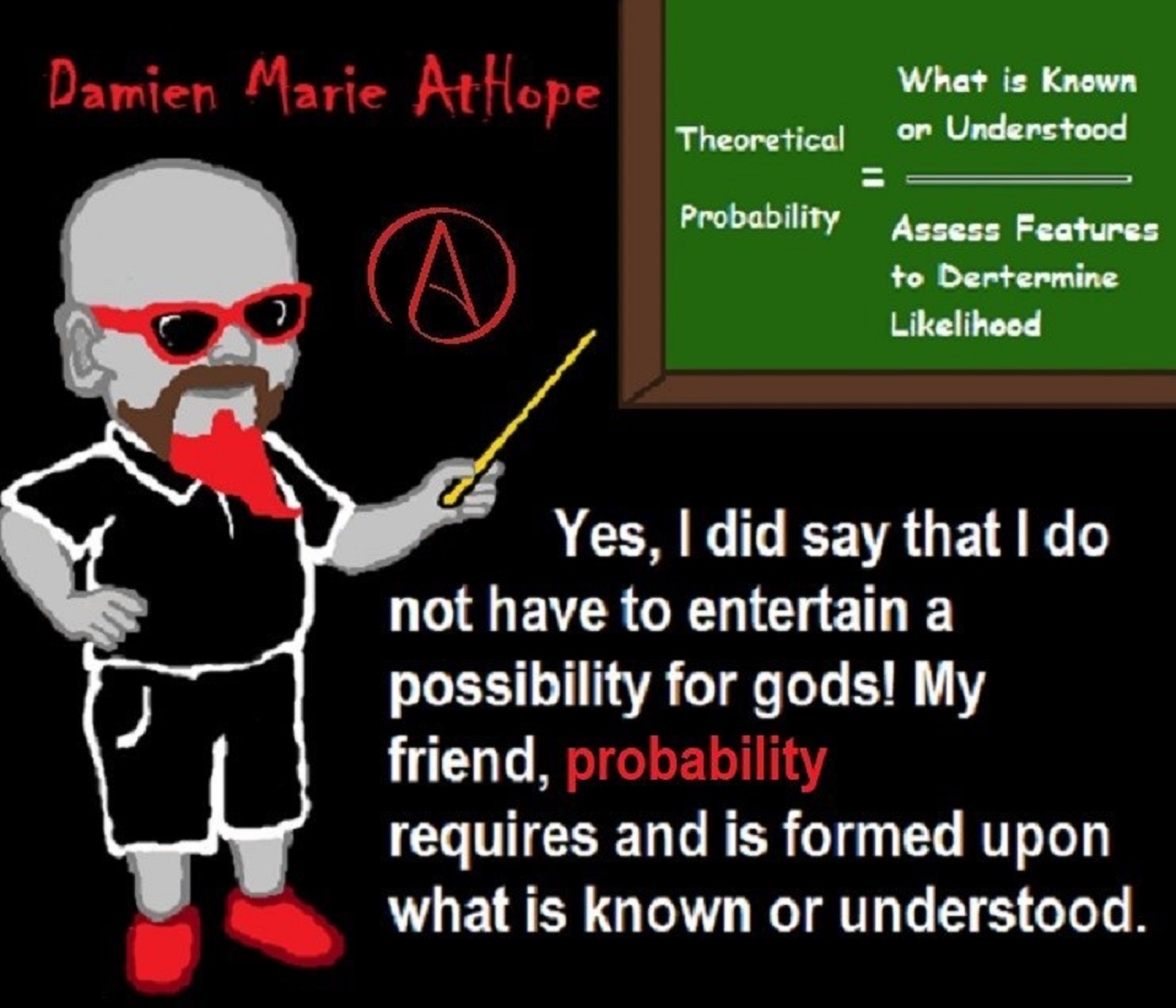
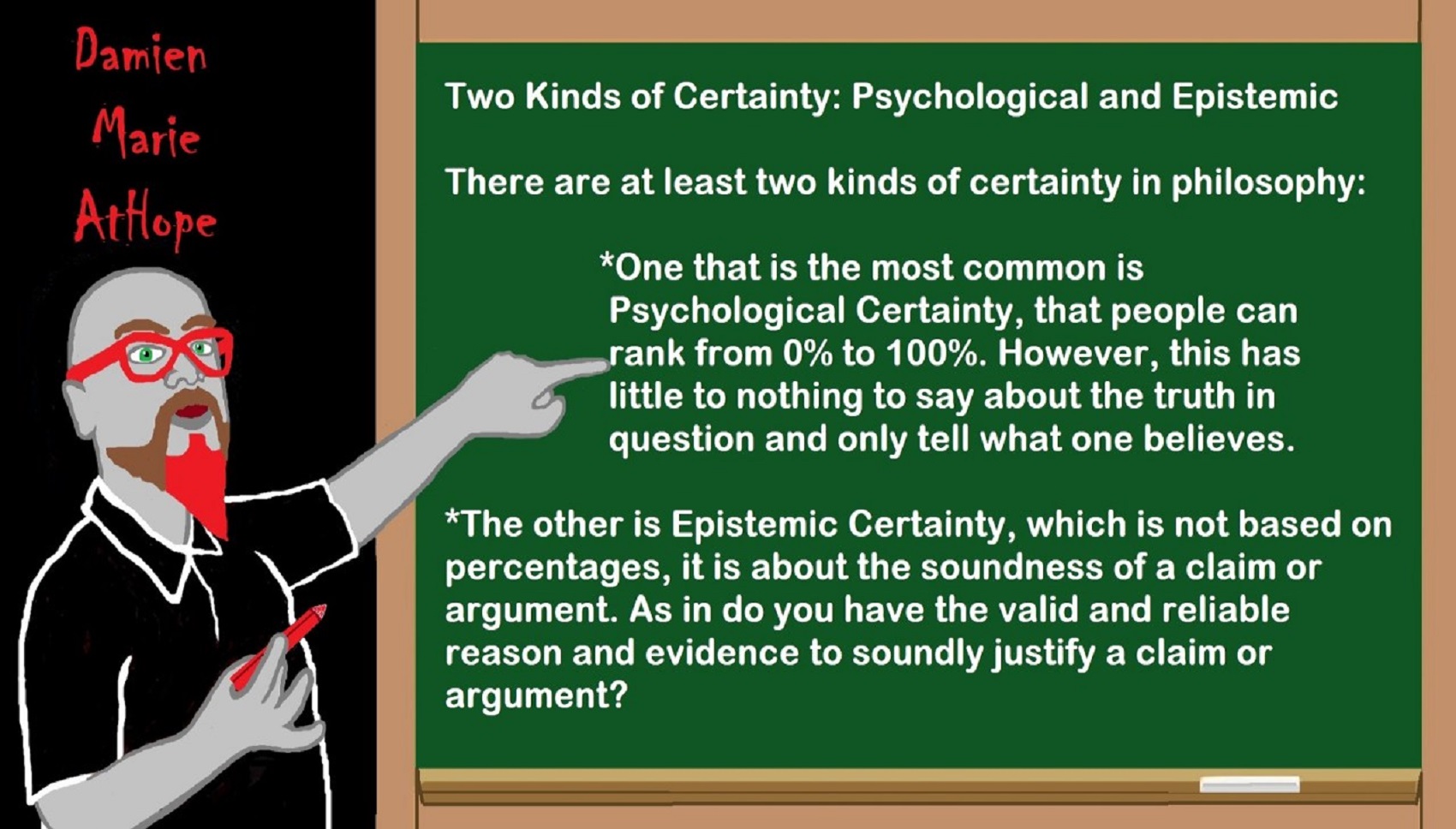
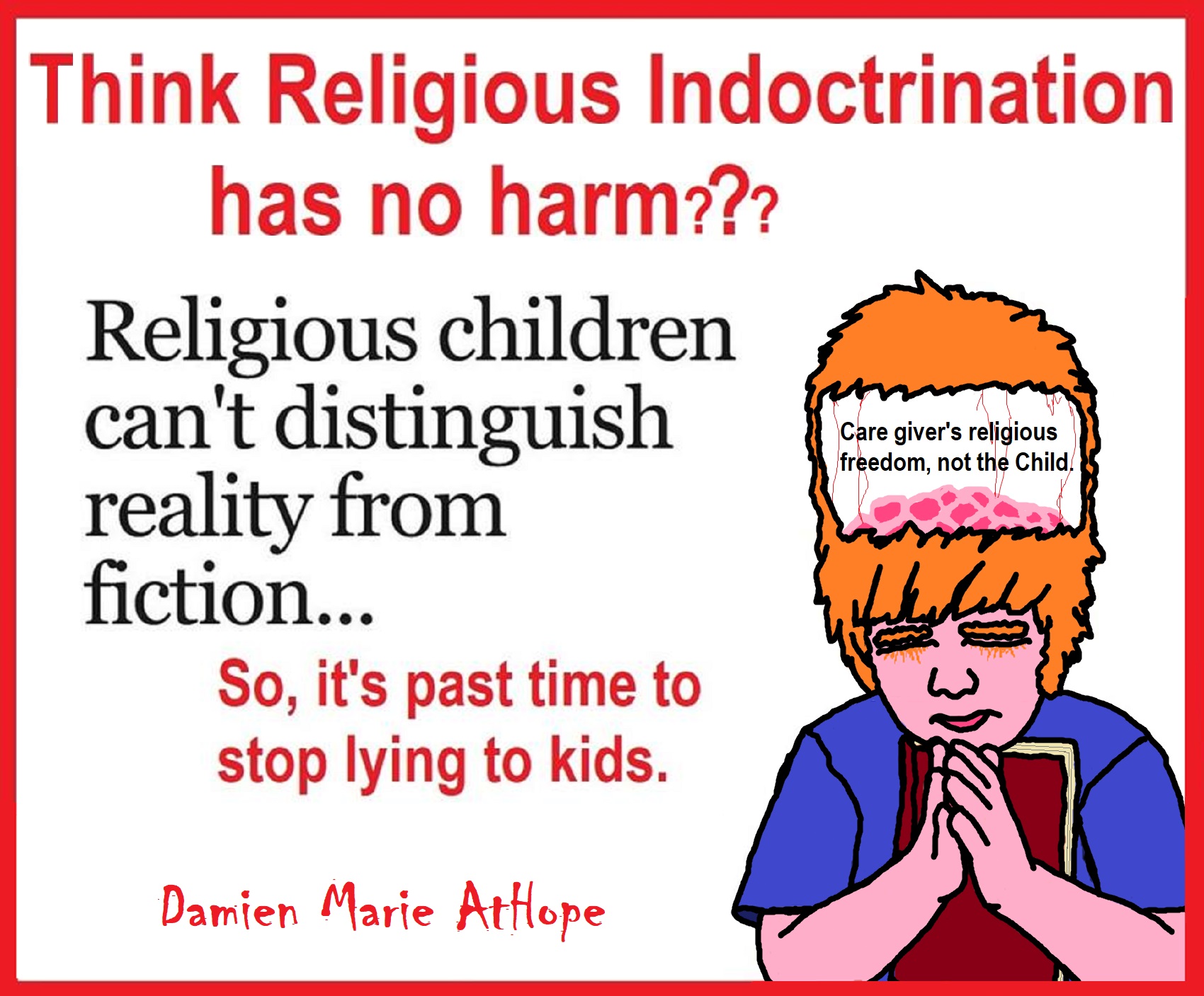

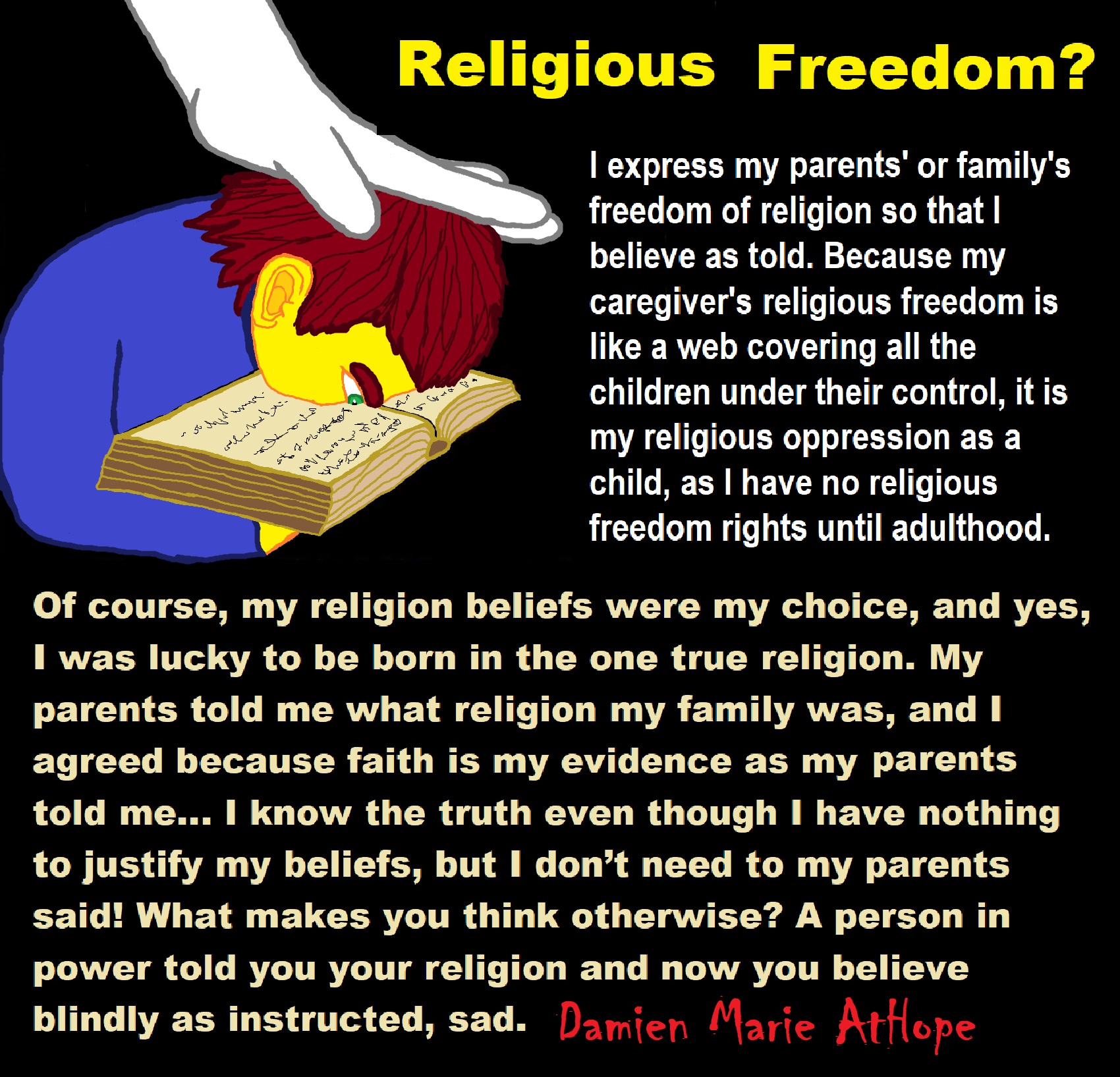
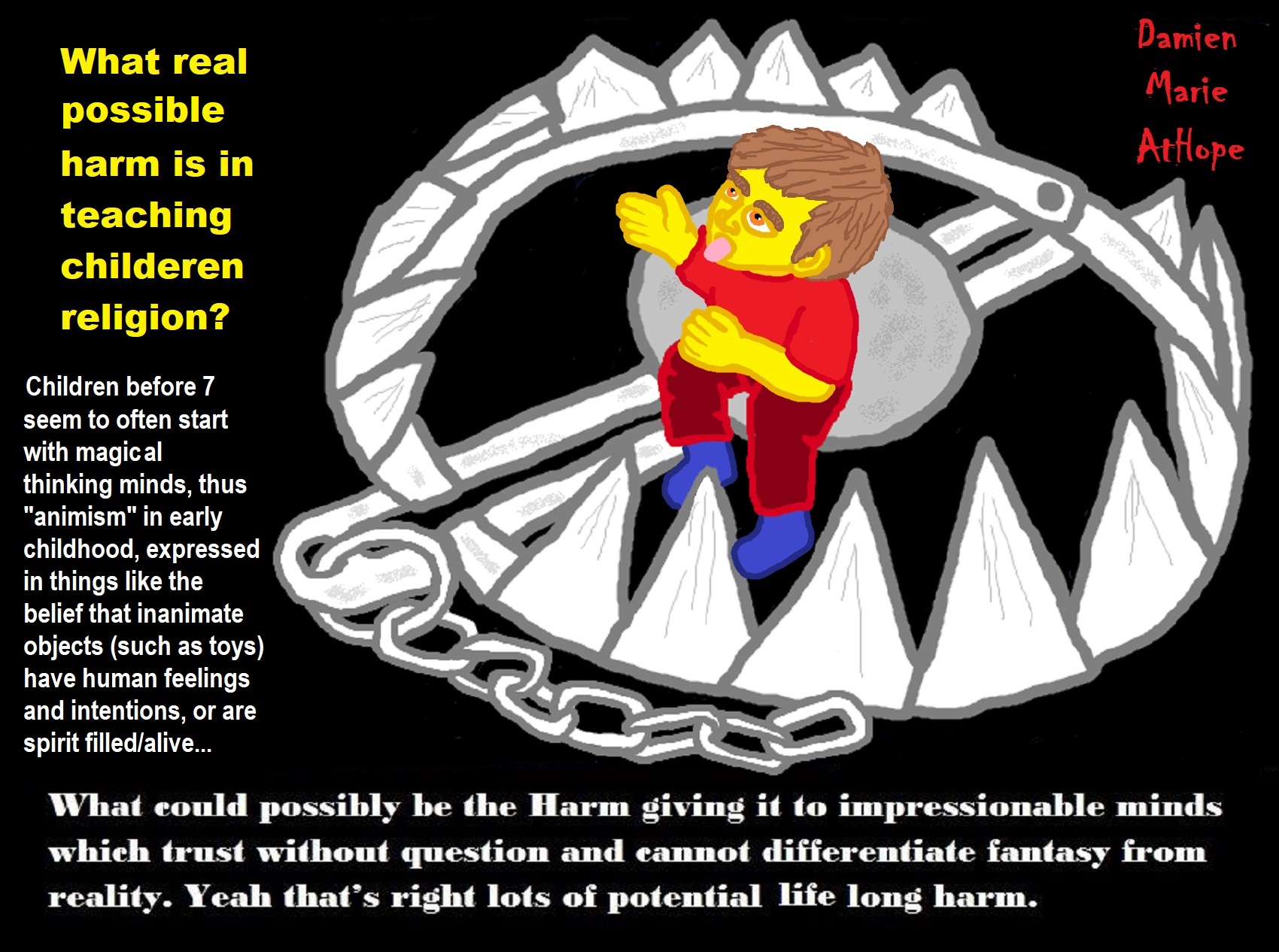

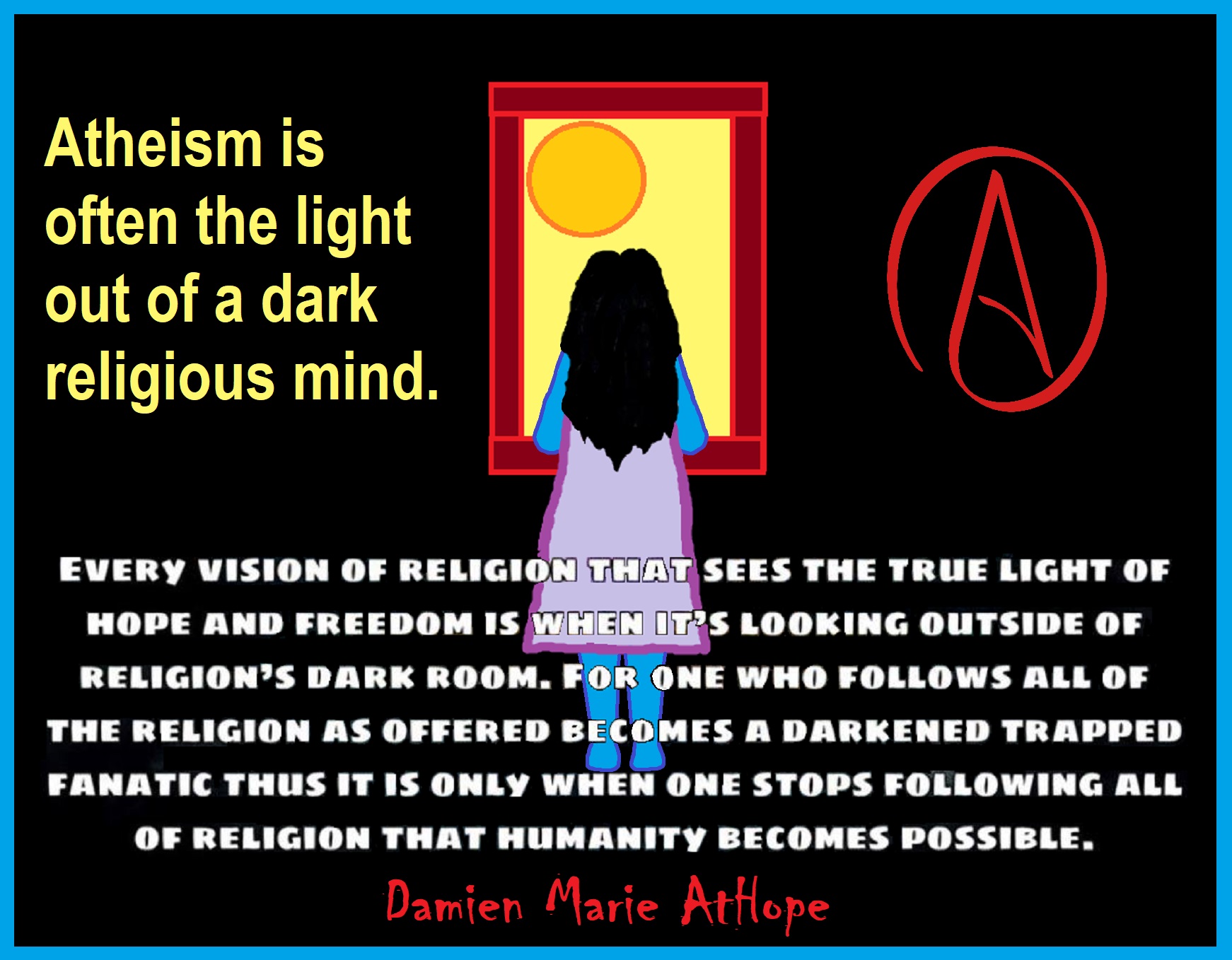

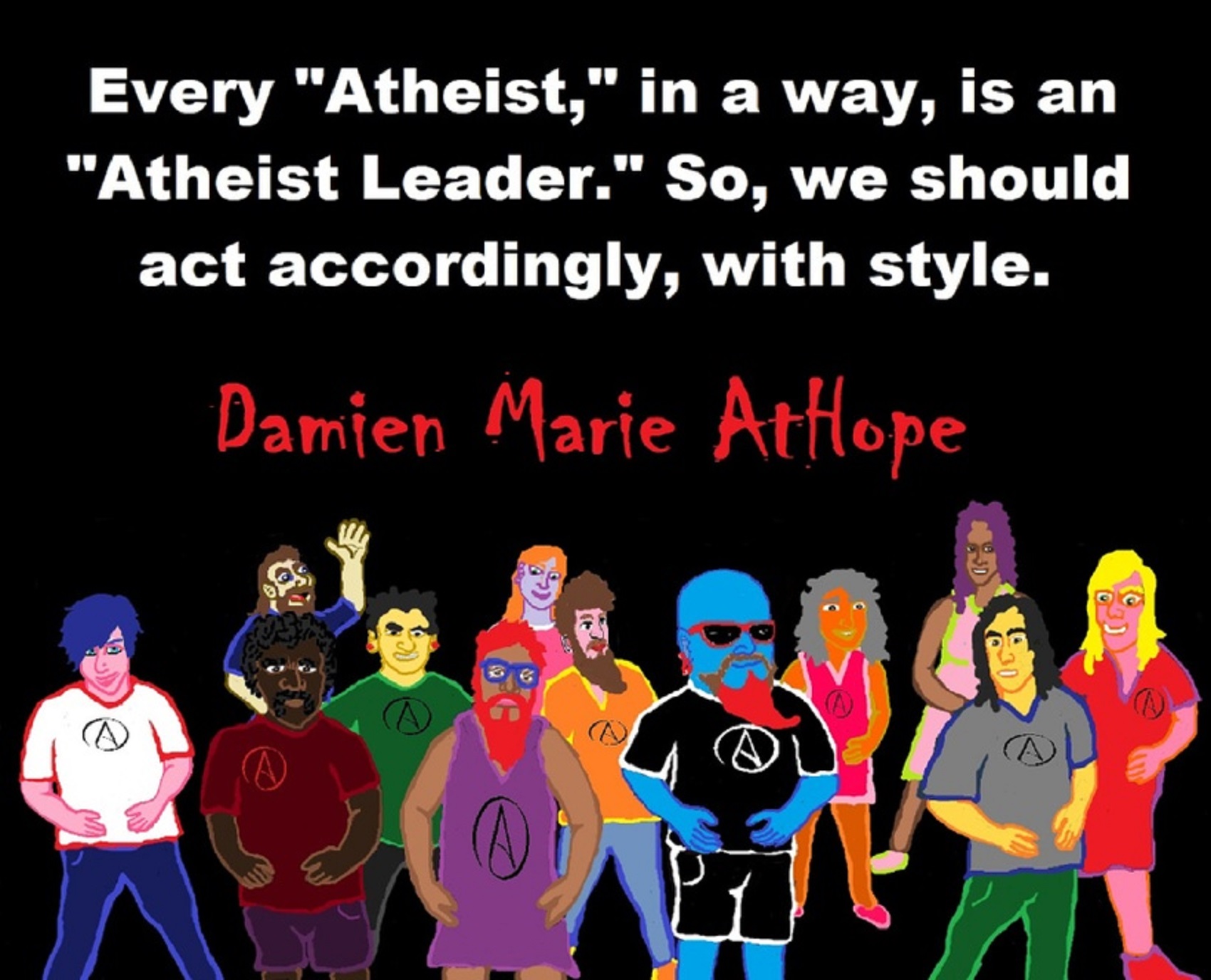

People don’t commonly teach religious history, even that of their own claimed religion. No, rather they teach a limited “pro their religion” history of their religion from a religious perspective favorable to the religion of choice.

Do you truly think “Religious Belief” is only a matter of some personal choice?
Do you not see how coercive one’s world of choice is limited to the obvious hereditary belief, in most religious choices available to the child of religious parents or caregivers? Religion is more commonly like a family, culture, society, etc. available belief that limits the belief choices of the child and that is when “Religious Belief” is not only a matter of some personal choice and when it becomes hereditary faith, not because of the quality of its alleged facts or proposed truths but because everyone else important to the child believes similarly so they do as well simply mimicking authority beliefs handed to them. Because children are raised in religion rather than being presented all possible choices but rather one limited dogmatic brand of “Religious Belief” where children only have a choice of following the belief as instructed, and then personally claim the faith hereditary belief seen in the confirming to the belief they have held themselves all their lives. This is obvious in statements asked and answered by children claiming a faith they barely understand but they do understand that their family believes “this or that” faith, so they feel obligated to believe it too. While I do agree that “Religious Belief” should only be a matter of some personal choice, it rarely is… End Hereditary Religion!

Animism: Respecting the Living World by Graham Harvey
“How have human cultures engaged with and thought about animals, plants, rocks, clouds, and other elements in their natural surroundings? Do animals and other natural objects have a spirit or soul? What is their relationship to humans? In this new study, Graham Harvey explores current and past animistic beliefs and practices of Native Americans, Maori, Aboriginal Australians, and eco-pagans. He considers the varieties of animism found in these cultures as well as their shared desire to live respectfully within larger natural communities. Drawing on his extensive casework, Harvey also considers the linguistic, performative, ecological, and activist implications of these different animisms.” ref
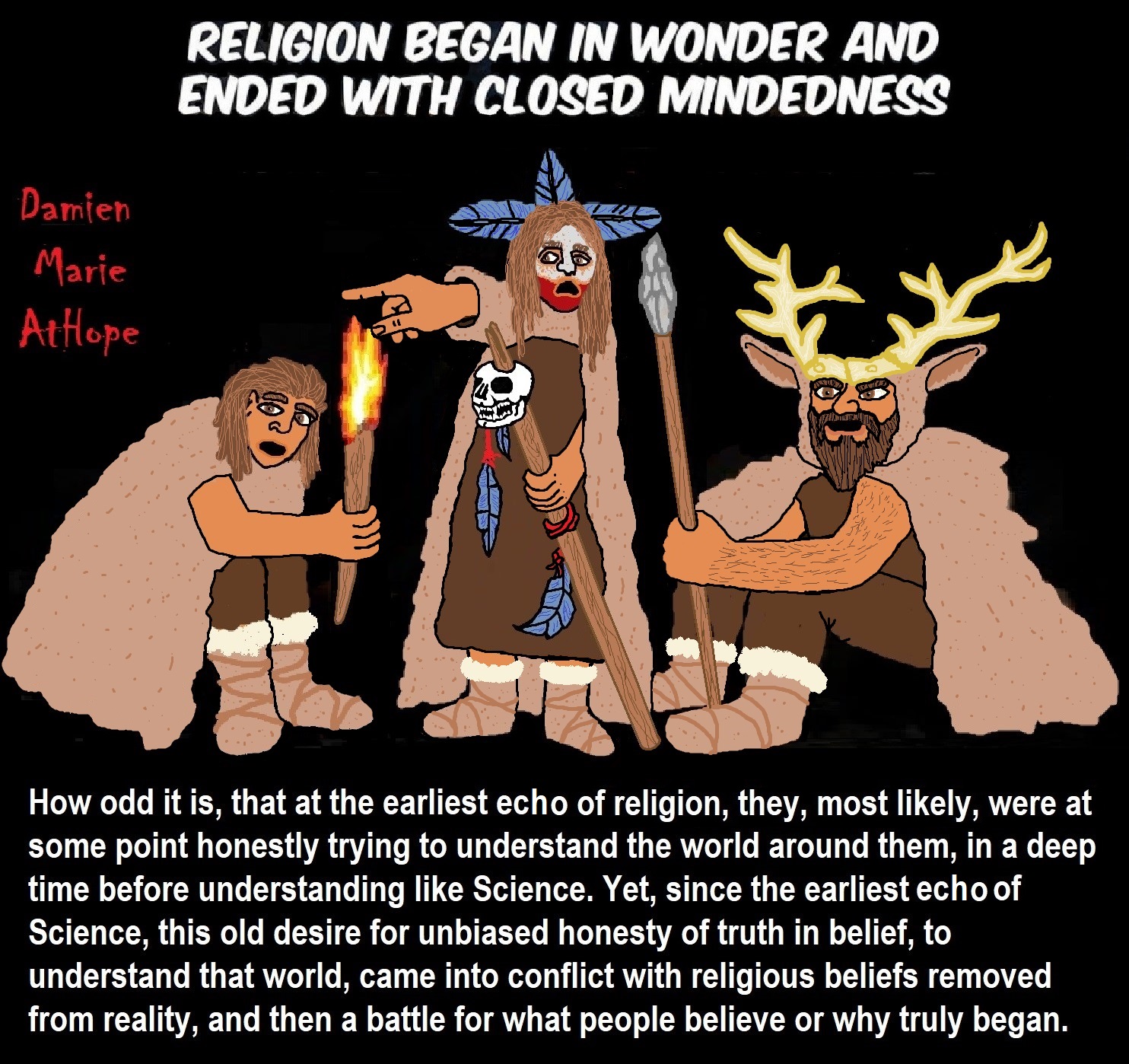
We are like believing machines we vacuum up ideas, like Velcro sticks to almost everything. We accumulate beliefs that we allow to negatively influence our lives, often without realizing it. Our willingness must be to alter skewed beliefs that impend our balance or reason, which allows us to achieve new positive thinking and accurate outcomes.

My thoughts on Religion Evolution with external links for more info:
- (Pre-Animism Africa mainly, but also Europe, and Asia at least 300,000 years ago), (Pre-Animism – Oxford Dictionaries)
- (Animism Africa around 100,000 years ago), (Animism – Britannica.com)
- (Totemism Europe around 50,000 years ago), (Totemism – Anthropology)
- (Shamanism Siberia around 30,000 years ago), (Shamanism – Britannica.com)
- (Paganism Turkey around 12,000 years ago), (Paganism – BBC Religion)
- (Progressed Organized Religion “Institutional Religion” Egypt around 5,000 years ago), (Ancient Egyptian Religion – Britannica.com)
- (CURRENT “World” RELIGIONS after 4,000 years ago) (Origin of Major Religions – Sacred Texts)
- (Early Atheistic Doubting at least by 2,600 years ago) (History of Atheism – Wikipedia)
“Religion is an Evolved Product” and Yes, Religion is Like Fear Given Wings…
Atheists talk about gods and religions for the same reason doctors talk about cancer, they are looking for a cure, or a firefighter talks about fires because they burn people and they care to stop them. We atheists too often feel a need to help the victims of mental slavery, held in the bondage that is the false beliefs of gods and the conspiracy theories of reality found in religions.
Understanding Religion Evolution:
- Pre-Animism (at least 300,000 years ago)
- Animism (Africa: 100,000 years ago)
- Totemism (Europe: 50,000 years ago)
- Shamanism (Siberia: 30,000 years ago)
- Paganism (Turkey: 12,000 years ago)
- Progressed organized religion (Egypt: 5,000 years ago), (Egypt, the First Dynasty 5,150 years ago)
- CURRENT “World” RELIGIONS (after 4,000 years ago)
- Early Atheistic Doubting (at least by 2,600 years ago)
“An Archaeological/Anthropological Understanding of Religion Evolution”
It seems ancient peoples had to survived amazing threats in a “dangerous universe (by superstition perceived as good and evil),” and human “immorality or imperfection of the soul” which was thought to affect the still living, leading to ancestor worship. This ancestor worship presumably led to the belief in supernatural beings, and then some of these were turned into the belief in gods. This feeble myth called gods were just a human conceived “made from nothing into something over and over, changing, again and again, taking on more as they evolve, all the while they are thought to be special,” but it is just supernatural animistic spirit-belief perceived as sacred.
Quick Evolution of Religion?
Pre-Animism (at least 300,000 years ago) pre-religion is a beginning that evolves into later Animism. So, Religion as we think of it, to me, all starts in a general way with Animism (Africa: 100,000 years ago) (theoretical belief in supernatural powers/spirits), then this is physically expressed in or with Totemism (Europe: 50,000 years ago) (theoretical belief in mythical relationship with powers/spirits through a totem item), which then enlists a full-time specific person to do this worship and believed interacting Shamanism (Siberia/Russia: 30,000 years ago) (theoretical belief in access and influence with spirits through ritual), and then there is the further employment of myths and gods added to all the above giving you Paganism (Turkey: 12,000 years ago) (often a lot more nature-based than most current top world religions, thus hinting to their close link to more ancient religious thinking it stems from). My hypothesis is expressed with an explanation of the building of a theatrical house (modern religions development). Progressed organized religion (Egypt: 5,000 years ago) with CURRENT “World” RELIGIONS (after 4,000 years ago).
Historically, in large city-state societies (such as Egypt or Iraq) starting around 5,000 years ago culminated to make religion something kind of new, a sociocultural-governmental-religious monarchy, where all or at least many of the people of such large city-state societies seem familiar with and committed to the existence of “religion” as the integrated life identity package of control dynamics with a fixed closed magical doctrine, but this juggernaut integrated religion identity package of Dogmatic-Propaganda certainly did not exist or if developed to an extent it was highly limited in most smaller prehistoric societies as they seem to lack most of the strong control dynamics with a fixed closed magical doctrine (magical beliefs could be at times be added or removed). Many people just want to see developed religious dynamics everywhere even if it is not. Instead, all that is found is largely fragments until the domestication of religion.
Religions, as we think of them today, are a new fad, even if they go back to around 6,000 years in the timeline of human existence, this amounts to almost nothing when seen in the long slow evolution of religion at least around 70,000 years ago with one of the oldest ritual worship. Stone Snake of South Africa: “first human worship” 70,000 years ago. This message of how religion and gods among them are clearly a man-made thing that was developed slowly as it was invented and then implemented peace by peace discrediting them all. Which seems to be a simple point some are just not grasping how devastating to any claims of truth when we can see the lie clearly in the archeological sites.
I wish people fought as hard for the actual values as they fight for the group/clan names political or otherwise they think support values. Every amount spent on war is theft to children in need of food or the homeless kept from shelter.
Here are several of my blog posts on history:
- To Find Truth You Must First Look
- (Magdalenian/Iberomaurusian) Connections to the First Paganists of the early Neolithic Near East Dating from around 17,000 to 12,000 Years Ago
- Natufians: an Ancient People at the Origins of Agriculture and Sedentary Life
- Possible Clan Leader/Special “MALE” Ancestor Totem Poles At Least 13,500 years ago?
- Jewish People with DNA at least 13,200 years old, Judaism, and the Origins of Some of its Ideas
- Baltic Reindeer Hunters: Swiderian, Lyngby, Ahrensburgian, and Krasnosillya cultures 12,020 to 11,020 years ago are evidence of powerful migratory waves during the last 13,000 years and a genetic link to Saami and the Finno-Ugric peoples.
- The Rise of Inequality: patriarchy and state hierarchy inequality
- Fertile Crescent 12,500 – 9,500 Years Ago: fertility and death cult belief system?
- 12,400 – 11,700 Years Ago – Kortik Tepe (Turkey) Pre/early-Agriculture Cultic Ritualism
- Ritualistic Bird Symbolism at Gobekli Tepe and its “Ancestor Cult”
- Male-Homosexual (female-like) / Trans-woman (female) Seated Figurine from Gobekli Tepe
- Could a 12,000-year-old Bull Geoglyph at Göbekli Tepe relate to older Bull and Female Art 25,000 years ago and Later Goddess and the Bull cults like Catal Huyuk?
- Sedentism and the Creation of goddesses around 12,000 years ago as well as male gods after 7,000 years ago.
- Alcohol, where Agriculture and Religion Become one? Such as Gobekli Tepe’s Ritualistic use of Grain as Food and Ritual Drink
- Neolithic Ritual Sites with T-Pillars and other Cultic Pillars
- Paganism: Goddesses around 12,000 years ago then Male Gods after 7,000 years ago
- First Patriarchy: Split of Women’s Status around 12,000 years ago & First Hierarchy: fall of Women’s Status around 5,000 years ago.
- Natufians: an Ancient People at the Origins of Agriculture and Sedentary Life
- J DNA and the Spread of Agricultural Religion (paganism)
- Paganism: an approximately 12,000-year-old belief system
- Paganism 12,000 years old: related to “Anarchism and Socialism” (Pre-Capitalism)
- Shaman burial in Israel 12,000 years ago and the Shamanism Phenomena
- Need to Mythicized: gods and goddesses
- 12,000 – 7,000 Years Ago – Paleo-Indian Culture (The Americas)
- 12,000 – 2,000 Years Ago – Indigenous-Scandinavians (Nordic)
- Norse did not wear helmets with horns?
- Pre-Pottery Neolithic Skull Cult around 11,500 to 8,400 Years Ago?
- 10,400 – 10,100 Years Ago, in Turkey the Nevail Cori Religious Settlement
- 9,000-6,500 Years Old Submerged Pre-Pottery/Pottery Neolithic Ritual Settlements off Israel’s Coast
- Catal Huyuk “first religious designed city” around 9,500 to 7,700 years ago (Turkey)
- Cultic Hunting at Catal Huyuk “first religious designed city”
- Special Items and Art as well as Special Elite Burials at Catal Huyuk
- New Rituals and Violence with the appearance of Pottery and People?
- Haplogroup N and its related Uralic Languages and Cultures
- Ainu people, Sámi people, Native Americans, the Ancient North Eurasians, and Paganistic-Shamanism with Totemism
- Ideas, Technology and People from Turkey, Europe, to China and Back again 9,000 to 5,000 years ago?
- First Pottery of Europe and the Related Cultures
- 9,000 years old Neolithic Artifacts Judean Desert and Hills Israel
- 9,000-7,000 years-old Sex and Death Rituals: Cult Sites in Israel, Jordan, and the Sinai
- 9,000-8500 year old Horned Female shaman Bad Dürrenberg Germany
- Neolithic Jewelry and the Spread of Farming in Europe Emerging out of West Turkey
- 8,600-year-old Tortoise Shells in Neolithic graves in central China have Early Writing and Shamanism
- Swing of the Mace: the rise of Elite, Forced Authority, and Inequality begin to Emerge 8,500 years ago?
- Migrations and Changing Europeans Beginning around 8,000 Years Ago
- My “Steppe-Anatolian-Kurgan hypothesis” 8,000/7,000 years ago
- Around 8,000-year-old Shared Idea of the Mistress of Animals, “Ritual” Motif
- Pre-Columbian Red-Paint (red ochre) Maritime Archaic Culture 8,000-3,000 years ago
- 7,522-6,522 years ago Linear Pottery culture which I think relates to Arcane Capitalism’s origins
- Arcane Capitalism: Primitive socialism, Primitive capital, Private ownership, Means of production, Market capitalism, Class discrimination, and Petite bourgeoisie (smaller capitalists)
- 7,500-4,750 years old Ritualistic Cucuteni-Trypillian culture of Moldova, Romania, and Ukraine
- Roots of a changing early society 7,200-6,700 years ago Jordan and Israel
- Agriculture religion (Paganism) with farming reached Britain between about 7,000 to 6,500 or so years ago and seemingly expressed in things like Western Europe’s Long Barrows
- My Thoughts on Possible Migrations of “R” DNA and Proto-Indo-European?
- “Millet” Spreading from China 7,022 years ago to Europe and related Language may have Spread with it leading to Proto-Indo-European
- Proto-Indo-European (PIE), ancestor of Indo-European languages: DNA, Society, Language, and Mythology
- The Dnieper–Donets culture and Asian varieties of Millet from China to the Black Sea region of Europe by 7,022 years ago
- Kurgan 6,000 years ago/dolmens 7,000 years ago: funeral, ritual, and other?
- 7,020 to 6,020-year-old Proto-Indo-European Homeland of Urheimat or proposed home of their Language and Religion
- Ancient Megaliths: Kurgan, Ziggurat, Pyramid, Menhir, Trilithon, Dolman, Kromlech, and Kromlech of Trilithons
- The Mytheme of Ancient North Eurasian Sacred-Dog belief and similar motifs are found in Indo-European, Native American, and Siberian comparative mythology
- Elite Power Accumulation: Ancient Trade, Tokens, Writing, Wealth, Merchants, and Priest-Kings
- Sacred Mounds, Mountains, Kurgans, and Pyramids may hold deep connections?
- Between 7,000-5,000 Years ago, rise of unequal hierarchy elite, leading to a “birth of the State” or worship of power, strong new sexism, oppression of non-elites, and the fall of Women’s equal status
- Paganism 7,000-5,000 years old: related to “Anarchism and Socialism” (Capitalism) (World War 0) Elite & their slaves
- Hell and Underworld mythologies starting maybe as far back as 7,000 to 5,000 years ago with the Proto-Indo-Europeans?
- The First Expression of the Male God around 7,000 years ago?
- White (light complexion skin) Bigotry and Sexism started 7,000 years ago?
- Around 7,000-year-old Shared Idea of the Divine Bird (Tutelary and/or Trickster spirit/deity), “Ritual” Motif
- Nekhbet an Ancient Egyptian Vulture Goddess and Tutelary Deity
- 6,720 to 4,920 years old Ritualistic Hongshan Culture of Inner Mongolia with 5,000-year-old Pyramid Mounds and Temples
- First proto-king in the Balkans, Varna culture around 6,500 years ago?
- 6,500–5,800 years ago in Israel Late Chalcolithic (Copper Age) Period in the Southern Levant Seems to Express Northern Levant Migrations, Cultural and Religious Transfer
- KING OF BEASTS: Master of Animals “Ritual” Motif, around 6,000 years old or older…
- Around 6000-year-old Shared Idea of the Solid Wheel & the Spoked Wheel-Shaped Ritual Motif
- “The Ghassulian Star,” a mysterious 6,000-year-old mural from Jordan; a Proto-Star of Ishtar, Star of Inanna or Star of Venus?
- Religious/Ritual Ideas, including goddesses and gods as well as ritual mounds or pyramids from Northeastern Asia at least 6,000 years old, seemingly filtering to Iran, Iraq, the Mediterranean, Europe, Egypt, and the Americas?
- Maykop (5,720–5,020 years ago) Caucasus region Bronze Age culture-related to Copper Age farmers from the south, influenced by the Ubaid period and Leyla-Tepe culture, as well as influencing the Kura-Araxes culture
- 5-600-year-old Tomb, Mummy, and First Bearded Male Figurine in a Grave
- Kura-Araxes Cultural 5,520 to 4,470 years old DNA traces to the Canaanites, Arabs, and Jews
- Minoan/Cretan (Keftiu) Civilization and Religion around 5,520 to 3,120 years ago
- Evolution Of Science at least by 5,500 years ago
- 5,500 Years old birth of the State, the rise of Hierarchy, and the fall of Women’s status
- “Jiroft culture” 5,100 – 4,200 years ago and the History of Iran
- Stonehenge: Paganistic Burial and Astrological Ritual Complex, England (5,100-3,600 years ago)
- Around 5,000-year-old Shared Idea of the “Tree of Life” Ritual Motif
- Complex rituals for elite, seen from China to Egypt, at least by 5,000 years ago
- Around 5,000 years ago: “Birth of the State” where Religion gets Military Power and Influence
- The Center of the World “Axis Mundi” and/or “Sacred Mountains” Mythology Could Relate to the Altai Mountains, Heart of the Steppe
- Progressed organized religion starts, an approximately 5,000-year-old belief system
- China’s Civilization between 5,000-3,000 years ago, was a time of war and class struggle, violent transition from free clans to a Slave or Elite society
- Origin of Logics is Naturalistic Observation at least by around 5,000 years ago.
- Paganism 5,000 years old: progressed organized religion and the state: related to “Anarchism and Socialism” (Kings and the Rise of the State)
- Ziggurats (multi-platform temples: 4,900 years old) to Pyramids (multi-platform tombs: 4,700 years old)
- Did a 4,520–4,420-year-old Volcano In Turkey Inspire the Bible God?
- Finland’s Horned Shaman and Pre-Horned-God at least 4,500 years ago?
- 4,000-year-Old Dolmens in Israel: A Connected Dolmen Religious Phenomenon?
- Creation myths: From chaos, Ex nihilo, Earth-diver, Emergence, World egg, and World parent
- Bronze Age “Ritual” connections of the Bell Beaker culture with the Corded Ware/Single Grave culture, which were related to the Yamnaya culture and Proto-Indo-European Languages/Religions
- Low Gods (Earth/ Tutelary deity), High Gods (Sky/Supreme deity), and Moralistic Gods (Deity enforcement/divine order)
- The exchange of people, ideas, and material-culture including, to me, the new god (Sky Father) and goddess (Earth Mother) religion between the Cucuteni-Trypillians and others which is then spread far and wide
- Koryaks: Indigenous People of the Russian Far East and Big Raven myths also found in Tlingit, Haida, Tsimshian, and other Indigenous People of North America
- 42 Principles Of Maat (Egyptian Goddess of the justice) around 4,400 years ago, 2000 Years Before Ten Commandments
- “Happy Easter” Well Happy Eostre/Ishter
- 4,320-3,820 years old “Shimao” (North China) site with Totemistic-Shamanistic Paganism and a Stepped Pyramid
- 4,250 to 3,400 Year old Stonehenge from Russia: Arkaim?
- 4,100-year-old beaker with medicinal & flowering plants in a grave of a woman in Scotland
- Early European Farmer ancestry, Kelif el Boroud people with the Cardial Ware culture, and the Bell Beaker culture Paganists too, spread into North Africa, then to the Canary Islands off West Africa
- Flood Accounts: Gilgamesh epic (4,100 years ago) Noah in Genesis (2,600 years ago)
- Paganism 4,000 years old: related to “Anarchism and Socialism” (First Moralistic gods, then the Origin time of Monotheism)
- When was the beginning: TIMELINE OF CURRENT RELIGIONS, which start around 4,000 years ago.
- Early Religions Thought to Express Proto-Monotheistic Systems around 4,000 years ago
- Kultepe? An archaeological site with a 4,000 years old women’s rights document.
- Single God Religions (Monotheism) = “Man-o-theism” started around 4,000 years ago with the Great Sky Spirit/God Tiān (天)?
- Confucianism’s Tiān (Shangdi god 4,000 years old): Supernaturalism, Pantheism or Theism?
- Yes, Your Male God is Ridiculous
- Mythology, a Lunar Deity is a Goddess or God of the Moon
- Sacred Land, Hills, and Mountains: Sami Mythology (Paganistic Shamanism)
- Horse Worship/Sacrifice: mythical union of Ruling Elite/Kingship and the Horse
- The Amorite/Amurru people’s God Amurru “Lord of the Steppe”, relates to the Origins of the Bible God?
- Bronze Age Exotic Trade Routes Spread Quite Far as well as Spread Religious Ideas with Them
- Sami and the Northern Indigenous Peoples Landscape, Language, and its Connection to Religion
- Prototype of Ancient Analemmatic Sundials around 3,900-3,150 years ago and a Possible Solar Connection to gods?
- Judaism is around 3,450 or 3,250 years old. (“Paleo-Hebrew” 3,000 years ago and Torah 2,500 years ago)
- The Weakening of Ancient Trade and the Strengthening of Religions around 3000 years ago?
- Are you aware that there are religions that worship women gods, explain now religion tears women down?
- Animistic, Totemistic, and Paganistic Superstition Origins of bible god and the bible’s Religion.
- Myths and Folklore: “Trickster gods and goddesses”
- Jews, Judaism, and the Origins of Some of its Ideas
- An Old Branch of Religion Still Giving Fruit: Sacred Trees
- Dating the BIBLE: naming names and telling times (written less than 3,000 years ago, provable to 2,200 years ago)
- Did a Volcano Inspire the bible god?
- Dené–Yeniseian language, Old Copper Complex, and Pre-Columbian Mound Builders?
- No “dinosaurs and humans didn’t exist together just because some think they are in the bible itself”
- Sacred Shit and Sacred Animals?
- Everyone Killed in the Bible Flood? “Nephilim” (giants)?
- Hey, Damien dude, I have a question for you regarding “the bible” Exodus.
- Archaeology Disproves the Bible
- Bible Battle, Just More, Bible Babble
- The Jericho Conquest lie?
- Canaanites and Israelites?
- Accurate Account on how did Christianity Began?
- Let’s talk about Christianity.
- So the 10 commandments isn’t anything to go by either right?
- Misinformed christian
- Debunking Jesus?
- Paulism vs Jesus
- Ok, you seem confused so let’s talk about Buddhism.
- Unacknowledged Buddhism: Gods, Savior, Demons, Rebirth, Heavens, Hells, and Terrorism
- His Foolishness The Dalai Lama
- Yin and Yang is sexist with an ORIGIN around 2,300 years ago?
- I Believe Archaeology, not Myths & Why Not, as the Religious Myths Already Violate Reason!
- Archaeological, Scientific, & Philosophic evidence shows the god myth is man-made nonsense.
- Aquatic Ape Theory/Hypothesis? As Always, Just Pseudoscience.
- Ancient Aliens Conspiracy Theorists are Pseudohistorians
- The Pseudohistoric and Pseudoscientific claims about “Bakoni Ruins” of South Africa
- Why do people think Religion is much more than supernaturalism and superstitionism?
- Religion is an Evolved Product
- Was the Value of Ancient Women Different?
- 1000 to 1100 CE, human sacrifice Cahokia Mounds a pre-Columbian Native American site
- Feminist atheists as far back as the 1800s?
- Promoting Religion as Real is Mentally Harmful to a Flourishing Humanity
- Screw All Religions and Their Toxic lies, they are all fraud
- Forget Religions’ Unfounded Myths, I Have Substantiated “Archaeology Facts.”
- Religion Dispersal throughout the World
- I Hate Religion Just as I Hate all Pseudoscience
- Exposing Scientology, Eckankar, Wicca and Other Nonsense?
- Main deity or religious belief systems
- Quit Trying to Invent Your God From the Scraps of Science.
- Archaeological, Scientific, & Philosophic evidence shows the god myth is man-made nonsense.
- Ancient Alien Conspiracy Theorists: Misunderstanding, Rhetoric, Misinformation, Fabrications, and Lies
- Misinformation, Distortion, and Pseudoscience in Talking with a Christian Creationist
- Judging the Lack of Goodness in Gods, Even the Norse God Odin
- Challenging the Belief in God-like Aliens and Gods in General
- A Challenge to Christian use of Torture Devices?
- Yes, Hinduism is a Religion
- Trump is One of the Most Reactionary Forces of Far-right Christian Extremism
- Was the Bull Head a Symbol of God? Yes!
- Primate Death Rituals
- Christian – “God and Christianity are objectively true”
- Australopithecus afarensis Death Ritual?
- You Claim Global Warming is a Hoax?
- Doubter of Science and Defamer of Atheists?
- I think that sounds like the Bible?
- History of the Antifa (“anti-fascist”) Movements
- Indianapolis Anti-Blasphemy Laws #Free Soheil Rally
- Damien, you repeat the golden rule in so many forms then you say religion is dogmatic?
- Science is a Trustable Methodology whereas Faith is not Trustable at all!
- Was I ever a believer, before I was an atheist?
- Atheists rise in reason
- Mistrust of science?
- Open to Talking About the Definition of ‘God’? But first, we address Faith.
- ‘United Monarchy’ full of splendor and power – Saul, David, and Solomon? Most likely not.
- Is there EXODUS ARCHAEOLOGY? The short answer is “no.”
- Lacking Proof of Bigfoots, Unicorns, and Gods is Just a Lack of Research?
- Religion and Politics: Faith Beliefs vs. Rational Thinking
- Hammer of Truth that lying pig RELIGION: challenged by an archaeologist
- “The Hammer of Truth” -ontology question- What do You Mean by That?
- Navigation of a bad argument: Ad Hominem vs. Attack
- Why is it Often Claimed that Gods have a Gender?
- Why are basically all monotheistic religions ones that have a male god?
- Shifting through the Claims in support of Faith
- Dear Mr. AtHope, The 20th Century is an Indictment of Secularism and a Failed Atheist Century
- An Understanding of the Worldwide Statistics and Dynamics of Terrorist Incidents and Suicide Attacks
- Intoxication and Evolution? Addressing and Assessing the “Stoned Ape” or “Drunken Monkey” Theories as Catalysts in Human Evolution
- Sacred Menstrual cloth? Inanna’s knot, Isis knot, and maybe Ma’at’s feather?
- Damien, why don’t the Hebrews accept the bible stories?
- Dealing with a Troll and Arguing Over Word Meaning
- Knowledge without Belief? Justified beliefs or disbeliefs worthy of Knowledge?
- Afrocentrism and African Religions
- Crecganford @crecganford offers history & stories of the people, places, gods, & culture
- Empiricism-Denier?
I am not an academic. I am a revolutionary that teaches in public, in places like social media, and in the streets. I am not a leader by some title given but from my commanding leadership style of simply to start teaching everywhere to everyone, all manner of positive education.
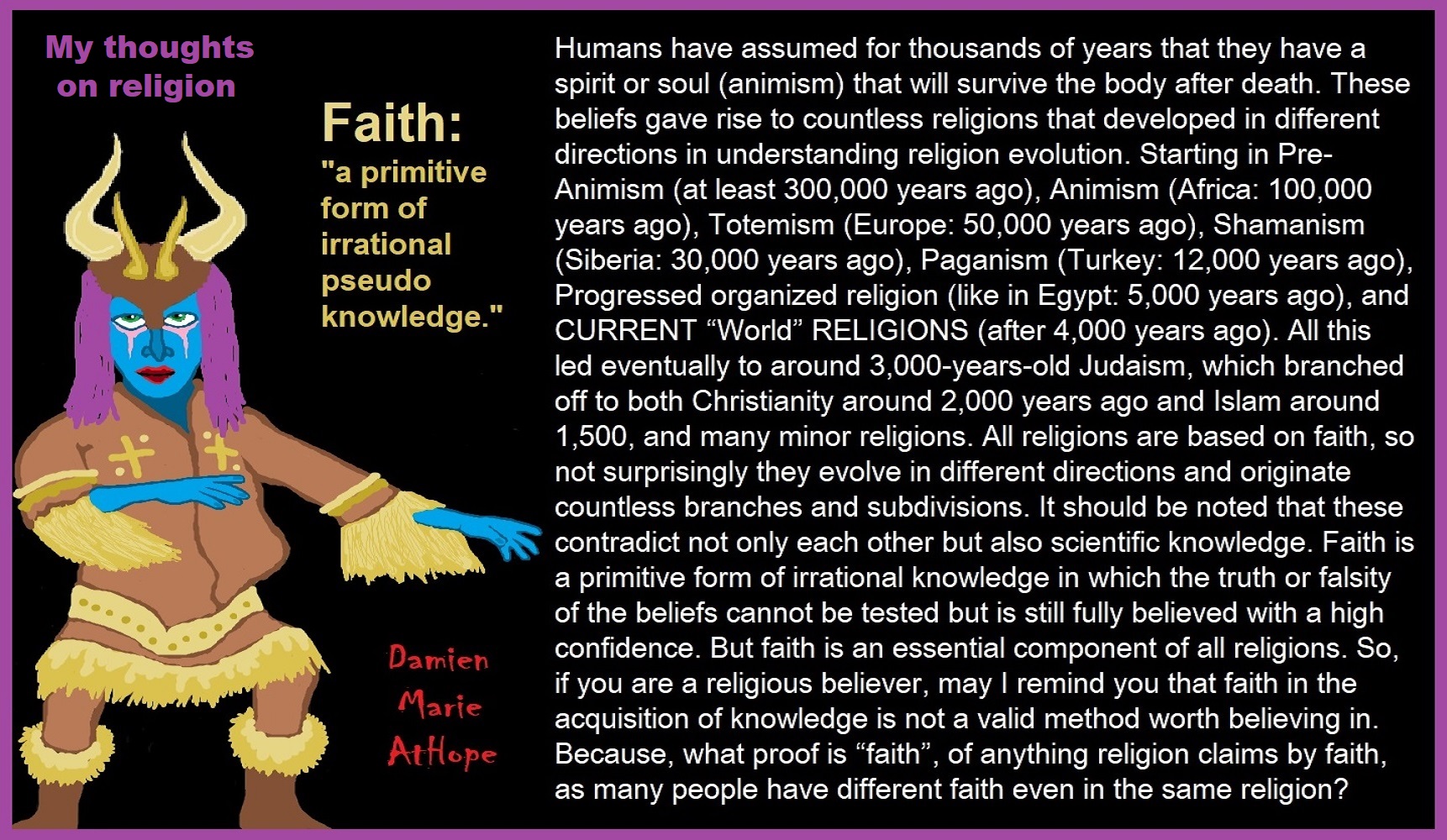

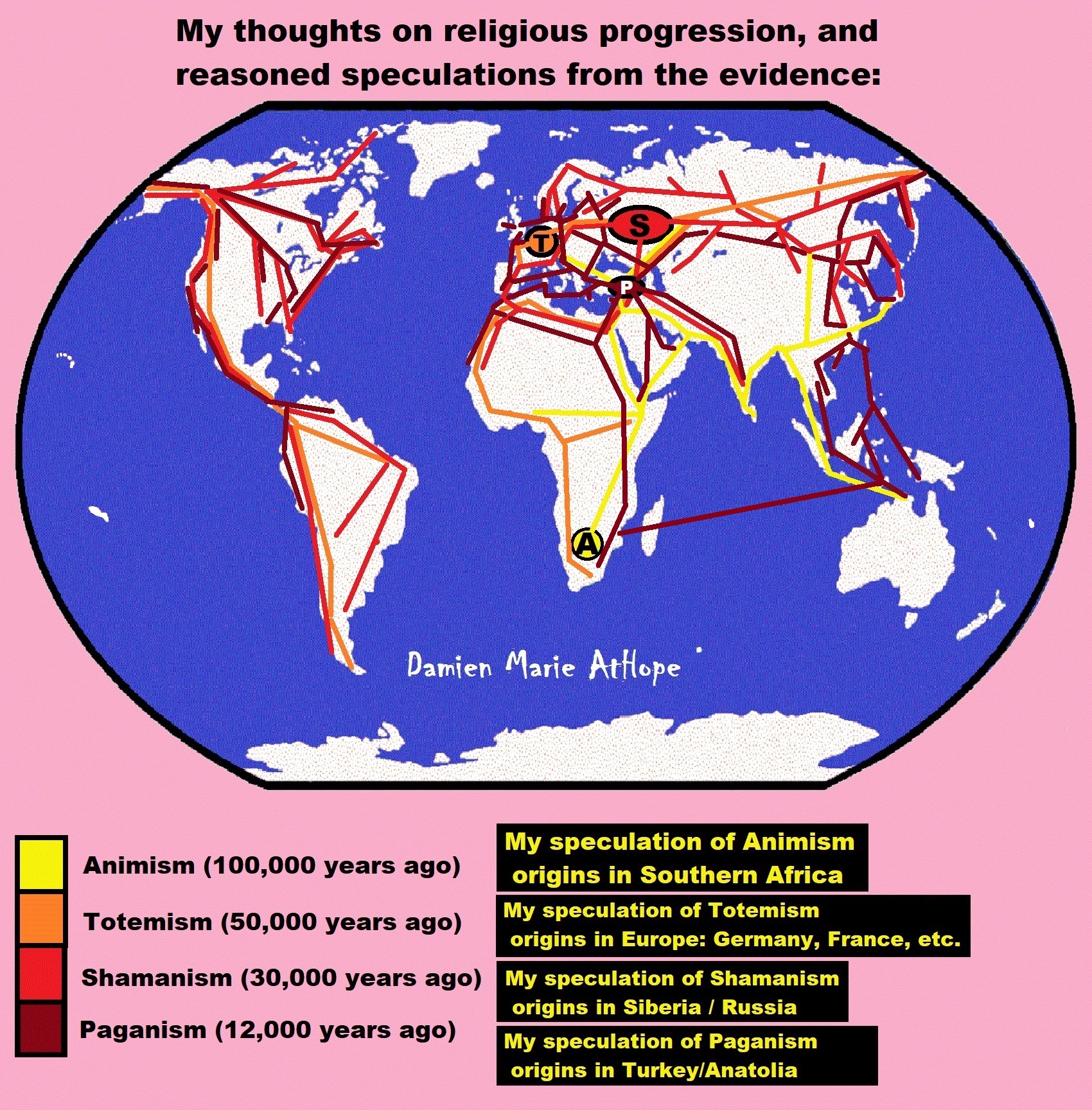


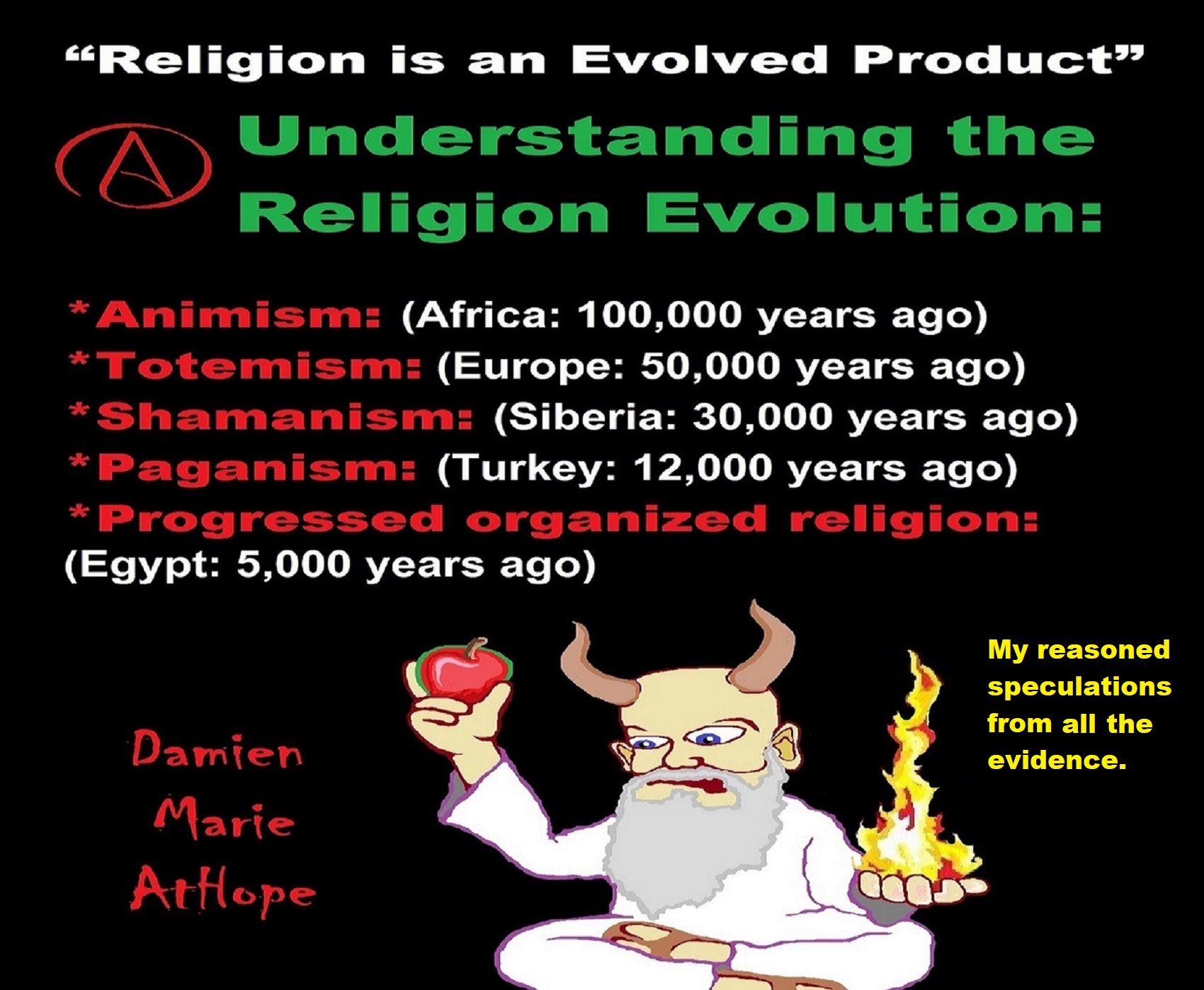



ref, ref, ref, ref, ref, ref, ref, ref, ref, ref, ref, ref, ref, ref, ref, ref, ref, ref, ref, ref, ref
Low Gods “Earth” or Tutelary deity and High Gods “Sky” or Supreme deity
“An Earth goddess is a deification of the Earth. Earth goddesses are often associated with the “chthonic” deities of the underworld. Ki and Ninhursag are Mesopotamian earth goddesses. In Greek mythology, the Earth is personified as Gaia, corresponding to Roman Terra, Indic Prithvi/Bhūmi, etc. traced to an “Earth Mother” complementary to the “Sky Father” in Proto-Indo-European religion. Egyptian mythology exceptionally has a sky goddess and an Earth god.” ref
“A mother goddess is a goddess who represents or is a personification of nature, motherhood, fertility, creation, destruction or who embodies the bounty of the Earth. When equated with the Earth or the natural world, such goddesses are sometimes referred to as Mother Earth or as the Earth Mother. In some religious traditions or movements, Heavenly Mother (also referred to as Mother in Heaven or Sky Mother) is the wife or feminine counterpart of the Sky father or God the Father.” ref
“Any masculine sky god is often also king of the gods, taking the position of patriarch within a pantheon. Such king gods are collectively categorized as “sky father” deities, with a polarity between sky and earth often being expressed by pairing a “sky father” god with an “earth mother” goddess (pairings of a sky mother with an earth father are less frequent). A main sky goddess is often the queen of the gods and may be an air/sky goddess in her own right, though she usually has other functions as well with “sky” not being her main. In antiquity, several sky goddesses in ancient Egypt, Mesopotamia, and the Near East were called Queen of Heaven. Neopagans often apply it with impunity to sky goddesses from other regions who were never associated with the term historically. The sky often has important religious significance. Many religions, both polytheistic and monotheistic, have deities associated with the sky.” ref
“In comparative mythology, sky father is a term for a recurring concept in polytheistic religions of a sky god who is addressed as a “father”, often the father of a pantheon and is often either a reigning or former King of the Gods. The concept of “sky father” may also be taken to include Sun gods with similar characteristics, such as Ra. The concept is complementary to an “earth mother“. “Sky Father” is a direct translation of the Vedic Dyaus Pita, etymologically descended from the same Proto-Indo-European deity name as the Greek Zeûs Pater and Roman Jupiter and Germanic Týr, Tir or Tiwaz, all of which are reflexes of the same Proto-Indo-European deity’s name, *Dyēus Ph₂tḗr. While there are numerous parallels adduced from outside of Indo-European mythology, there are exceptions (e.g. In Egyptian mythology, Nut is the sky mother and Geb is the earth father).” ref
Tutelary deity
“A tutelary (also tutelar) is a deity or spirit who is a guardian, patron, or protector of a particular place, geographic feature, person, lineage, nation, culture, or occupation. The etymology of “tutelary” expresses the concept of safety and thus of guardianship. In late Greek and Roman religion, one type of tutelary deity, the genius, functions as the personal deity or daimon of an individual from birth to death. Another form of personal tutelary spirit is the familiar spirit of European folklore.” ref
“A tutelary (also tutelar) in Korean shamanism, jangseung and sotdae were placed at the edge of villages to frighten off demons. They were also worshiped as deities. Seonangshin is the patron deity of the village in Korean tradition and was believed to embody the Seonangdang. In Philippine animism, Diwata or Lambana are deities or spirits that inhabit sacred places like mountains and mounds and serve as guardians. Such as: Maria Makiling is the deity who guards Mt. Makiling and Maria Cacao and Maria Sinukuan. In Shinto, the spirits, or kami, which give life to human bodies come from nature and return to it after death. Ancestors are therefore themselves tutelaries to be worshiped. And similarly, Native American beliefs such as Tonás, tutelary animal spirit among the Zapotec and Totems, familial or clan spirits among the Ojibwe, can be animals.” ref
“A tutelary (also tutelar) in Austronesian beliefs such as: Atua (gods and spirits of the Polynesian peoples such as the Māori or the Hawaiians), Hanitu (Bunun of Taiwan‘s term for spirit), Hyang (Kawi, Sundanese, Javanese, and Balinese Supreme Being, in ancient Java and Bali mythology and this spiritual entity, can be either divine or ancestral), Kaitiaki (New Zealand Māori term used for the concept of guardianship, for the sky, the sea, and the land), Kawas (mythology) (divided into 6 groups: gods, ancestors, souls of the living, spirits of living things, spirits of lifeless objects, and ghosts), Tiki (Māori mythology, Tiki is the first man created by either Tūmatauenga or Tāne and represents deified ancestors found in most Polynesian cultures). ” ref, ref, ref, ref, ref, ref, ref
Mesopotamian Tutelary Deities can be seen as ones related to City-States
“Historical city-states included Sumerian cities such as Uruk and Ur; Ancient Egyptian city-states, such as Thebes and Memphis; the Phoenician cities (such as Tyre and Sidon); the five Philistine city-states; the Berber city-states of the Garamantes; the city-states of ancient Greece (the poleis such as Athens, Sparta, Thebes, and Corinth); the Roman Republic (which grew from a city-state into a vast empire); the Italian city-states from the Middle Ages to the early modern period, such as Florence, Siena, Ferrara, Milan (which as they grew in power began to dominate neighboring cities) and Genoa and Venice, which became powerful thalassocracies; the Mayan and other cultures of pre-Columbian Mesoamerica (including cities such as Chichen Itza, Tikal, Copán and Monte Albán); the central Asian cities along the Silk Road; the city-states of the Swahili coast; Ragusa; states of the medieval Russian lands such as Novgorod and Pskov; and many others.” ref
“The Uruk period (ca. 4000 to 3100 BCE; also known as Protoliterate period) of Mesopotamia, named after the Sumerian city of Uruk, this period saw the emergence of urban life in Mesopotamia and the Sumerian civilization. City-States like Uruk and others had a patron tutelary City Deity along with a Priest-King.” ref
“Chinese folk religion, both past, and present, includes myriad tutelary deities. Exceptional individuals, highly cultivated sages, and prominent ancestors can be deified and honored after death. Lord Guan is the patron of military personnel and police, while Mazu is the patron of fishermen and sailors. Such as Tu Di Gong (Earth Deity) is the tutelary deity of a locality, and each individual locality has its own Earth Deity and Cheng Huang Gong (City God) is the guardian deity of an individual city, worshipped by local officials and locals since imperial times.” ref
“A tutelary (also tutelar) in Hinduism, personal tutelary deities are known as ishta-devata, while family tutelary deities are known as Kuladevata. Gramadevata are guardian deities of villages. Devas can also be seen as tutelary. Shiva is the patron of yogis and renunciants. City goddesses include: Mumbadevi (Mumbai), Sachchika (Osian); Kuladevis include: Ambika (Porwad), and Mahalakshmi. In NorthEast India Meitei mythology and religion (Sanamahism) of Manipur, there are various types of tutelary deities, among which Lam Lais are the most predominant ones. Tibetan Buddhism has Yidam as a tutelary deity. Dakini is the patron of those who seek knowledge.” ref
“A tutelary (also tutelar) The Greeks also thought deities guarded specific places: for instance, Athena was the patron goddess of the city of Athens. Socrates spoke of hearing the voice of his personal spirit or daimonion:
You have often heard me speak of an oracle or sign which comes to me … . This sign I have had ever since I was a child. The sign is a voice which comes to me and always forbids me to do something which I am going to do, but never commands me to do anything, and this is what stands in the way of my being a politician.” ref
“Tutelary deities who guard and preserve a place or a person are fundamental to ancient Roman religion. The tutelary deity of a man was his Genius, that of a woman her Juno. In the Imperial era, the Genius of the Emperor was a focus of Imperial cult. An emperor might also adopt a major deity as his personal patron or tutelary, as Augustus did Apollo. Precedents for claiming the personal protection of a deity were established in the Republican era, when for instance the Roman dictator Sulla advertised the goddess Victory as his tutelary by holding public games (ludi) in her honor.” ref
“Each town or city had one or more tutelary deities, whose protection was considered particularly vital in time of war and siege. Rome itself was protected by a goddess whose name was to be kept ritually secret on pain of death (for a supposed case, see Quintus Valerius Soranus). The Capitoline Triad of Juno, Jupiter, and Minerva were also tutelaries of Rome. The Italic towns had their own tutelary deities. Juno often had this function, as at the Latin town of Lanuvium and the Etruscan city of Veii, and was often housed in an especially grand temple on the arx (citadel) or other prominent or central location. The tutelary deity of Praeneste was Fortuna, whose oracle was renowned.” ref
“The Roman ritual of evocatio was premised on the belief that a town could be made vulnerable to military defeat if the power of its tutelary deity were diverted outside the city, perhaps by the offer of superior cult at Rome. The depiction of some goddesses such as the Magna Mater (Great Mother, or Cybele) as “tower-crowned” represents their capacity to preserve the city. A town in the provinces might adopt a deity from within the Roman religious sphere to serve as its guardian, or syncretize its own tutelary with such; for instance, a community within the civitas of the Remi in Gaul adopted Apollo as its tutelary, and at the capital of the Remi (present-day Rheims), the tutelary was Mars Camulus.” ref
Household deity (a kind of or related to a Tutelary deity)
“A household deity is a deity or spirit that protects the home, looking after the entire household or certain key members. It has been a common belief in paganism as well as in folklore across many parts of the world. Household deities fit into two types; firstly, a specific deity – typically a goddess – often referred to as a hearth goddess or domestic goddess who is associated with the home and hearth, such as the ancient Greek Hestia.” ref
“The second type of household deities are those that are not one singular deity, but a type, or species of animistic deity, who usually have lesser powers than major deities. This type was common in the religions of antiquity, such as the Lares of ancient Roman religion, the Gashin of Korean shamanism, and Cofgodas of Anglo-Saxon paganism. These survived Christianisation as fairy-like creatures existing in folklore, such as the Anglo-Scottish Brownie and Slavic Domovoy.” ref
“Household deities were usually worshipped not in temples but in the home, where they would be represented by small idols (such as the teraphim of the Bible, often translated as “household gods” in Genesis 31:19 for example), amulets, paintings, or reliefs. They could also be found on domestic objects, such as cosmetic articles in the case of Tawaret. The more prosperous houses might have a small shrine to the household god(s); the lararium served this purpose in the case of the Romans. The gods would be treated as members of the family and invited to join in meals, or be given offerings of food and drink.” ref
“In many religions, both ancient and modern, a god would preside over the home. Certain species, or types, of household deities, existed. An example of this was the Roman Lares. Many European cultures retained house spirits into the modern period. Some examples of these include:
- Brownie (Scotland and England) or Hob (England) / Kobold (Germany) / Goblin / Hobgoblin
- Domovoy (Slavic)
- Nisse (Norwegian or Danish) / Tomte (Swedish) / Tonttu (Finnish)
- Húsvættir (Norse)” ref
“Although the cosmic status of household deities was not as lofty as that of the Twelve Olympians or the Aesir, they were also jealous of their dignity and also had to be appeased with shrines and offerings, however humble. Because of their immediacy they had arguably more influence on the day-to-day affairs of men than the remote gods did. Vestiges of their worship persisted long after Christianity and other major religions extirpated nearly every trace of the major pagan pantheons. Elements of the practice can be seen even today, with Christian accretions, where statues to various saints (such as St. Francis) protect gardens and grottos. Even the gargoyles found on older churches, could be viewed as guardians partitioning a sacred space.” ref
“For centuries, Christianity fought a mop-up war against these lingering minor pagan deities, but they proved tenacious. For example, Martin Luther‘s Tischreden have numerous – quite serious – references to dealing with kobolds. Eventually, rationalism and the Industrial Revolution threatened to erase most of these minor deities, until the advent of romantic nationalism rehabilitated them and embellished them into objects of literary curiosity in the 19th century. Since the 20th century this literature has been mined for characters for role-playing games, video games, and other fantasy personae, not infrequently invested with invented traits and hierarchies somewhat different from their mythological and folkloric roots.” ref
“In contradistinction to both Herbert Spencer and Edward Burnett Tylor, who defended theories of animistic origins of ancestor worship, Émile Durkheim saw its origin in totemism. In reality, this distinction is somewhat academic, since totemism may be regarded as a particularized manifestation of animism, and something of a synthesis of the two positions was attempted by Sigmund Freud. In Freud’s Totem and Taboo, both totem and taboo are outward expressions or manifestations of the same psychological tendency, a concept which is complementary to, or which rather reconciles, the apparent conflict. Freud preferred to emphasize the psychoanalytic implications of the reification of metaphysical forces, but with particular emphasis on its familial nature. This emphasis underscores, rather than weakens, the ancestral component.” ref
“William Edward Hearn, a noted classicist, and jurist, traced the origin of domestic deities from the earliest stages as an expression of animism, a belief system thought to have existed also in the neolithic, and the forerunner of Indo-European religion. In his analysis of the Indo-European household, in Chapter II “The House Spirit”, Section 1, he states:
The belief which guided the conduct of our forefathers was … the spirit rule of dead ancestors.” ref
“In Section 2 he proceeds to elaborate:
It is thus certain that the worship of deceased ancestors is a vera causa, and not a mere hypothesis. …
In the other European nations, the Slavs, the Teutons, and the Kelts, the House Spirit appears with no less distinctness. … [T]he existence of that worship does not admit of doubt. … The House Spirits had a multitude of other names which it is needless here to enumerate, but all of which are more or less expressive of their friendly relations with man. … In [England] … [h]e is the Brownie. … In Scotland this same Brownie is well known. He is usually described as attached to particular families, with whom he has been known to reside for centuries, threshing the corn, cleaning the house, and performing similar household tasks. His favorite gratification was milk and honey.” ref

ref, ref, ref, ref, ref, ref, ref, ref, ref, ref, ref, ref, ref, ref, ref, ref, ref
“These ideas are my speculations from the evidence.”
I am still researching the “god‘s origins” all over the world. So you know, it is very complicated but I am smart and willing to look, DEEP, if necessary, which going very deep does seem to be needed here, when trying to actually understand the evolution of gods and goddesses. I am sure of a few things and less sure of others, but even in stuff I am not fully grasping I still am slowly figuring it out, to explain it to others. But as I research more I am understanding things a little better, though I am still working on understanding it all or something close and thus always figuring out more.
Sky Father/Sky God?
“Egyptian: (Nut) Sky Mother and (Geb) Earth Father” (Egypt is different but similar)
Turkic/Mongolic: (Tengri/Tenger Etseg) Sky Father and (Eje/Gazar Eej) Earth Mother *Transeurasian*
Hawaiian: (Wākea) Sky Father and (Papahānaumoku) Earth Mother *Austronesian*
New Zealand/ Māori: (Ranginui) Sky Father and (Papatūānuku) Earth Mother *Austronesian*
Proto-Indo-European: (Dyḗus/Dyḗus ph₂tḗr) Sky Father and (Dʰéǵʰōm/Pleth₂wih₁) Earth Mother
Indo-Aryan: (Dyaus Pita) Sky Father and (Prithvi Mata) Earth Mother *Indo-European*
Italic: (Jupiter) Sky Father and (Juno) Sky Mother *Indo-European*
Etruscan: (Tinia) Sky Father and (Uni) Sky Mother *Tyrsenian/Italy Pre–Indo-European*
Hellenic/Greek: (Zeus) Sky Father and (Hera) Sky Mother who started as an “Earth Goddess” *Indo-European*
Nordic: (Dagr) Sky Father and (Nótt) Sky Mother *Indo-European*
Slavic: (Perun) Sky Father and (Mokosh) Earth Mother *Indo-European*
Illyrian: (Deipaturos) Sky Father and (Messapic Damatura’s “earth-mother” maybe) Earth Mother *Indo-European*
Albanian: (Zojz) Sky Father and (?) *Indo-European*
Baltic: (Perkūnas) Sky Father and (Saulė) Sky Mother *Indo-European*
Germanic: (Týr) Sky Father and (?) *Indo-European*
Colombian-Muisca: (Bochica) Sky Father and (Huythaca) Sky Mother *Chibchan*
Aztec: (Quetzalcoatl) Sky Father and (Xochiquetzal) Sky Mother *Uto-Aztecan*
Incan: (Viracocha) Sky Father and (Mama Runtucaya) Sky Mother *Quechuan*
China: (Tian/Shangdi) Sky Father and (Dì) Earth Mother *Sino-Tibetan*
Sumerian, Assyrian and Babylonian: (An/Anu) Sky Father and (Ki) Earth Mother
Finnish: (Ukko) Sky Father and (Akka) Earth Mother *Finno-Ugric*
Sami: (Horagalles) Sky Father and (Ravdna) Earth Mother *Finno-Ugric*
Puebloan-Zuni: (Ápoyan Ta’chu) Sky Father and (Áwitelin Tsíta) Earth Mother
Puebloan-Hopi: (Tawa) Sky Father and (Kokyangwuti/Spider Woman/Grandmother) Earth Mother *Uto-Aztecan*
Puebloan-Navajo: (Tsohanoai) Sky Father and (Estsanatlehi) Earth Mother *Na-Dene*
ref, ref, ref, ref, ref, ref, ref, ref, ref, ref, ref, ref, ref, ref, ref, ref, ref, ref, ref, ref, ref, ref, ref, ref, ref, ref, ref
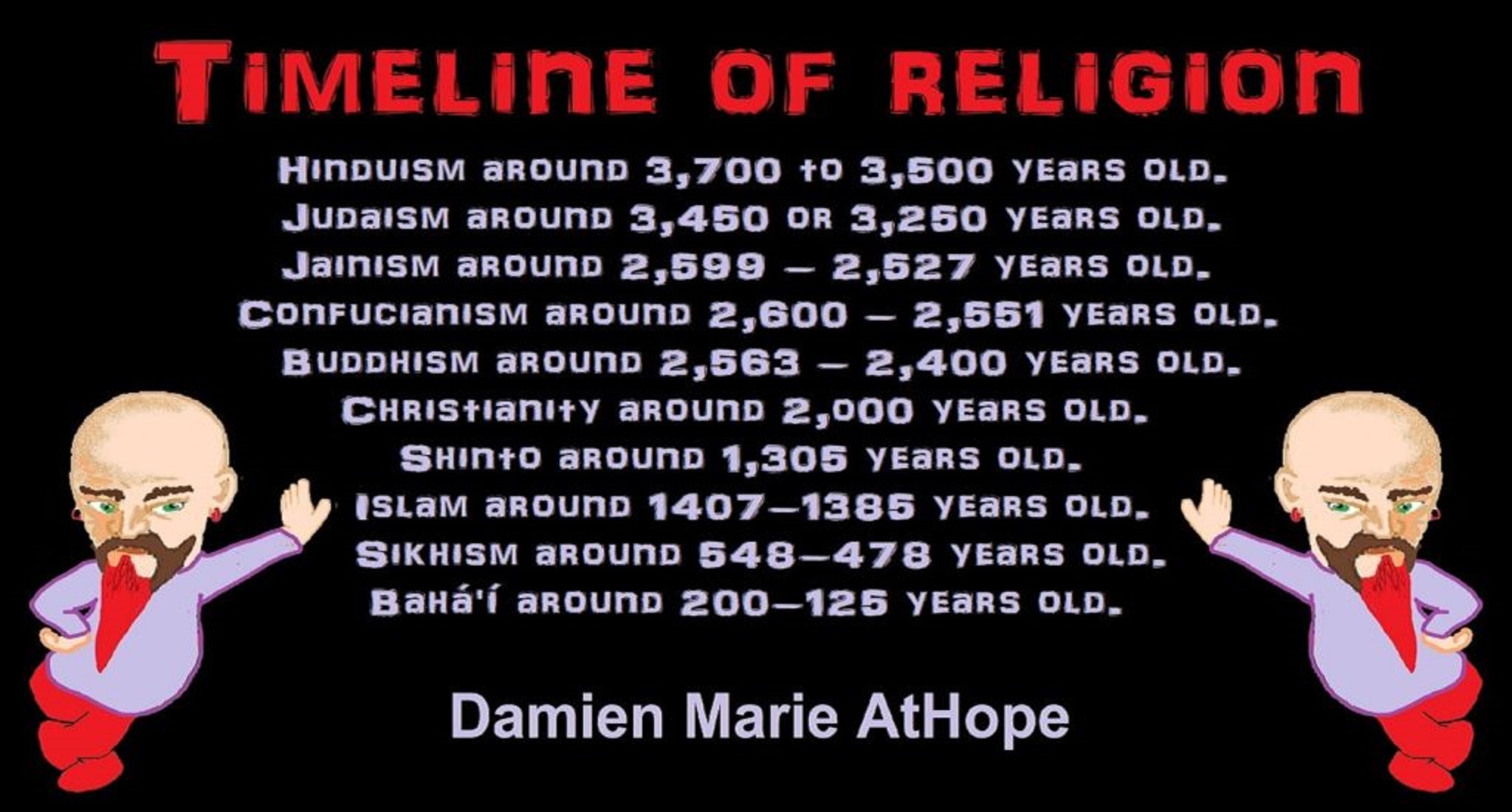
Hinduism around 3,700 to 3,500 years old. ref
Judaism around 3,450 or 3,250 years old. (The first writing in the bible was “Paleo-Hebrew” dated to around 3,000 years ago Khirbet Qeiyafa is the site of an ancient fortress city overlooking the Elah Valley. And many believe the religious Jewish texts were completed around 2,500) ref, ref
Judaism is around 3,450 or 3,250 years old. (“Paleo-Hebrew” 3,000 years ago and Torah 2,500 years ago)
“Judaism is an Abrahamic, its roots as an organized religion in the Middle East during the Bronze Age. Some scholars argue that modern Judaism evolved from Yahwism, the religion of ancient Israel and Judah, by the late 6th century BCE, and is thus considered to be one of the oldest monotheistic religions.” ref
“Yahwism is the name given by modern scholars to the religion of ancient Israel, essentially polytheistic, with a plethora of gods and goddesses. Heading the pantheon was Yahweh, the national god of the Israelite kingdoms of Israel and Judah, with his consort, the goddess Asherah; below them were second-tier gods and goddesses such as Baal, Shamash, Yarikh, Mot, and Astarte, all of whom had their own priests and prophets and numbered royalty among their devotees, and a third and fourth tier of minor divine beings, including the mal’ak, the messengers of the higher gods, who in later times became the angels of Judaism, Christianity and Islam. Yahweh, however, was not the ‘original’ god of Israel “Isra-El”; it is El, the head of the Canaanite pantheon, whose name forms the basis of the name “Israel”, and none of the Old Testament patriarchs, the tribes of Israel, the Judges, or the earliest monarchs, have a Yahwistic theophoric name (i.e., one incorporating the name of Yahweh).” ref
“El is a Northwest Semitic word meaning “god” or “deity“, or referring (as a proper name) to any one of multiple major ancient Near Eastern deities. A rarer form, ‘ila, represents the predicate form in Old Akkadian and in Amorite. The word is derived from the Proto-Semitic *ʔil-, meaning “god”. Specific deities known as ‘El or ‘Il include the supreme god of the ancient Canaanite religion and the supreme god of East Semitic speakers in Mesopotamia’s Early Dynastic Period. ʼĒl is listed at the head of many pantheons. In some Canaanite and Ugaritic sources, ʼĒl played a role as father of the gods, of creation, or both. For example, in the Ugaritic texts, ʾil mlk is understood to mean “ʼĒl the King” but ʾil hd as “the god Hadad“. The Semitic root ʾlh (Arabic ʾilāh, Aramaic ʾAlāh, ʾElāh, Hebrew ʾelōah) may be ʾl with a parasitic h, and ʾl may be an abbreviated form of ʾlh. In Ugaritic the plural form meaning “gods” is ʾilhm, equivalent to Hebrew ʾelōhîm “powers”. In the Hebrew texts this word is interpreted as being semantically singular for “god” by biblical commentators. However the documentary hypothesis for the Old Testament (corresponds to the Jewish Torah) developed originally in the 1870s, identifies these that different authors – the Jahwist, Elohist, Deuteronomist, and the Priestly source – were responsible for editing stories from a polytheistic religion into those of a monotheistic religion. Inconsistencies that arise between monotheism and polytheism in the texts are reflective of this hypothesis.” ref
Jainism around 2,599 – 2,527 years old. ref
Confucianism around 2,600 – 2,551 years old. ref
Buddhism around 2,563/2,480 – 2,483/2,400 years old. ref
Christianity around 2,o00 years old. ref
Shinto around 1,305 years old. ref
Islam around 1407–1385 years old. ref

Knowledge to Ponder:
Stars/Astrology:
- Possibly, around 30,000 years ago (in simpler form) to 6,000 years ago, Stars/Astrology are connected to Ancestors, Spirit Animals, and Deities.
- The star also seems to be a possible proto-star for Star of Ishtar, Star of Inanna, or Star of Venus.
- Around 7,000 to 6,000 years ago, Star Constellations/Astrology have connections to the “Kurgan phenomenon” of below-ground “mound” stone/wood burial structures and “Dolmen phenomenon” of above-ground stone burial structures.
- Around 6,500–5,800 years ago, The Northern Levant migrations into Jordon and Israel in the Southern Levant brought new cultural and religious transfer from Turkey and Iran.
- “The Ghassulian Star,” a mysterious 6,000-year-old mural from Jordan may have connections to the European paganstic kurgan/dolmens phenomenon.
“Astrology is a range of divinatory practices, recognized as pseudoscientific since the 18th century, that claim to discern information about human affairs and terrestrial events by studying the apparent positions of celestial objects. Different cultures have employed forms of astrology since at least the 2nd millennium BCE, these practices having originated in calendrical systems used to predict seasonal shifts and to interpret celestial cycles as signs of divine communications. Most, if not all, cultures have attached importance to what they observed in the sky, and some—such as the Hindus, Chinese, and the Maya—developed elaborate systems for predicting terrestrial events from celestial observations. Western astrology, one of the oldest astrological systems still in use, can trace its roots to 19th–17th century BCE Mesopotamia, from where it spread to Ancient Greece, Rome, the Islamicate world and eventually Central and Western Europe. Contemporary Western astrology is often associated with systems of horoscopes that purport to explain aspects of a person’s personality and predict significant events in their lives based on the positions of celestial objects; the majority of professional astrologers rely on such systems.” ref
Around 5,500 years ago, Science evolves, The first evidence of science was 5,500 years ago and was demonstrated by a body of empirical, theoretical, and practical knowledge about the natural world. ref
Around 5,000 years ago, Origin of Logics is a Naturalistic Observation (principles of valid reasoning, inference, & demonstration) ref
Around 4,150 to 4,000 years ago: The earliest surviving versions of the Sumerian Epic of Gilgamesh, which was originally titled “He who Saw the Deep” (Sha naqba īmuru) or “Surpassing All Other Kings” (Shūtur eli sharrī) were written. ref
Hinduism:
- 3,700 years ago or so, the oldest of the Hindu Vedas (scriptures), the Rig Veda was composed.
- 3,500 years ago or so, the Vedic Age began in India after the collapse of the Indus Valley Civilization.
Judaism:
- around 3,000 years ago, the first writing in the bible was “Paleo-Hebrew”
- around 2,500 years ago, many believe the religious Jewish texts were completed
Myths: The bible inspired religion is not just one religion or one myth but a grouping of several religions and myths
- Around 3,450 or 3,250 years ago, according to legend, is the traditionally accepted period in which the Israelite lawgiver, Moses, provided the Ten Commandments.
- Around 2,500 to 2,400 years ago, a collection of ancient religious writings by the Israelites based primarily upon the Hebrew Bible, Tanakh, or Old Testament is the first part of Christianity’s bible.
- Around 2,400 years ago, the most accepted hypothesis is that the canon was formed in stages, first the Pentateuch (Torah).
- Around 2,140 to 2,116 years ago, the Prophets was written during the Hasmonean dynasty, and finally the remaining books.
- Christians traditionally divide the Old Testament into four sections:
- The first five books or Pentateuch (Torah).
- The proposed history books telling the history of the Israelites from their conquest of Canaan to their defeat and exile in Babylon.
- The poetic and proposed “Wisdom books” dealing, in various forms, with questions of good and evil in the world.
- The books of the biblical prophets, warning of the consequences of turning away from God:
- Henotheism:
- Exodus 20:23 “You shall not make other gods besides Me (not saying there are no other gods just not to worship them); gods of silver or gods of gold, you shall not make for yourselves.”
- Polytheism:
- Judges 10:6 “Then the sons of Israel again did evil in the sight of the LORD, served the Baals and the Ashtaroth, the gods of Aram, the gods of Sidon, the gods of Moab, the gods of the sons of Ammon, and the gods of the Philistines; thus they forsook the LORD and did not serve Him.”
- 1 Corinthians 8:5 “For even if there are so-called gods whether in heaven or on earth, as indeed there are many gods and many lords.”
- Monotheism:
- Isaiah 43:10 “You are my witnesses,” declares the LORD, “and my servant whom I have chosen, so that you may know and believe me and understand that I am he. Before me no god was formed, nor will there be one after me.
Around 2,570 to 2,270 Years Ago, there is a confirmation of atheistic doubting as well as atheistic thinking, mainly by Greek philosophers. However, doubting gods is likely as old as the invention of gods and should destroy the thinking that belief in god(s) is the “default belief”. The Greek word is apistos (a “not” and pistos “faithful,”), thus not faithful or faithless because one is unpersuaded and unconvinced by a god(s) claim. Short Definition: unbelieving, unbeliever, or unbelief.

Expressions of Atheistic Thinking:
- Around 2,600 years ago, Ajita Kesakambali, ancient Indian philosopher, who is the first known proponent of Indian materialism. ref
- Around 2,535 to 2,475 years ago, Heraclitus, Greek pre-Socratic philosopher, a native of the Greek city Ephesus, Ionia, on the coast of Anatolia, also known as Asia Minor or modern Turkey. ref
- Around 2,500 to 2,400 years ago, according to The Story of Civilization book series certain African pygmy tribes have no identifiable gods, spirits, or religious beliefs or rituals, and even what burials accrue are without ceremony. ref
- Around 2,490 to 2,430 years ago, Empedocles, Greek pre-Socratic philosopher and a citizen of Agrigentum, a Greek city in Sicily. ref
- Around 2,460 to 2,370 years ago, Democritus, Greek pre-Socratic philosopher considered to be the “father of modern science” possibly had some disbelief amounting to atheism. ref
- Around 2,399 years ago or so, Socrates, a famous Greek philosopher was tried for sinfulness by teaching doubt of state gods. ref
- Around 2,341 to 2,270 years ago, Epicurus, a Greek philosopher known for composing atheistic critics and famously stated, “Is God willing to prevent evil, but not able? Then he is not omnipotent. Is he able, but not willing? Then he is malevolent. Is he both able and willing? Then whence cometh evil? Is he neither able nor willing? Then why call him god?” ref
This last expression by Epicurus, seems to be an expression of Axiological Atheism. To understand and utilize value or actually possess “Value Conscious/Consciousness” to both give a strong moral “axiological” argument (the problem of evil) as well as use it to fortify humanism and positive ethical persuasion of human helping and care responsibilities. Because value-blindness gives rise to sociopathic/psychopathic evil.



While hallucinogens are associated with shamanism, it is alcohol that is associated with paganism.
The Atheist-Humanist-Leftist Revolutionaries Shows in the prehistory series:
Show two: Pre-animism 300,000 years old and animism 100,000 years old: related to “Anarchism and Socialism”
Show tree: Totemism 50,000 years old: related to “Anarchism and Socialism”
Show four: Shamanism 30,000 years old: related to “Anarchism and Socialism”
Show five: Paganism 12,000 years old: related to “Anarchism and Socialism”
Show six: Emergence of hierarchy, sexism, slavery, and the new male god dominance: Paganism 7,000-5,000 years old: related to “Anarchism and Socialism” (Capitalism) (World War 0) Elite and their slaves!
Prehistory: related to “Anarchism and Socialism” the division of labor, power, rights, and recourses: VIDEO
Pre-animism 300,000 years old and animism 100,000 years old: related to “Anarchism and Socialism”: VIDEO
Totemism 50,000 years old: related to “Anarchism and Socialism”: VIDEO
Shamanism 30,000 years old: related to “Anarchism and Socialism”: VIDEO
Paganism 12,000 years old: related to “Anarchism and Socialism” (Pre-Capitalism): VIDEO
Paganism 7,000-5,000 years old: related to “Anarchism and Socialism” (Capitalism) (World War 0) Elite and their slaves: VIEDO
Paganism 5,000 years old: progressed organized religion and the state: related to “Anarchism and Socialism” (Kings and the Rise of the State): VIEDO
Paganism 4,000 years old: related to “Anarchism and Socialism” (First Moralistic gods, then the Origin time of Monotheism): VIEDO
I do not hate simply because I challenge and expose myths or lies any more than others being thought of as loving simply because of the protection and hiding from challenge their favored myths or lies.
The truth is best championed in the sunlight of challenge.
An archaeologist once said to me “Damien religion and culture are very different”
My response, So are you saying that was always that way, such as would you say Native Americans’ cultures are separate from their religions? And do you think it always was the way you believe?
I had said that religion was a cultural product. That is still how I see it and there are other archaeologists that think close to me as well. Gods too are the myths of cultures that did not understand science or the world around them, seeing magic/supernatural everywhere.
I personally think there is a goddess and not enough evidence to support a male god at Çatalhöyük but if there was both a male and female god and goddess then I know the kind of gods they were like Proto-Indo-European mythology.
This series idea was addressed in, Anarchist Teaching as Free Public Education or Free Education in the Public: VIDEO
Our 12 video series: Organized Oppression: Mesopotamian State Force and the Politics of power (9,000-4,000 years ago), is adapted from: The Complete and Concise History of the Sumerians and Early Bronze Age Mesopotamia (7000-2000 BC): https://www.youtube.com/watch?v=szFjxmY7jQA by “History with Cy“
Show #1: Mesopotamian State Force and the Politics of Power (Samarra, Halaf, Ubaid)
Show #2: Mesopotamian State Force and the Politics of Power
Show #3: Mesopotamian State Force and the Politics of Power (Uruk and the First Cities)
Show #4: Mesopotamian State Force and the Politics of Power (First Kings)
Show #5: Mesopotamian State Force and the Politics of Power (Early Dynastic Period)
Show #6: Mesopotamian State Force and the Politics of Power
Show #7: Mesopotamian State Force and the Politics of Power (Sargon and Akkadian Rule)
Show #9: Mesopotamian State Force and the Politics of Power (Gudea of Lagash and Utu-hegal)
Show #12: Mesopotamian State Force and the Politics of Power (Aftermath and Legacy of Sumer)

The “Atheist-Humanist-Leftist Revolutionaries”
Cory Johnston ☭ Ⓐ Atheist Leftist @Skepticallefty & I (Damien Marie AtHope) @AthopeMarie (my YouTube & related blog) are working jointly in atheist, antitheist, antireligionist, antifascist, anarchist, socialist, and humanist endeavors in our videos together, generally, every other Saturday.
Why Does Power Bring Responsibility?
Think, how often is it the powerless that start wars, oppress others, or commit genocide? So, I guess the question is to us all, to ask, how can power not carry responsibility in a humanity concept? I know I see the deep ethical responsibility that if there is power their must be a humanistic responsibility of ethical and empathic stewardship of that power. Will I be brave enough to be kind? Will I possess enough courage to be compassionate? Will my valor reach its height of empathy? I as everyone, earns our justified respect by our actions, that are good, ethical, just, protecting, and kind. Do I have enough self-respect to put my love for humanity’s flushing, over being brought down by some of its bad actors? May we all be the ones doing good actions in the world, to help human flourishing.
I create the world I want to live in, striving for flourishing. Which is not a place but a positive potential involvement and promotion; a life of humanist goal precision. To master oneself, also means mastering positive prosocial behaviors needed for human flourishing. I may have lost a god myth as an atheist, but I am happy to tell you, my friend, it is exactly because of that, leaving the mental terrorizer, god belief, that I truly regained my connected ethical as well as kind humanity.
Cory and I will talk about prehistory and theism, addressing the relevance to atheism, anarchism, and socialism.
At the same time as the rise of the male god, 7,000 years ago, there was also the very time there was the rise of violence, war, and clans to kingdoms, then empires, then states. It is all connected back to 7,000 years ago, and it moved across the world.
Cory Johnston: https://damienmarieathope.com/2021/04/cory-johnston-mind-of-a-skeptical-leftist/?v=32aec8db952d
The Mind of a Skeptical Leftist (YouTube)
Cory Johnston: Mind of a Skeptical Leftist @Skepticallefty
The Mind of a Skeptical Leftist By Cory Johnston: “Promoting critical thinking, social justice, and left-wing politics by covering current events and talking to a variety of people. Cory Johnston has been thoughtfully talking to people and attempting to promote critical thinking, social justice, and left-wing politics.” http://anchor.fm/skepticalleft
Cory needs our support. We rise by helping each other.
Cory Johnston ☭ Ⓐ @Skepticallefty Evidence-based atheist leftist (he/him) Producer, host, and co-host of 4 podcasts @skeptarchy @skpoliticspod and @AthopeMarie
Damien Marie AtHope (“At Hope”) Axiological Atheist, Anti-theist, Anti-religionist, Secular Humanist. Rationalist, Writer, Artist, Poet, Philosopher, Advocate, Activist, Psychology, and Armchair Archaeology/Anthropology/Historian.
Damien is interested in: Freedom, Liberty, Justice, Equality, Ethics, Humanism, Science, Atheism, Antiteism, Antireligionism, Ignosticism, Left-Libertarianism, Anarchism, Socialism, Mutualism, Axiology, Metaphysics, LGBTQI, Philosophy, Advocacy, Activism, Mental Health, Psychology, Archaeology, Social Work, Sexual Rights, Marriage Rights, Woman’s Rights, Gender Rights, Child Rights, Secular Rights, Race Equality, Ageism/Disability Equality, Etc. And a far-leftist, “Anarcho-Humanist.”
I am not a good fit in the atheist movement that is mostly pro-capitalist, I am anti-capitalist. Mostly pro-skeptic, I am a rationalist not valuing skepticism. Mostly pro-agnostic, I am anti-agnostic. Mostly limited to anti-Abrahamic religions, I am an anti-religionist.
To me, the “male god” seems to have either emerged or become prominent around 7,000 years ago, whereas the now favored monotheism “male god” is more like 4,000 years ago or so. To me, the “female goddess” seems to have either emerged or become prominent around 11,000-10,000 years ago or so, losing the majority of its once prominence around 2,000 years ago due largely to the now favored monotheism “male god” that grow in prominence after 4,000 years ago or so.
My Thought on the Evolution of Gods?
Animal protector deities from old totems/spirit animal beliefs come first to me, 13,000/12,000 years ago, then women as deities 11,000/10,000 years ago, then male gods around 7,000/8,000 years ago. Moralistic gods around 5,000/4,000 years ago, and monotheistic gods around 4,000/3,000 years ago.
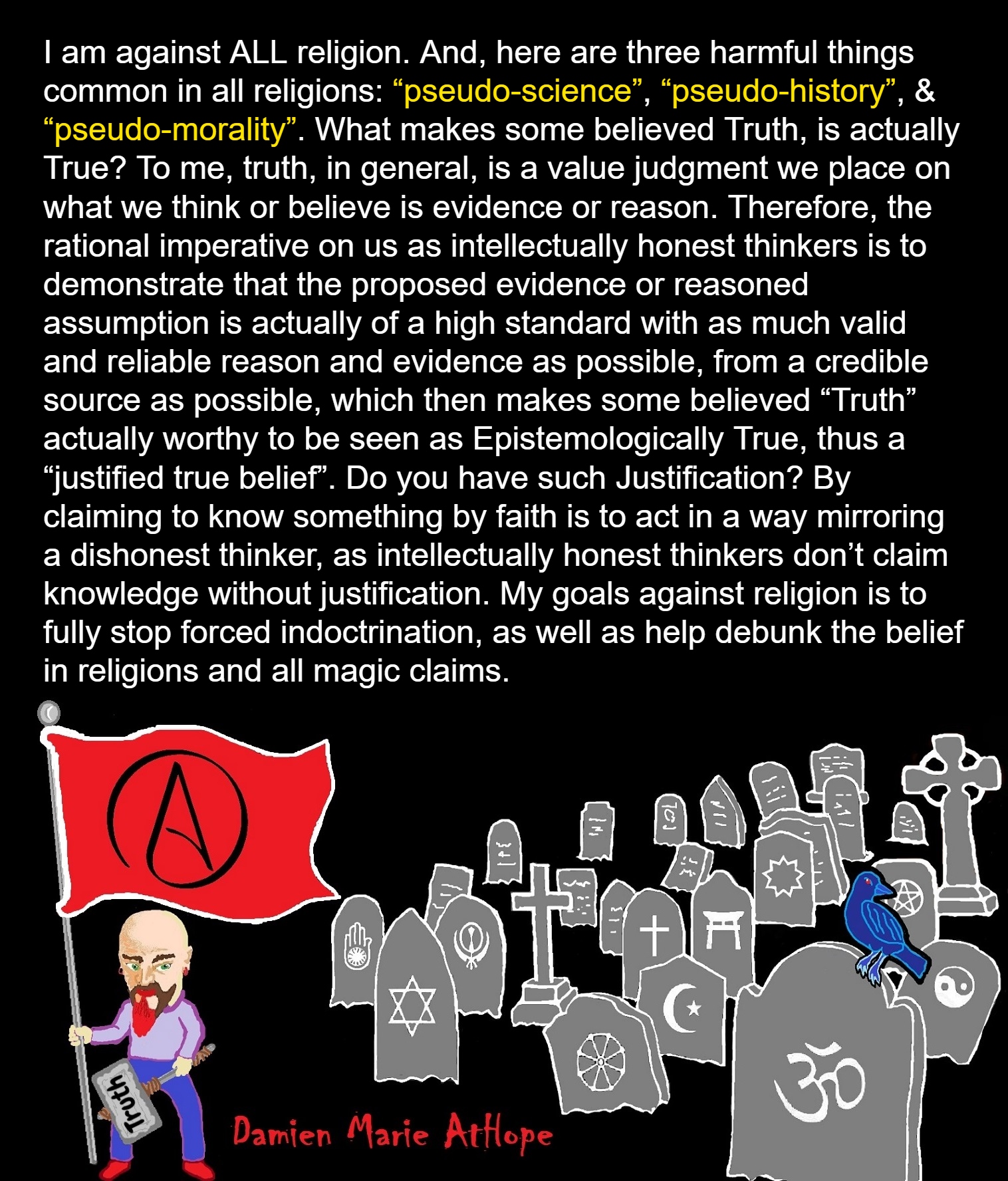

Damien Marie AtHope (Said as “At” “Hope”)/(Autodidact Polymath but not good at math):
Axiological Atheist, Anti-theist, Anti-religionist, Secular Humanist, Rationalist, Writer, Artist, Jeweler, Poet, “autodidact” Philosopher, schooled in Psychology, and “autodidact” Armchair Archaeology/Anthropology/Pre-Historian (Knowledgeable in the range of: 1 million to 5,000/4,000 years ago). I am an anarchist socialist politically. Reasons for or Types of Atheism
My Website, My Blog, & Short-writing or Quotes, My YouTube, Twitter: @AthopeMarie, and My Email: damien.marie.athope@gmail.com

